
29 March 2024
Packed with the latest information on Tokyo Dome City! Experience both the nostalgic and the new in Iidabashi and Suidobashi.
Iidabashi is served by five train lines, including JR and Tokyo Metro. It has developed as a business and commercial location. At this sophisticated neighborhood, you can still see some retro Showa-era scenes that have remained unchanged for many years. The Hotel Metropolitan Edmont was our base for a tour of the Science Museum and Kagurazaka. The second day was dedicated to leisure at Tokyo Dome City.Please enjoy a trip to Iidabashi and Suidobashi, where time passes at a leisurely pace despite being in the heart of the city.
Table of Contents
- 1Science Museum
- 2CANAL CAFE
- 3Akagi Shrine, grand shrine of Ushigome
- 4tenaraido kagurazaka (s)store
- 5Kagurazaka Gojuban Sohonten
- 6Fujiya Iidabashi Kagurazaka
- 7Hotel Metropolitan Edmont Tokyo
- 8Tokyo Daijingu Shrine
- 9Tokyo Dome City Yellow Building
- 10Sauna Lounge Rentola
- 11blue-ing! CAFE &BAR
- 12DELI &DISH
- 13Koishikawa Korakuen Gardens
Science Museum
Approach the wonders of science and technology that are all around us.

The Science Museum, which can be found in a corner of Kitanomaru Park, is a popular tourist spot that introduces visitors to modern and near-future science and industrial technologies. Adults can return to their childhood memories and enter the world of science and technology! The renovated state-of-the-art exhibition halls are a must-see.
The photo shows a "giant bubble", which can be experienced at the "Works" exhibition on the 5th floor.

“Sound” is a new exhibition room on the 5th floor that opened in 2023. When you step on the keyboard, sound is produced and waves of different colors, shapes, and sizes appear before your eyes. The exhibition room allows you to see various "shapes" depicted by sound.
Visitors to the "Illusion" exhibition rooms can experience various illusions.

"Illusion A" exhibition room on the 5th floor allows visitors to experience phenomena created using sight and optical illusions. On the "Gyro Swing," simply turn the handle and tilt the gear to spin the swing through gyroscopic power.
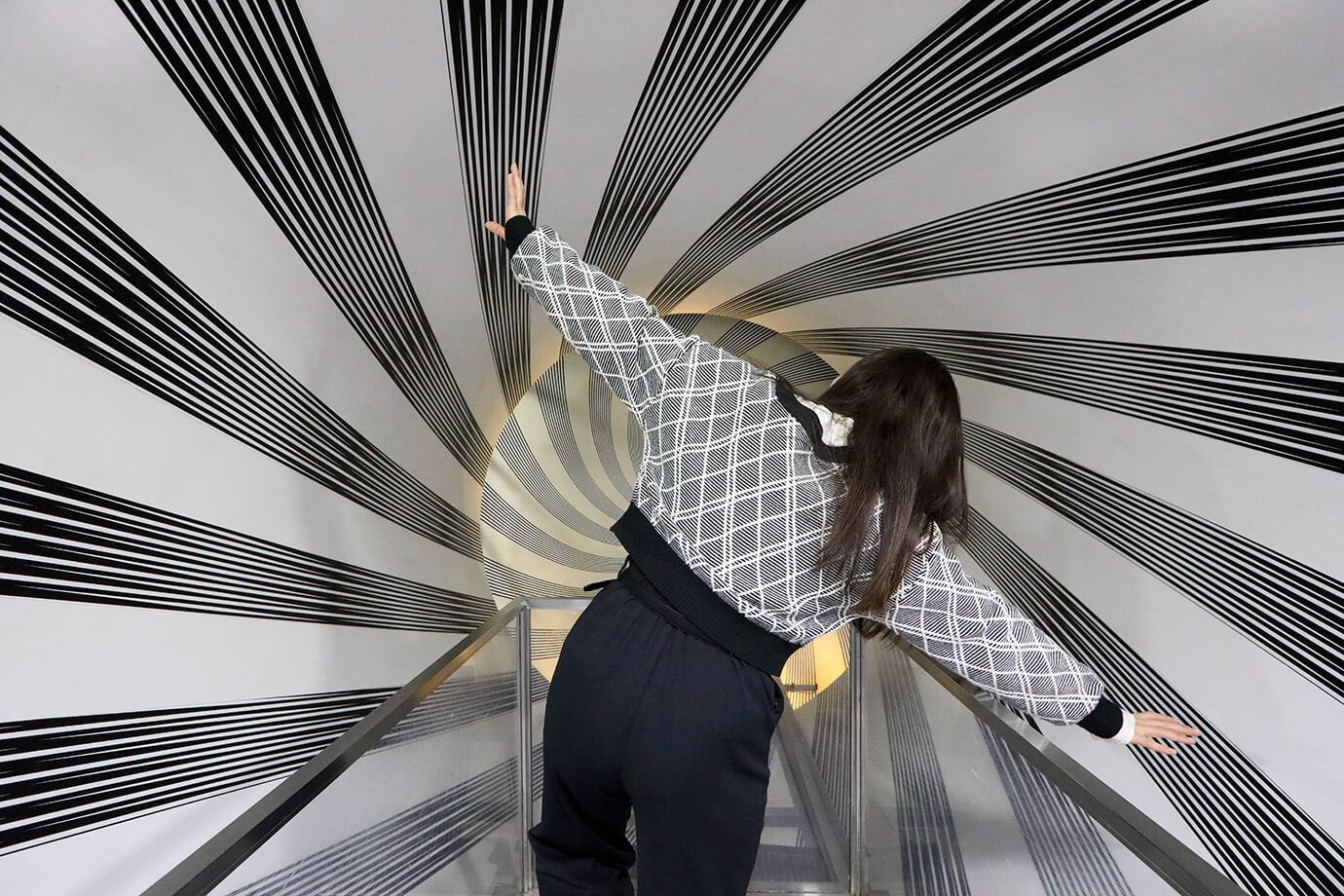
In the "Spiral Cylinder," the entire cylinder moves slowly, while the disc in front of you also moves. It is a very strange feeling when you stand in the center and stare at the disc in front but cannot stand straight for some reason.
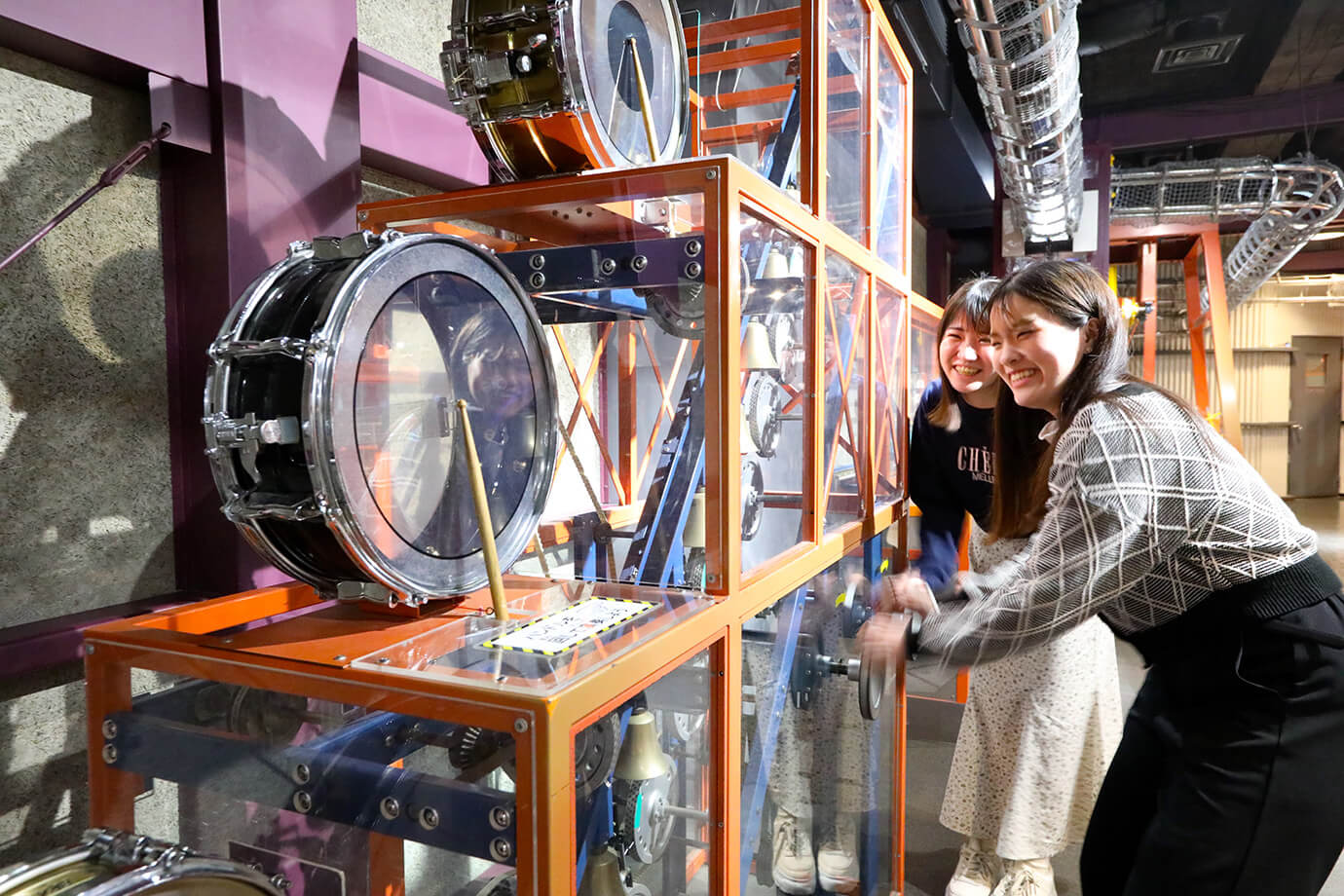
The "Mechanic" exhibition room on the 5th floor is always crowded with children. Here, visitors can experience the principles of physics through devices designed using mechanical elements, such as pulleys and gears. When the handle is turned, the "Do-Re-Mi" drums begin to play one after another.
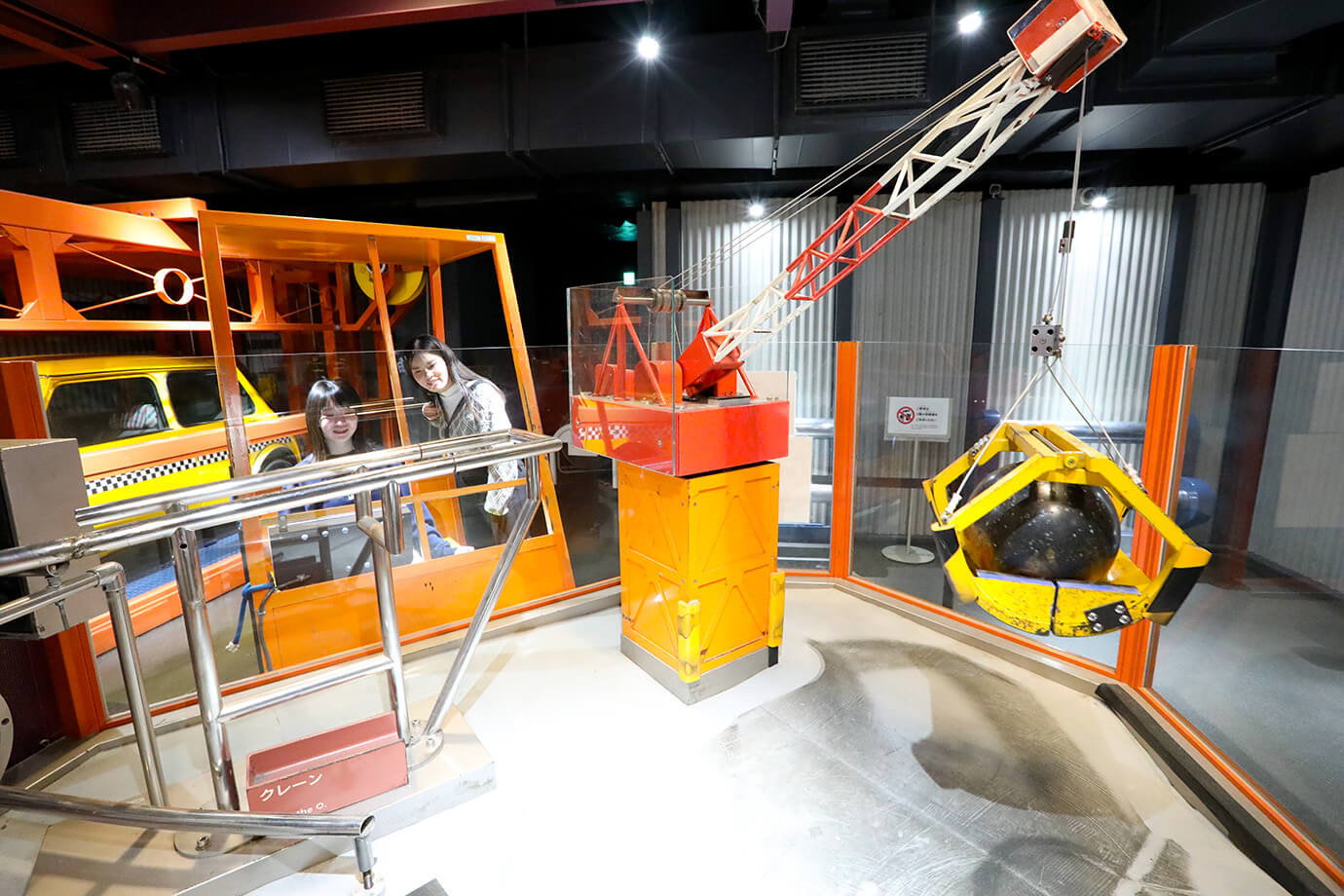
A lifelike "crane" can be operated to lift a heavy ball with a bucket. Can you carry it properly to where you want? This is a great hands-on way to learn about construction!
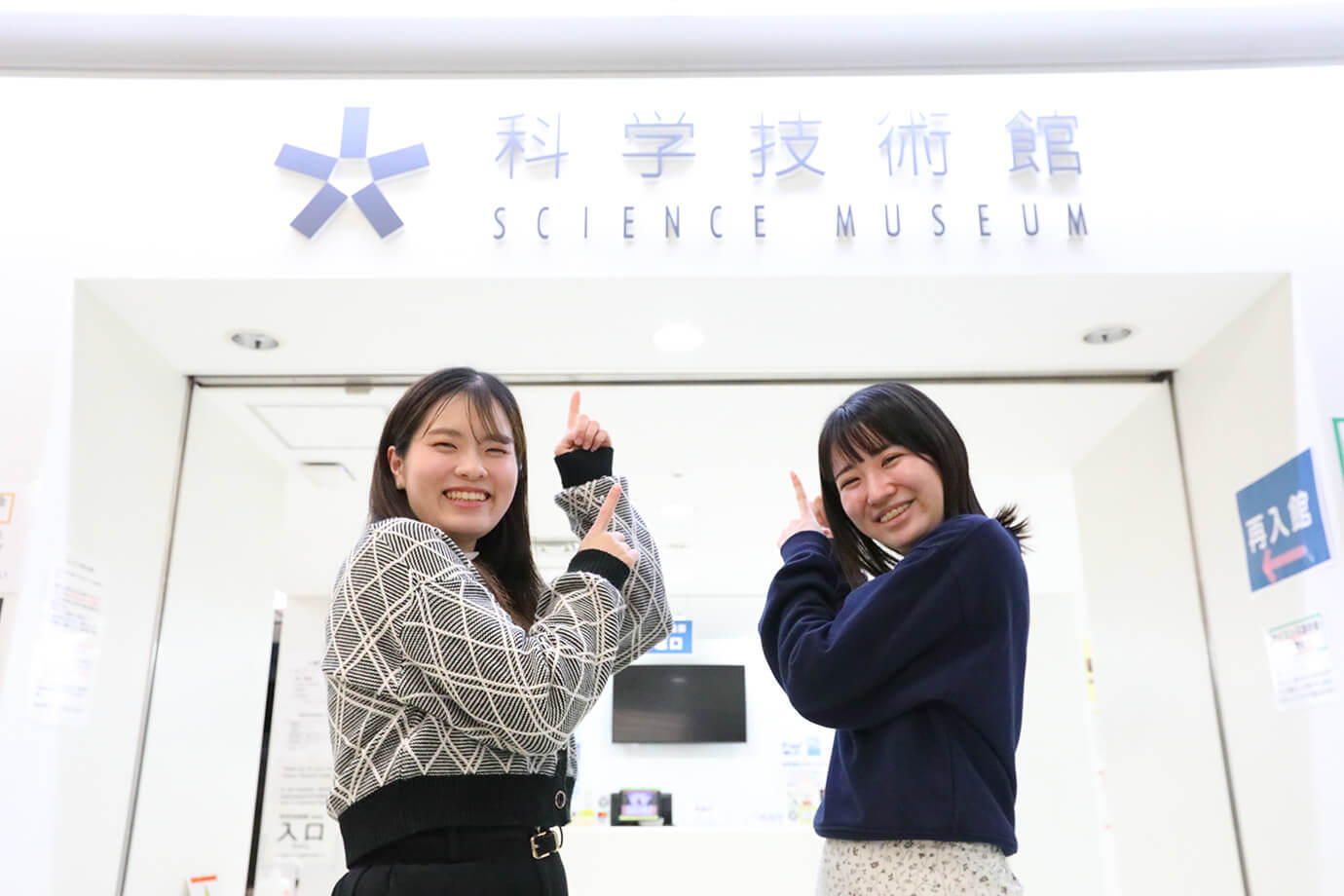
The museum boasts even more hands-on exhibits, including cars and bicycles on the 2nd floor, energy on the 3rd floor, and construction on the 4th floor. The “Science Stadium” offers programs on themes such as "Light and Color" and "Filtration". On weekends, fun events are held, such as making unique rulers using laser processing.
Science Museum
Telephone:03-3212-8544
Admission:Adults - 950 yen; junior and senior high school students - 600 yen; children (4 years and older) - 500 yen
Address:2-1 Kitanomaru Park, Chiyoda-ku, Tokyo
Opening hours:9:30-16:50 (last entry is 16:00)
Closed:Some Wednesdays (or the following weekday if the Wednesday is a national holiday) *Open on Wednesdays during long vacations
CANAL CAFE
It’s almost like the banks of the River Seine! Tea time on the terrace
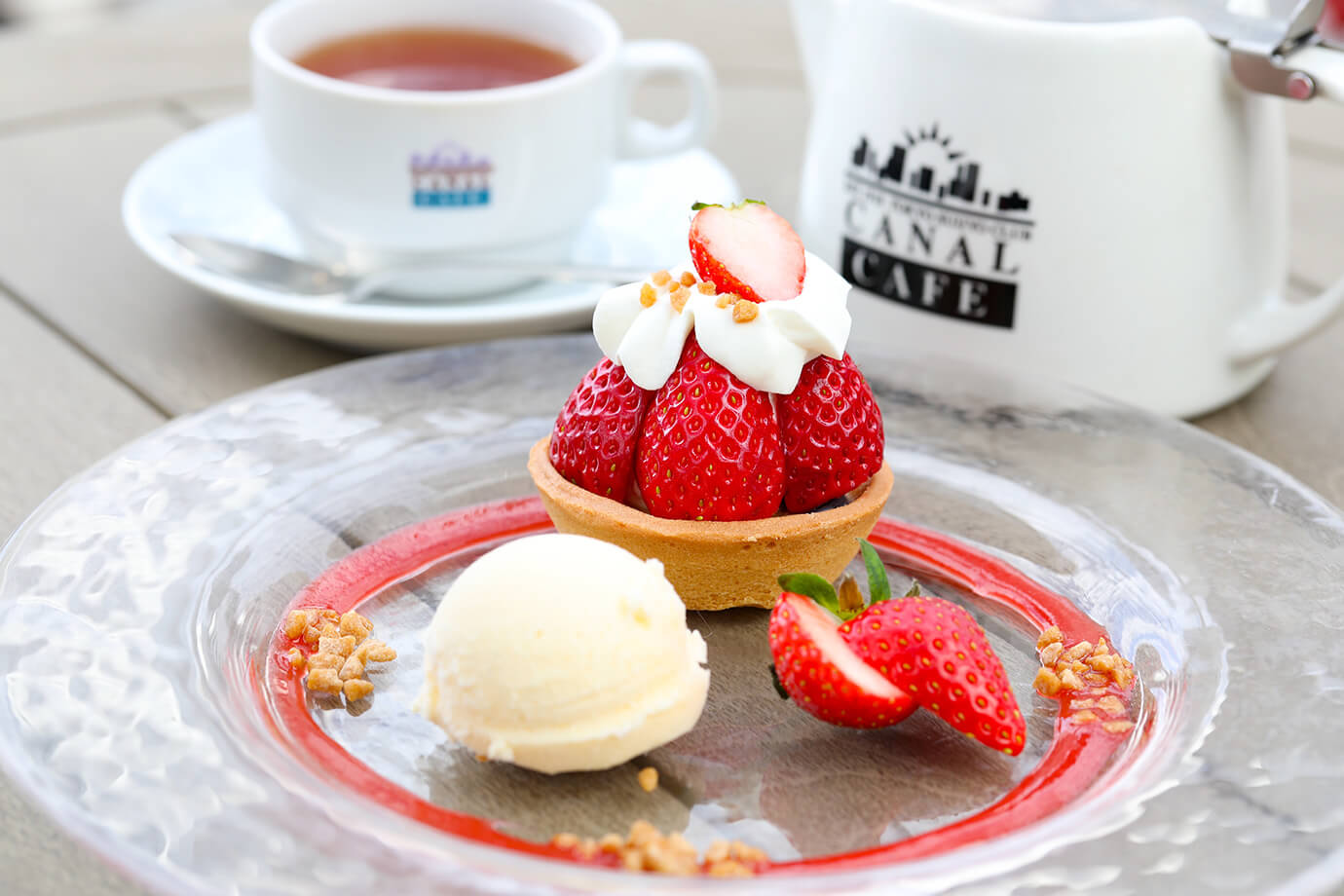
CANAL CAFE is a restaurant located near JR Iidabashi station, near to Ushigome moat. The restaurant was built on the deck of Tokyo Suijyo Club, the oldest boatyard in Tokyo, founded in 1918. It offers diners views of the waterfront while enjoying their meal.
The photo shows a strawberry and maple tart, priced at 850 yen. Various teas are available for 880 yen.
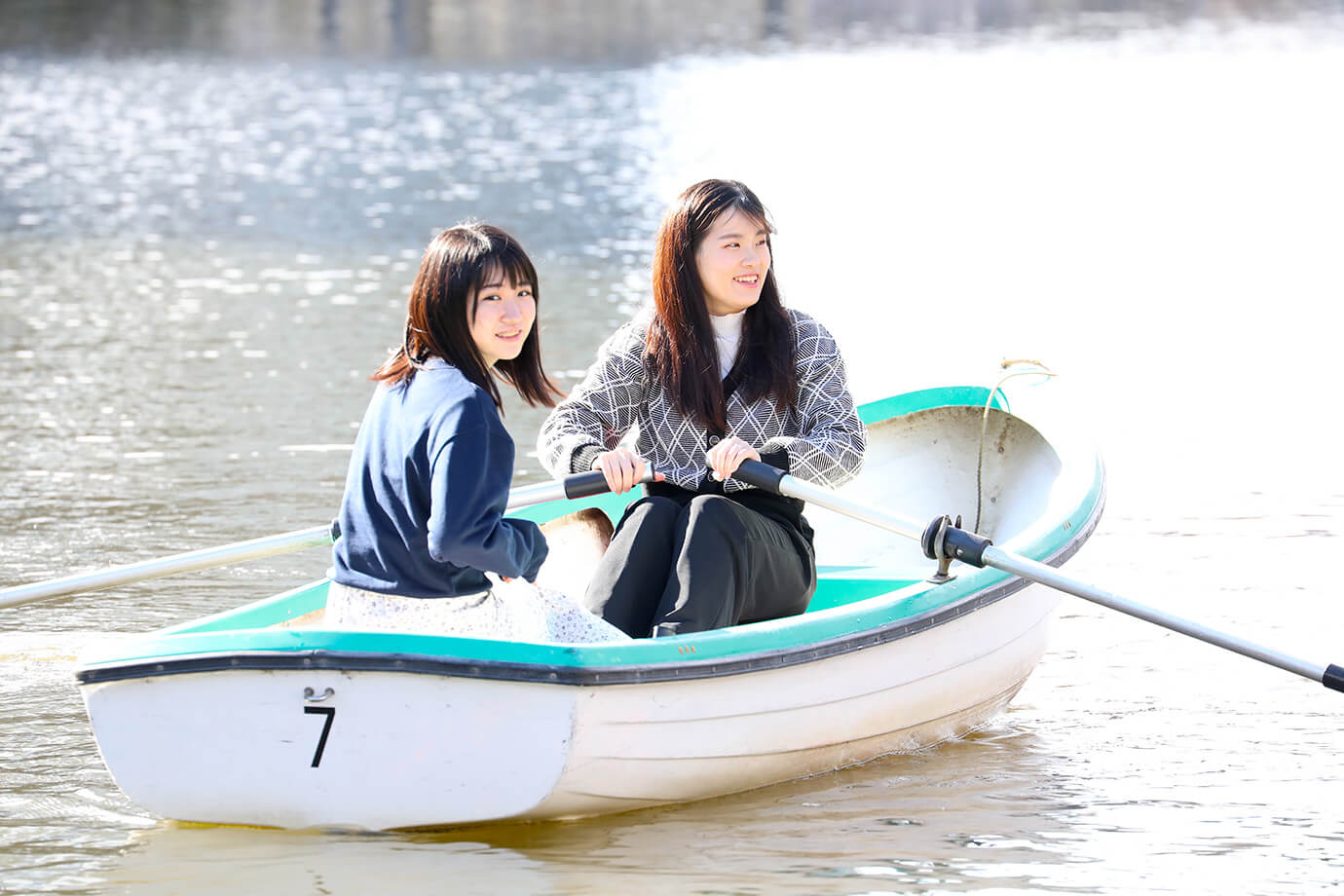
At the entrance I saw the boat pier, so decided to go for a stroll on the water before dinner. The boat offers views of the buildings in Iidabashi and JR railway line.
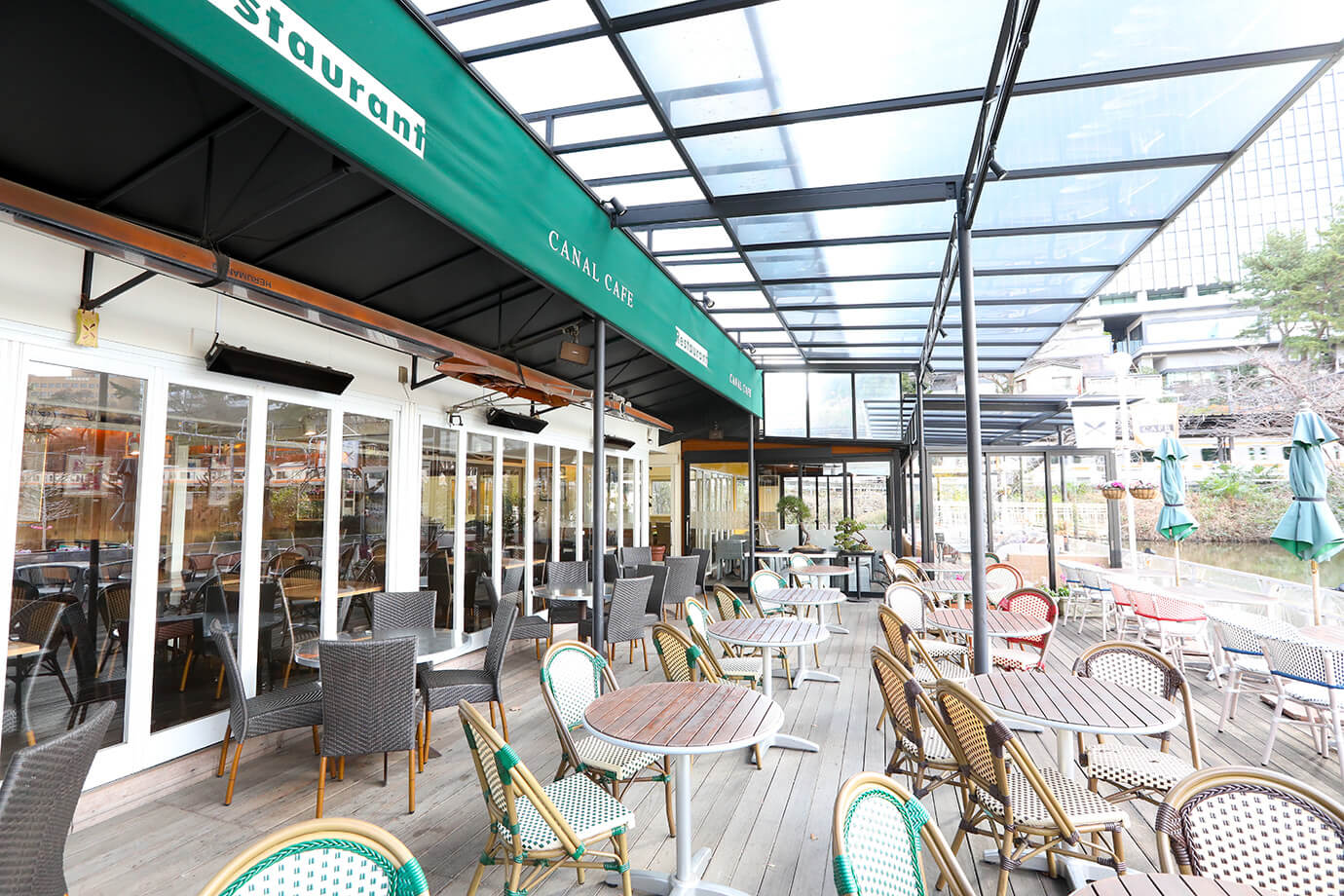
The CANAL CAFE is divided into the restaurant side and deck side, each with different menus. The deck side offers an authentic pizza and cafe menu in a self-service style.
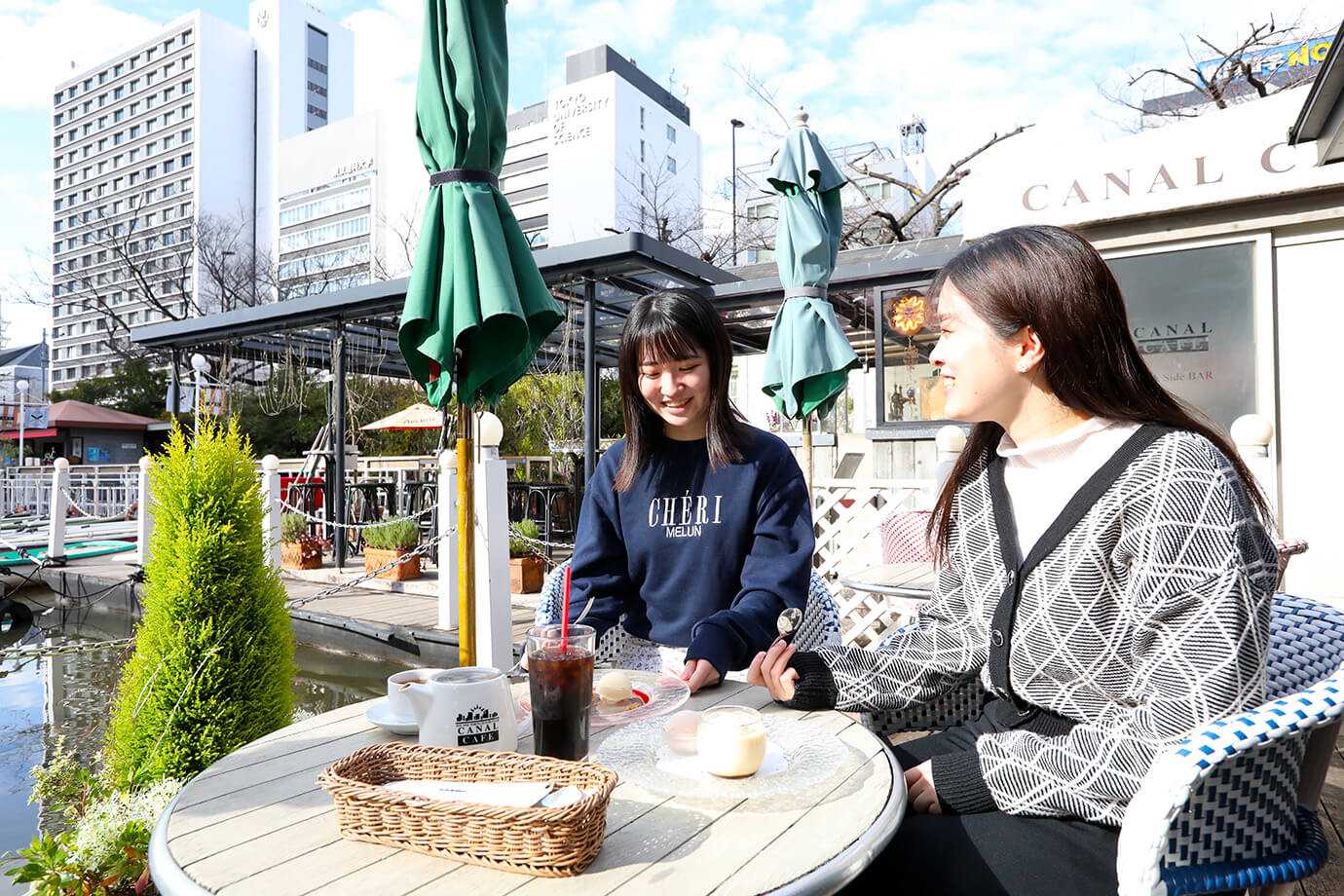
The comfortable terrace seats enjoy warm sunlight. In spring, cherry blossoms bloom along the outer moat, making it a great spot for viewing cherry blossoms.
Signature sweets are also available to purchase at the boutique.
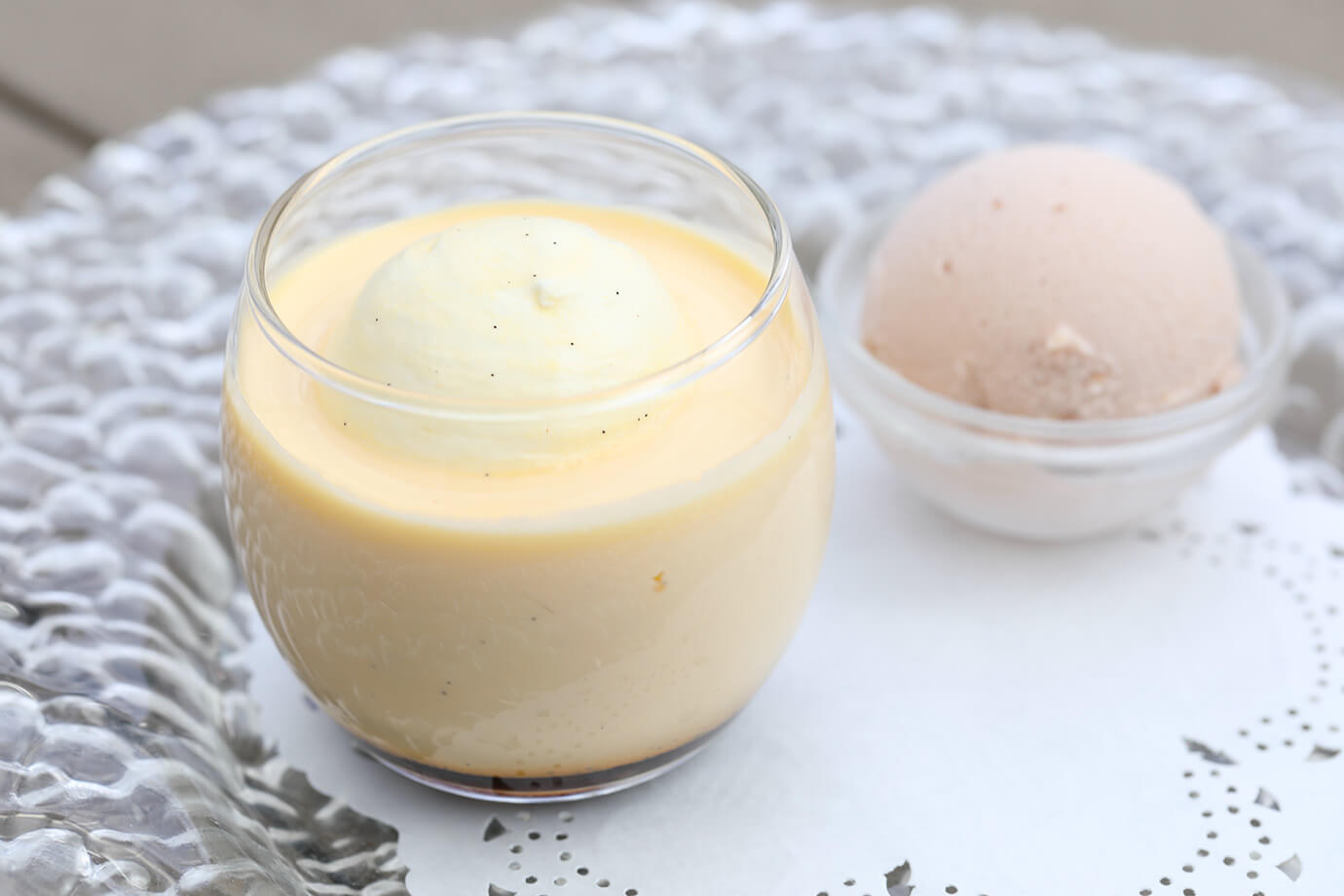
“Canal Pudding” - 650 yen (left). This is a smooth, melt-in-your-mouth pudding with fresh cream and anglaise sauce with a luxurious taste. Gelatos are available at 500 yen (each) in 10 varieties, including cherry blossom, matcha, and tiramisu.
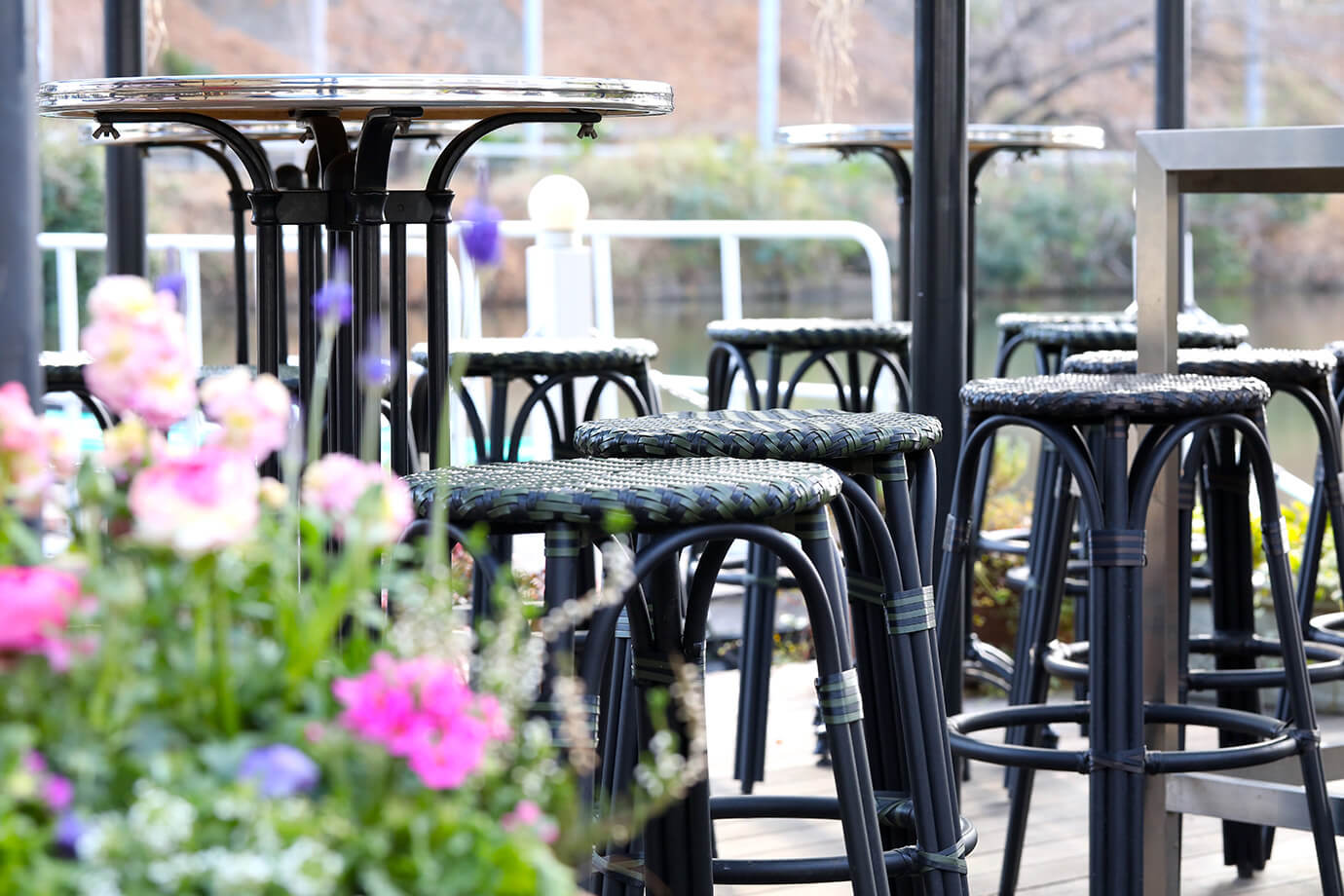
Tall stools are also available for guests. There are approximately 300 seats on the deck side, allowing guests to relax wherever they like.
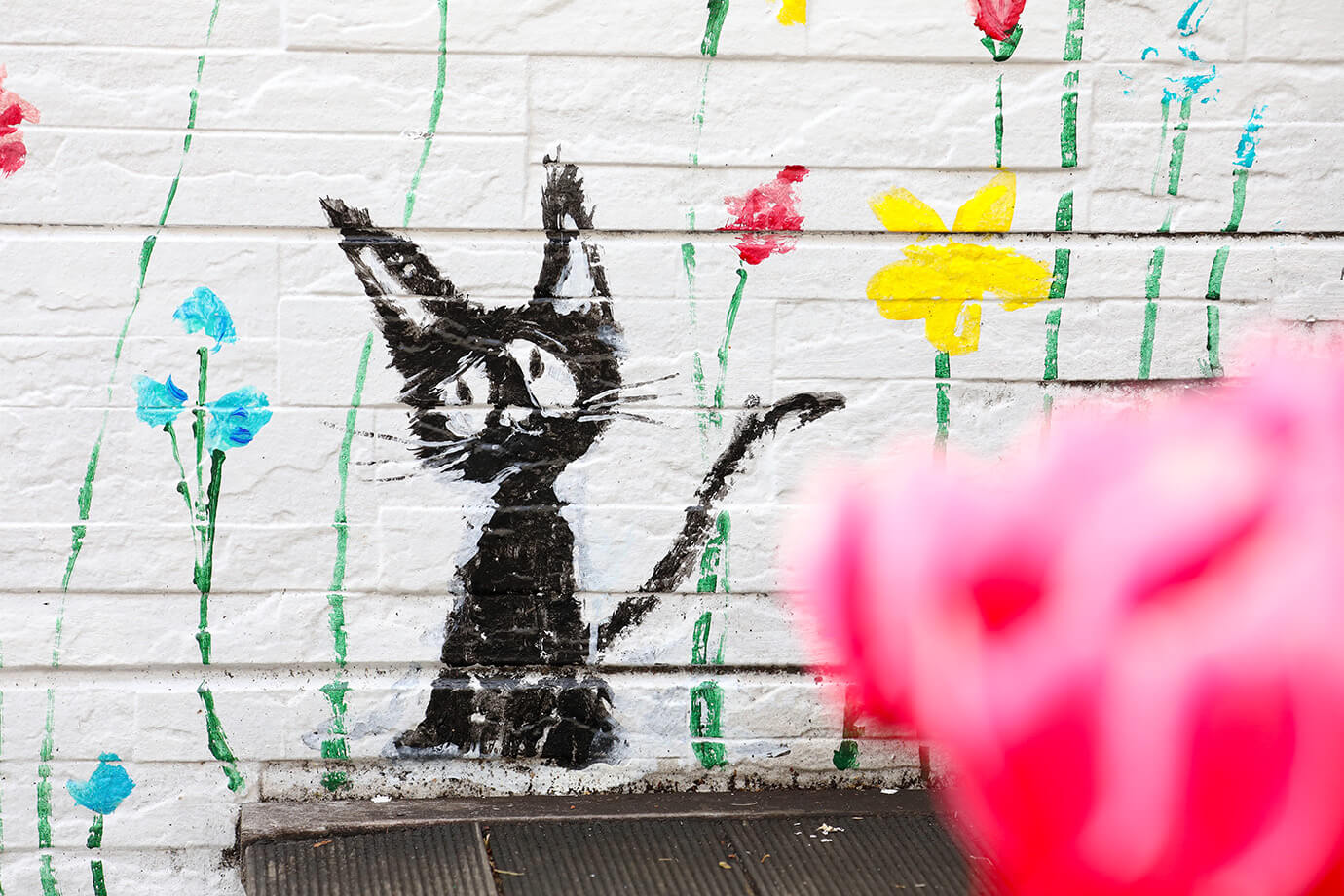
The hearts and flowers gorgeously decorating the walls were created by Bunta Inoue, a painter active both in Japan and abroad. You can appreciate his artwork and also purchase prints at the restaurant.
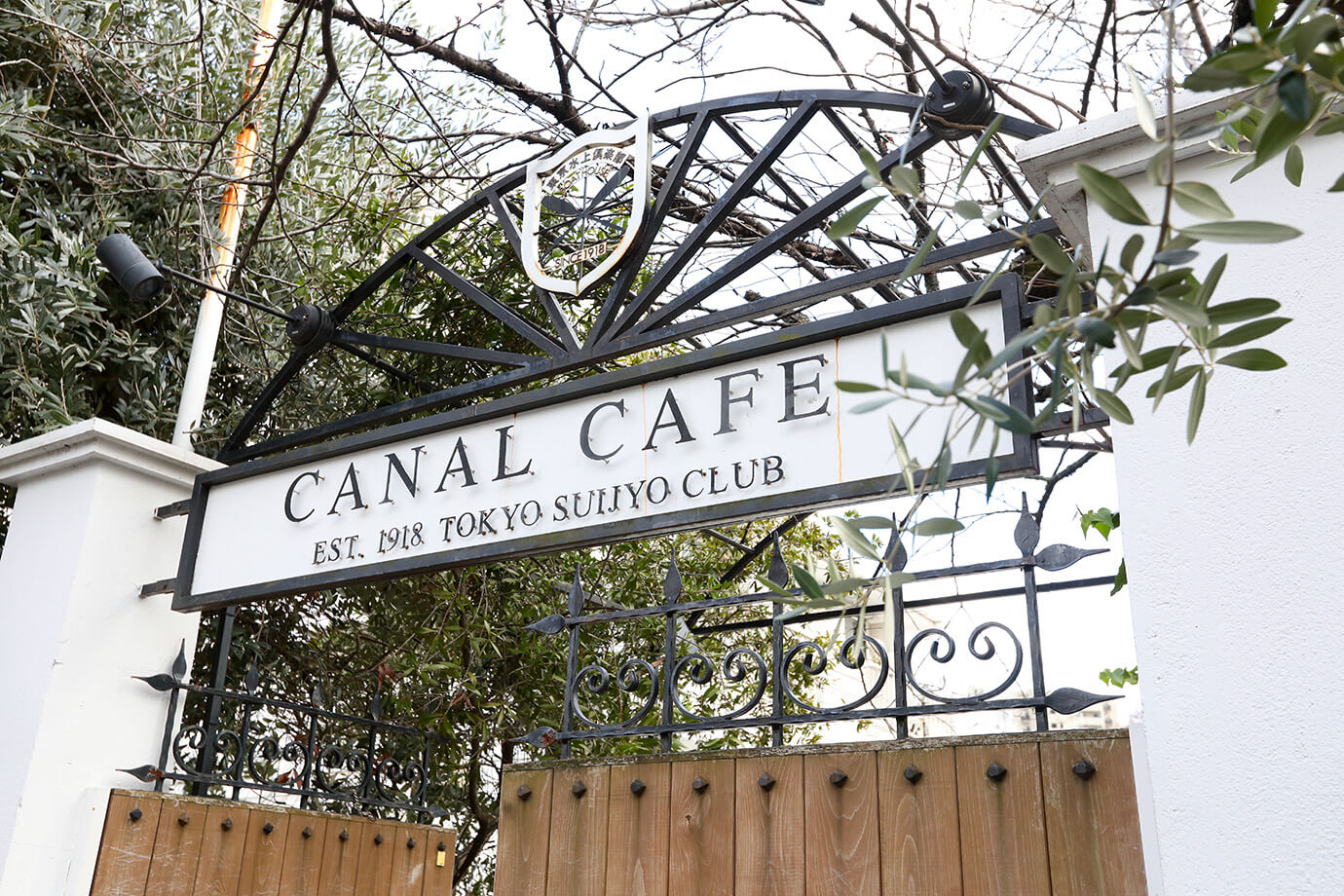
The Western-style gate stands facing the main street. Passing through here, you will find a view of nature that makes it hard to believe you are in the heart of the city. Visiting is recommended in the evening, when the lights of the city and terrace gently sway along the waterfront.
CANAL CAFE
Address:1-9 Kagurazaka, Shinjuku-ku, Tokyo
Telephone:03-3260-8068
Opening hours:11:30-22:00 (open until 21:30 on Sundays and national holidays)
Closed:first Monday of every month (open if the first Monday is a national holiday)
Tokyo Suijyo Club
Fee:1,000 yen for 1 or 2 persons for 30 minutes
Opening hours:11:30-16:00
Closed:Closed when the restaurant is closed, and when there is rain or strong winds
Akagi Shrine, grand shrine of Ushigome
This stylish shrine purifies both body and soul.
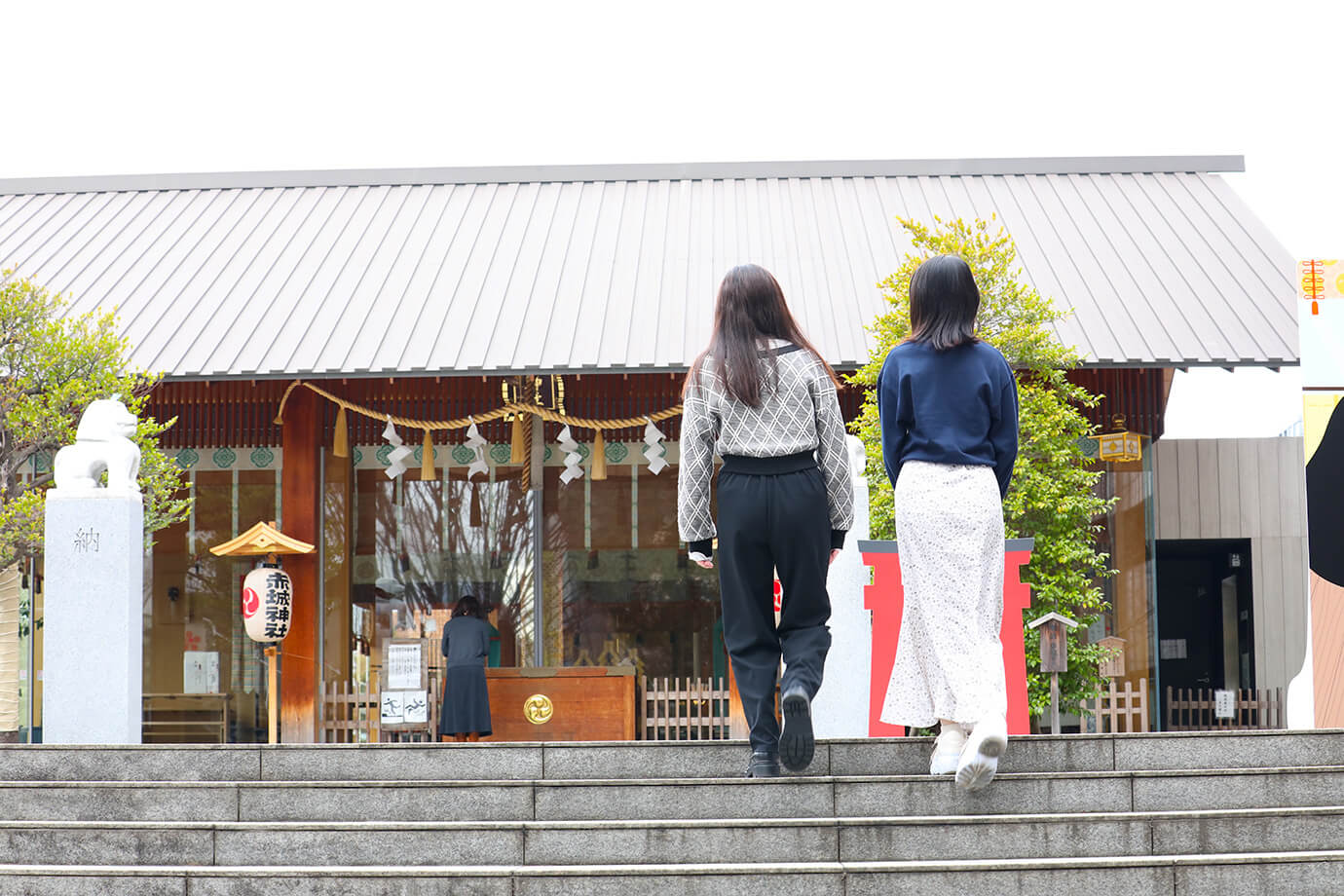
The shrine is located near Kagurazaka Station, and has a history of over 700 years. In 1683, the Tokugawa Shogunate revered the shrine as the grand shrine of Ushigome. It came to be included among the "Three Shrines of Edo" along with Hie Shrine and Kanda Myojin.
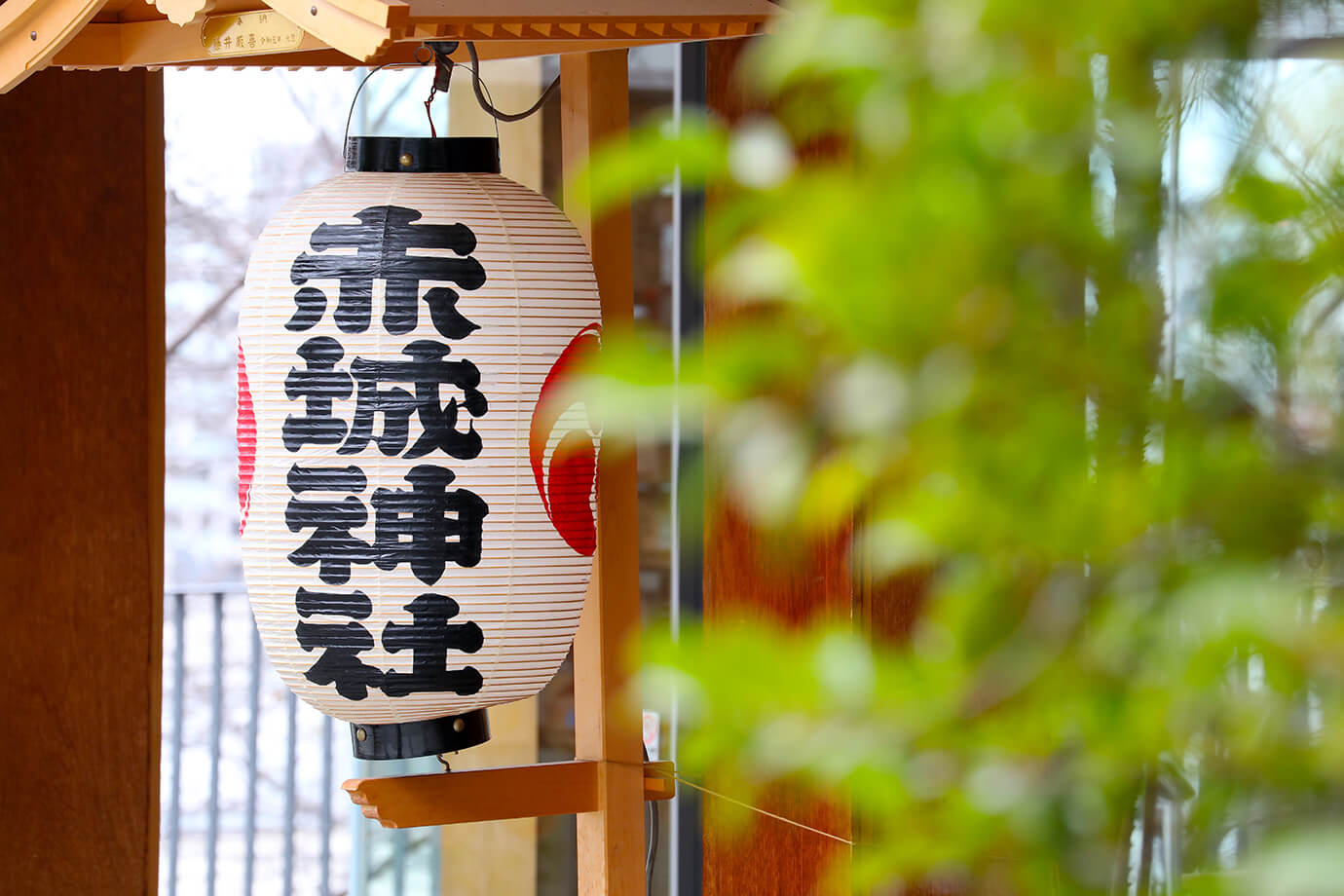
In 2009, the "Akagi Shrine Restoration Project" was launched to restore the aging shrine and its precincts. Designed by Kengo Kuma, the main shrine, kagura-den feature, and entire site has been stylishly redesigned.
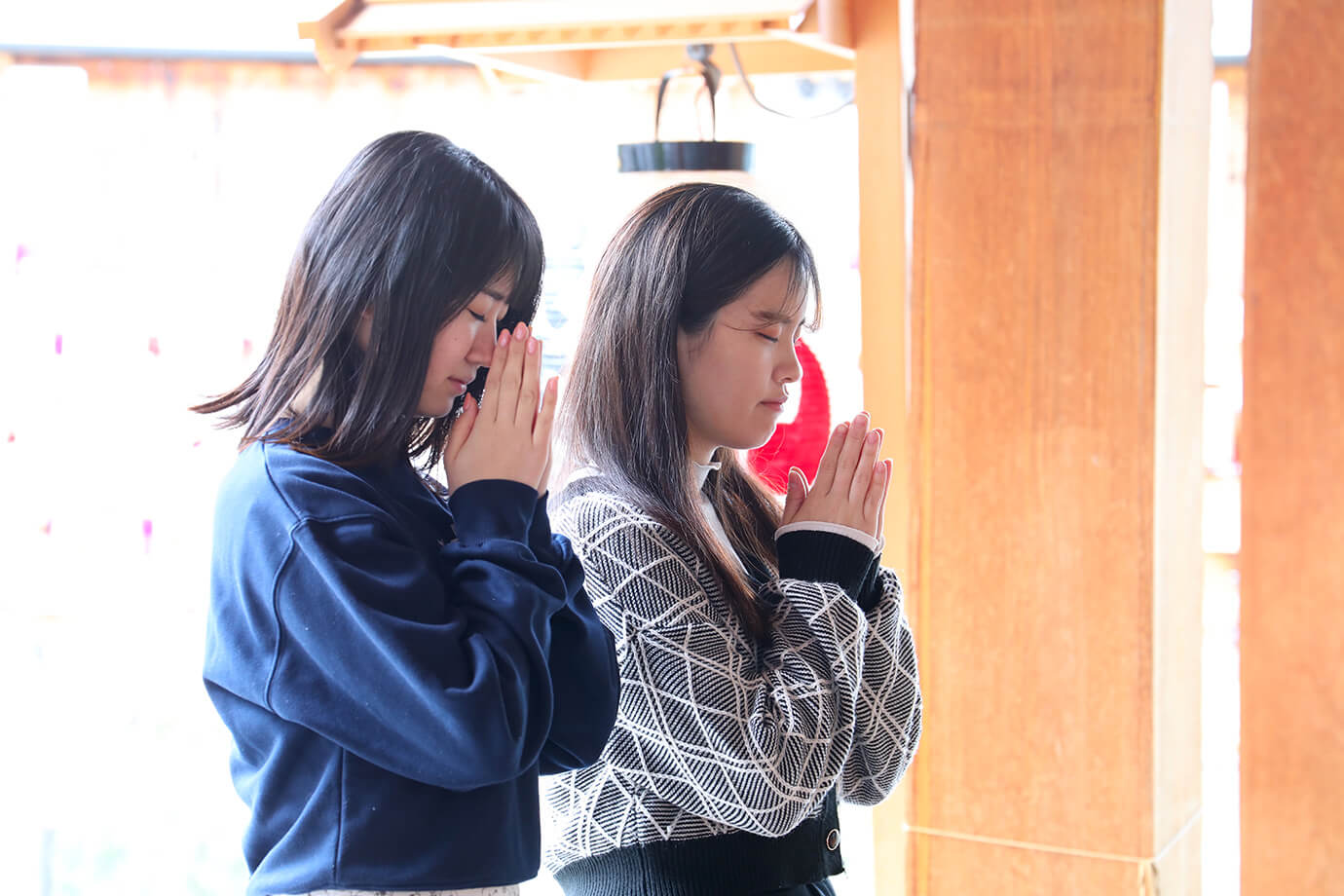
Purify your mind at the chozuya and join your hands in prayer in front of the shrine.
The fortune slips and good luck charms sold at the shrine office are incredibly cute!
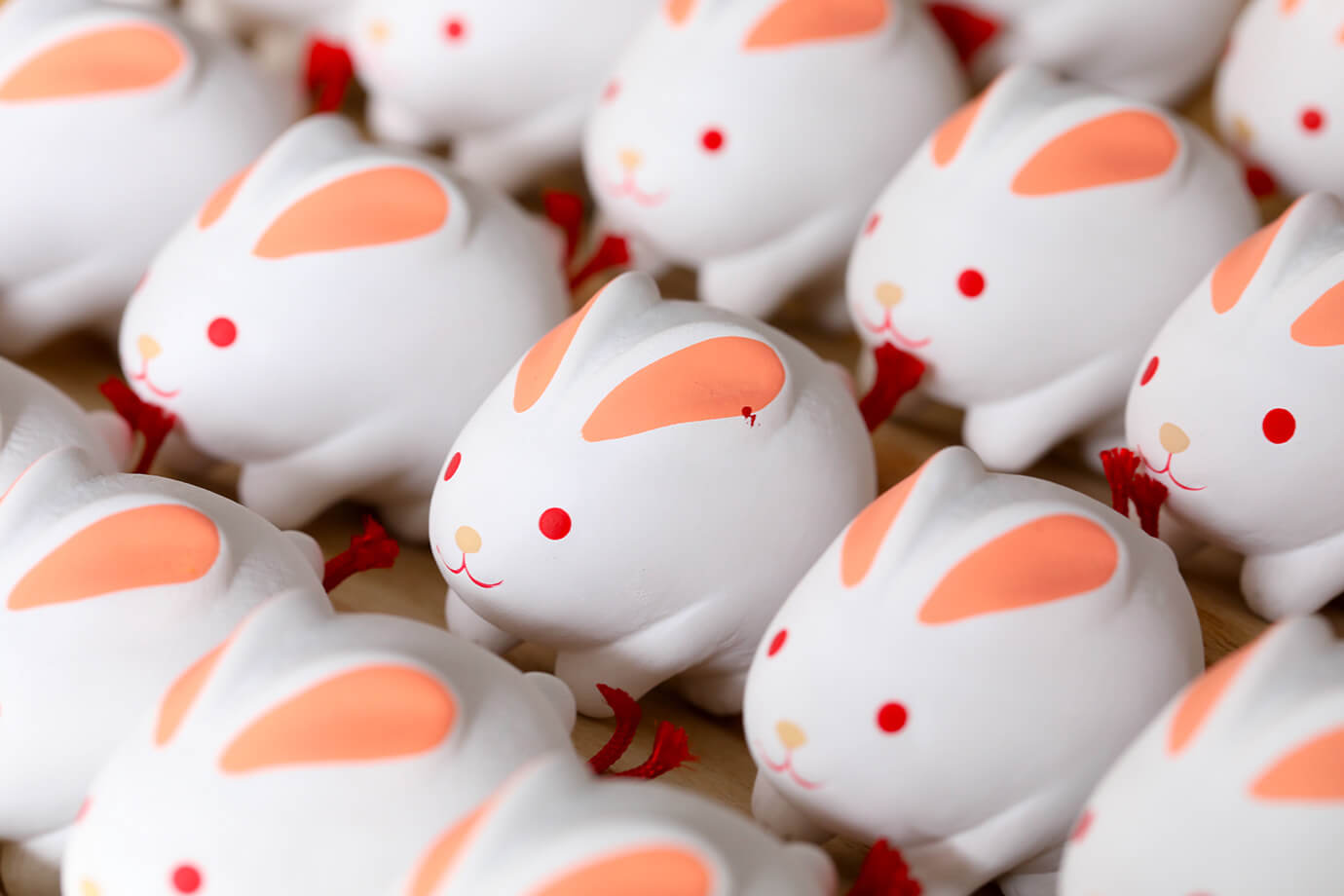
Cute rabbit fortune slip - 500 yen. The rabbit in the myth "The White Rabbit of Inaba" is known to have mediated the marriage between Okuninushi no Mikoto and Yakami Hime. Akagi Shrine offers omikuji (fortune slips) and red ink seal books with rabbit motifs as a symbol of meeting people and receiving good fortune.
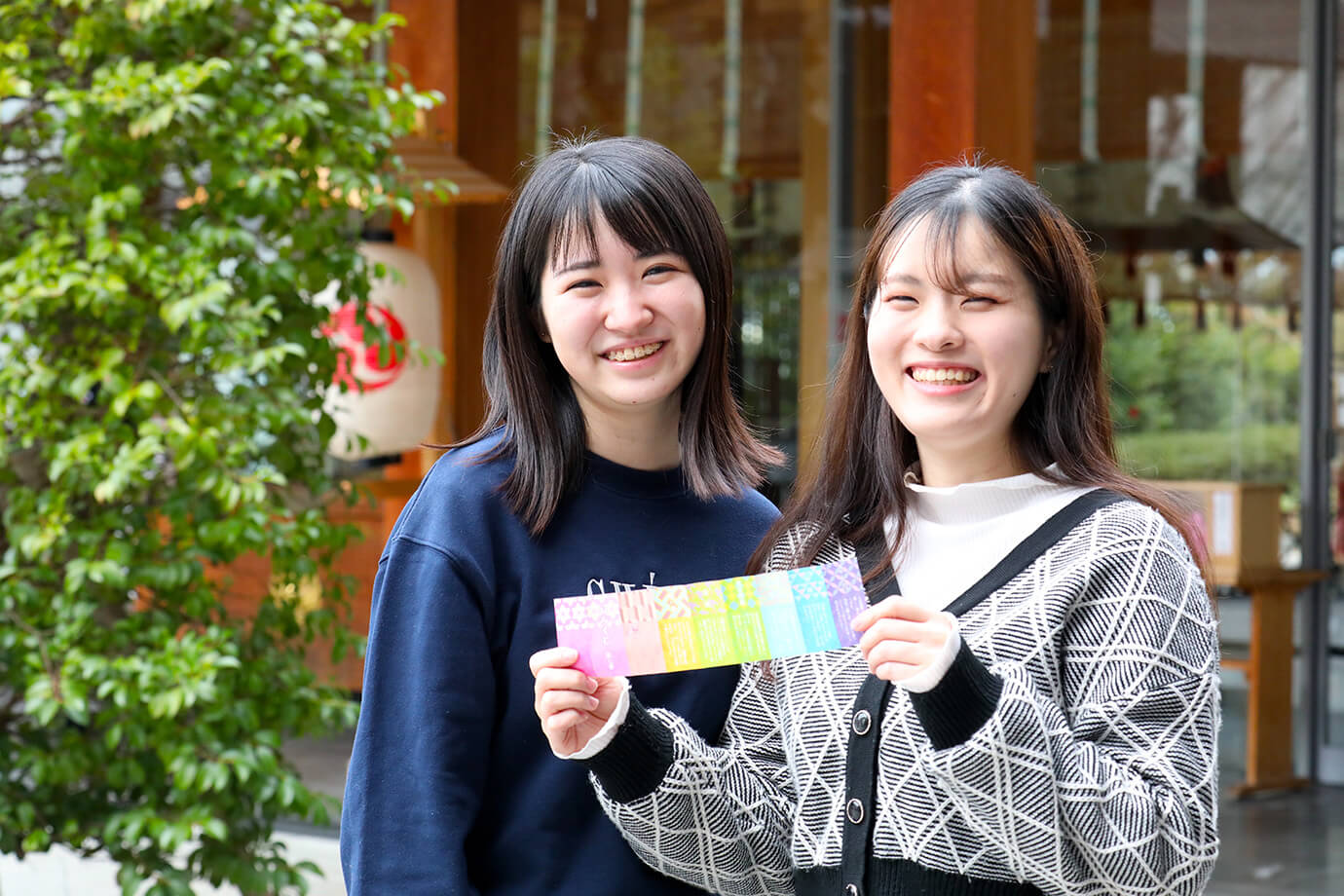
The colorful "Akagi mikuji" fortune slip - 100 yen. It predicts happy fortunes, including a good match, beauty, and health, in honor of Akagi Hime no Mikoto.
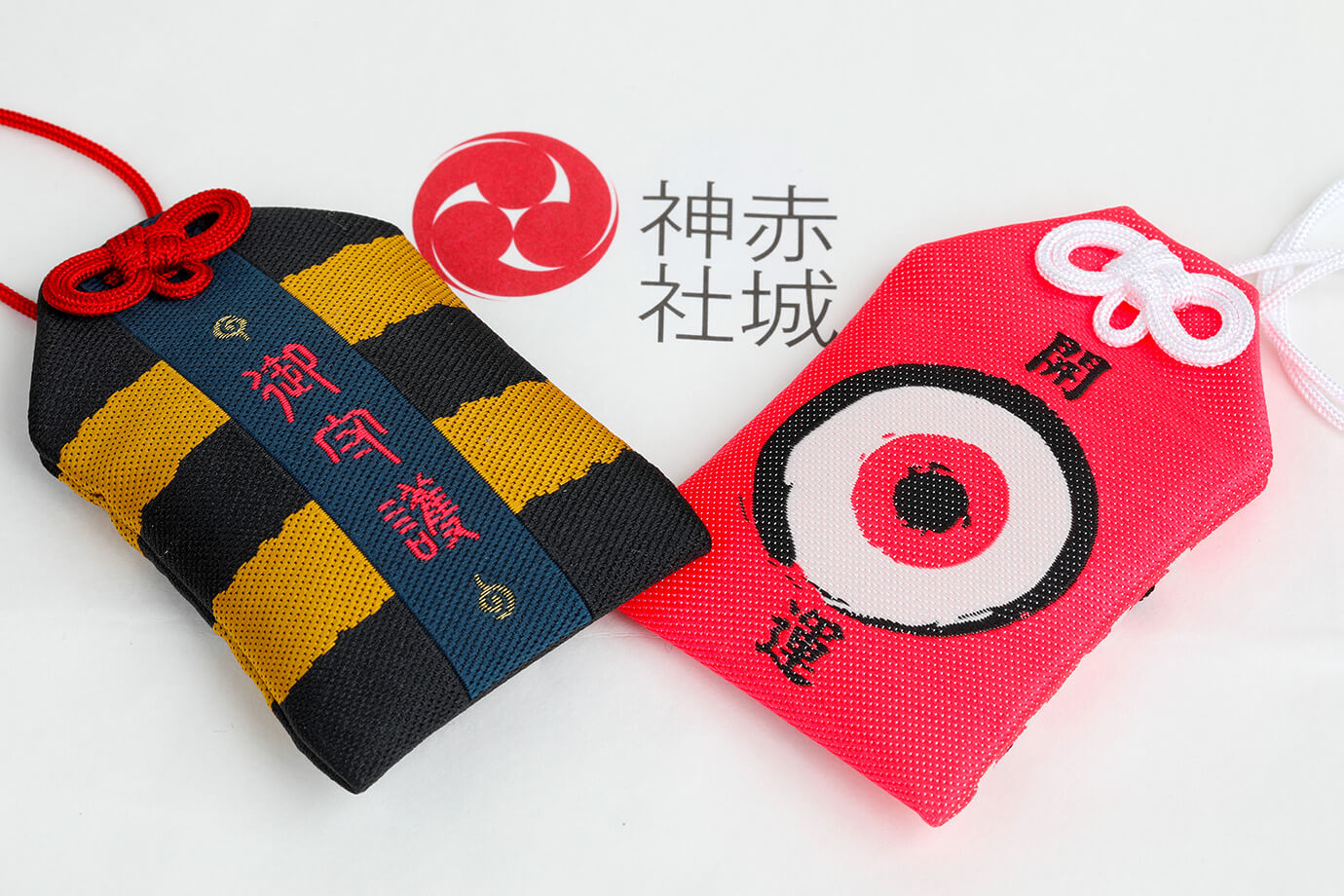
The Chanchanko charm for 1,000 yen (left) and Medama Oyaji charm for 1,000 yen (right) were created through the association with Shigeru Mizuki, who once visited the shrine to pray. The Medama Oyaji charm is said to contain a wish that the recipient will have good prospects for the future.
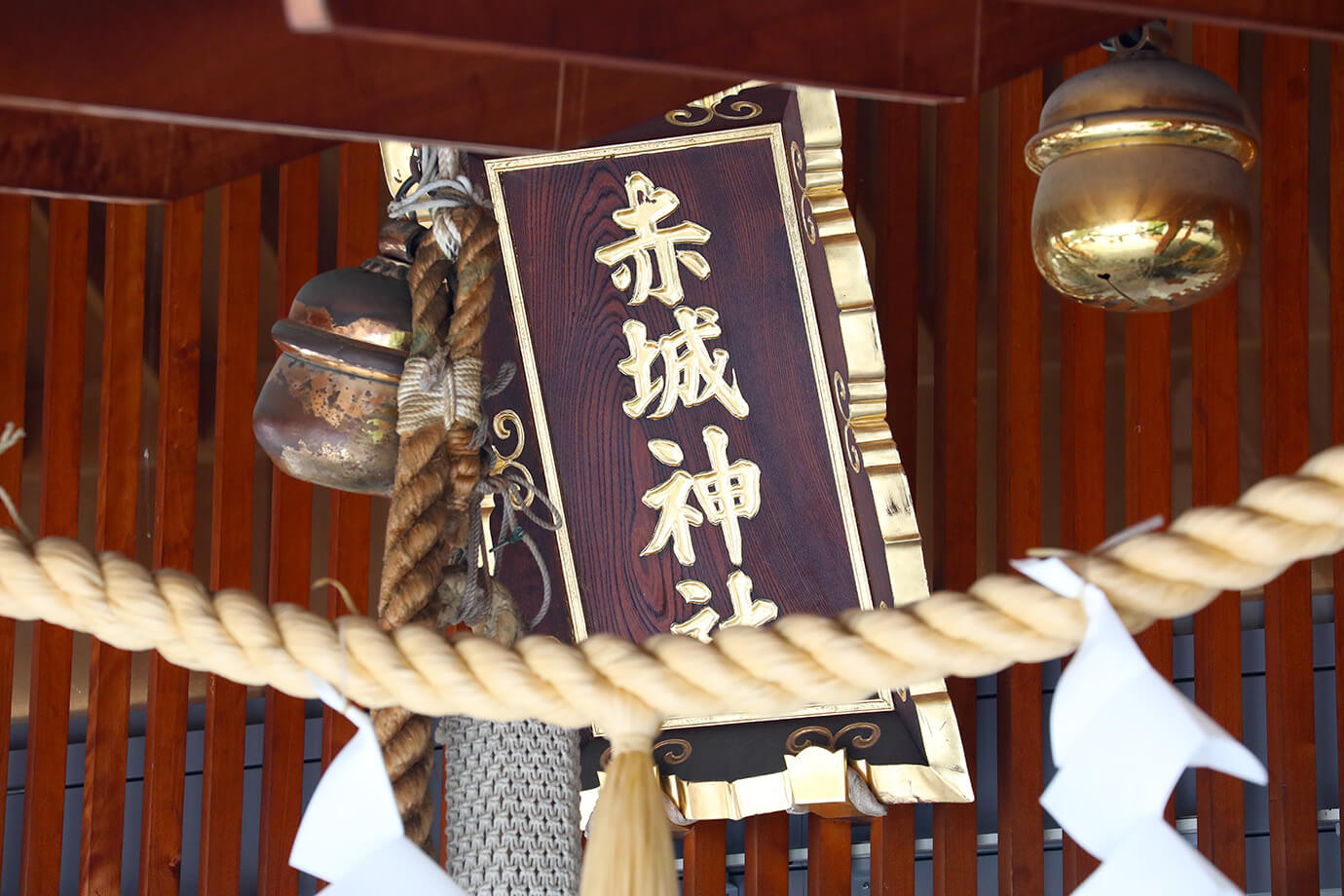
At the Akagi Cafe, which is located on the precincts, visitors can enjoy Italian cuisine and cafe menus after visiting the temple. Events such as the "Akagi Marche" and "Akagi Yose Performance" are also held to bring people together. Akagi Shrine is putting forward a completely new vision for how a shrine can operate.
Akagi Shrine, grand shrine of Ushigome
Address:1-10 Akagi-Motomachi, Shinjuku-ku, Tokyo
Telephone:03-3260-5071
Opening hours:precincts always open to the public
Closed:Open every day
tenaraido kagurazaka (s)store
Stop by and enjoy "tenarai" (learning skills) with all five senses.
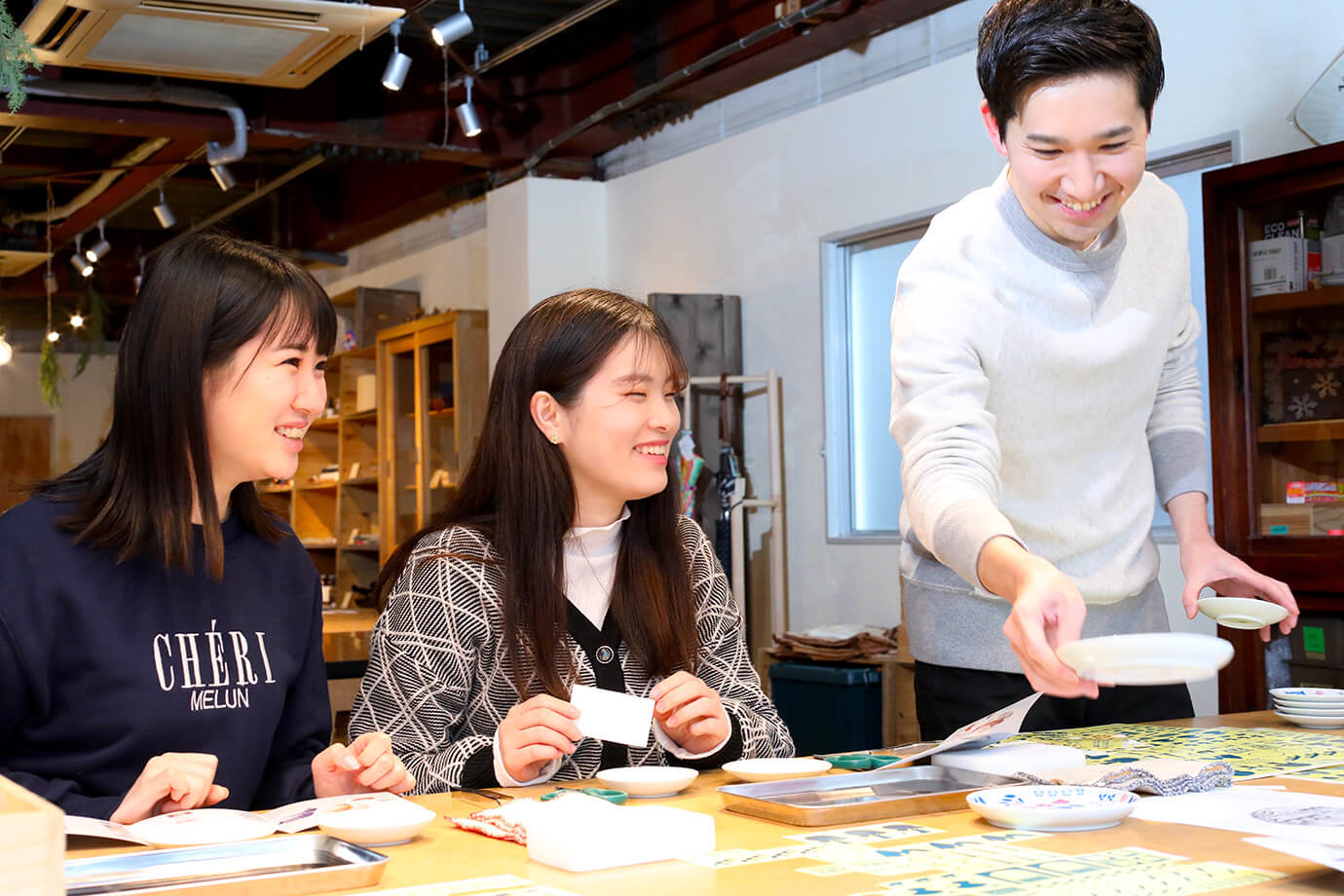
tenaraido kagurazaka rethinks the conventional act of "buying" by encouraging people to learn from the makers, make things themselves, and continue to use them while repairing them. It offers a variety of experiences and workshops based on the theme of "changing the way we acquire things”.
At the store, you can experience "tenarai" without a reservation during opening hours. This time, we tried our hand at making Arita-yaki mamezara dishes.

The process is simple! Simply slide the wet transfer paper onto the Arita-yaki mamezara any way you like and apply it in the desired locations. Apparently, this is the exact same technique used at the Arita-yaki pottery site in Saga.
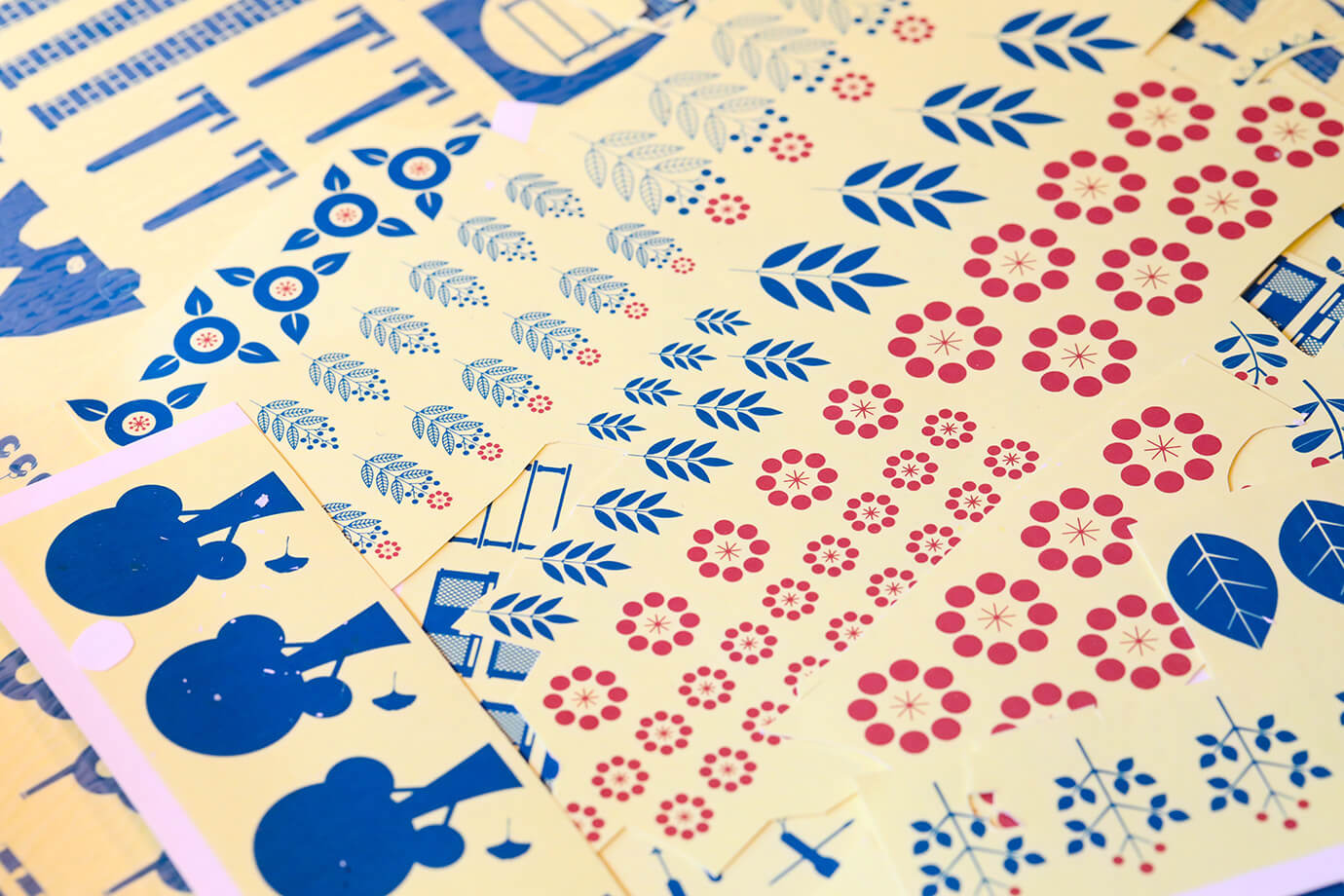
The "Mamezara dish tenarai" workshop is held with the cooperation of KIHARA, a 400-year-old trading company from the Arita-yaki pottery production area. The transfer paper patterns are unique to KIHARA. You can use as many patterns as you like from the "Arita Icon" series, which features iconic Arita-yaki pottery landmarks, scenery, and tools, in any combination you like.
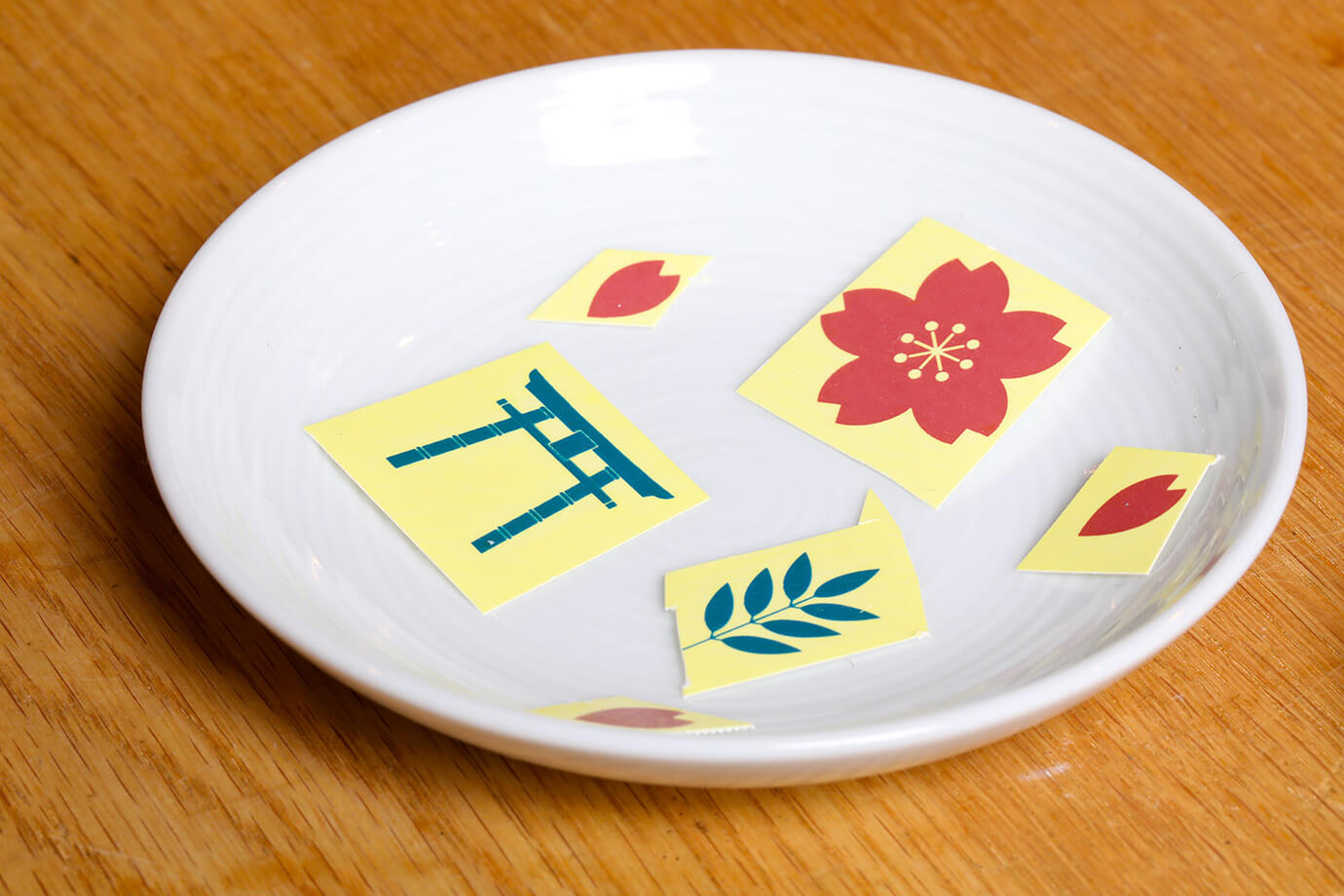
What pattern should I use for a plain white mamezara dish? Decide on the placement of the pattern while letting your imagination roam. You can make up to two mamezara dishes in each session.
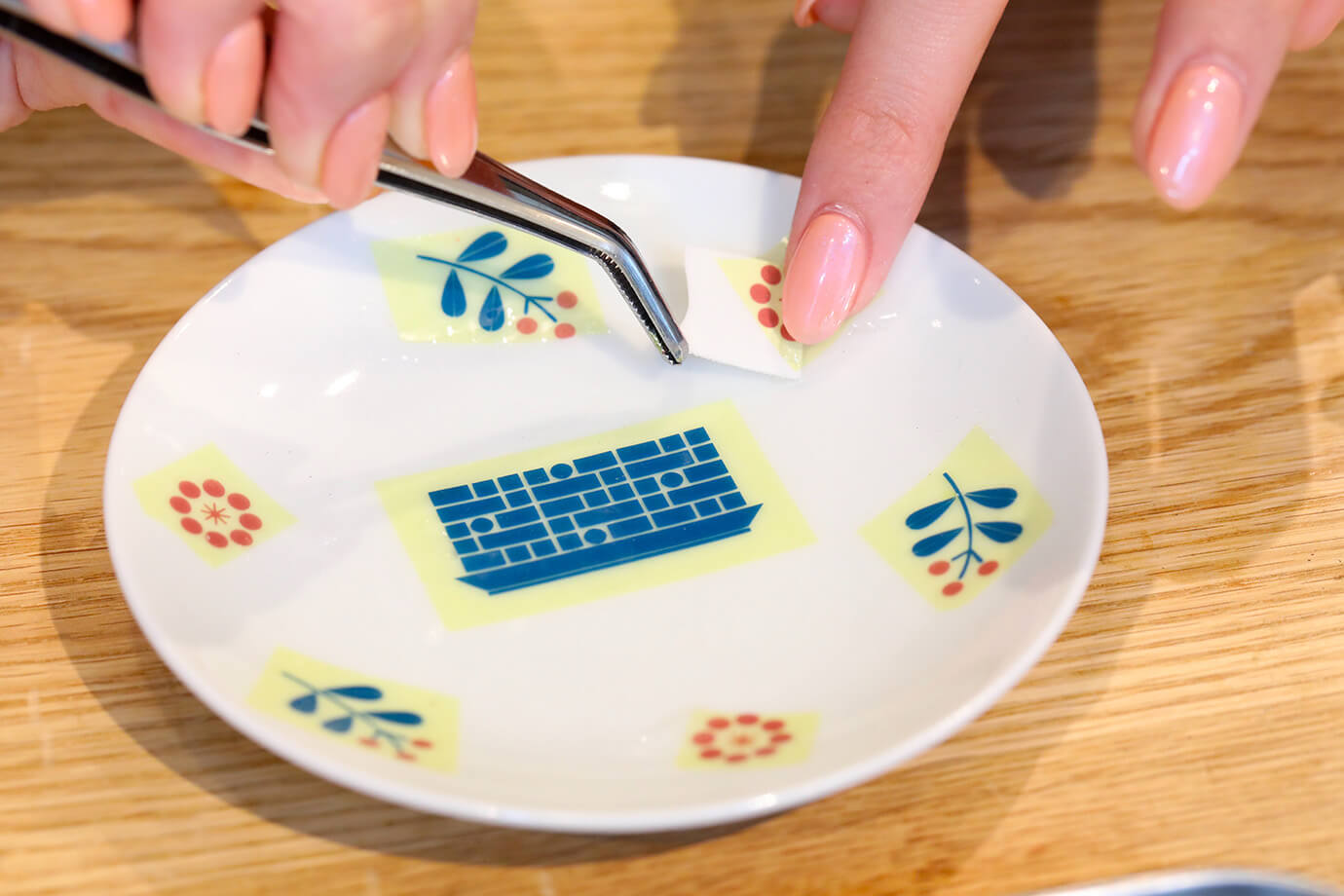
Wet the transfer paper with water, stick it to the dish, and slowly peel off the backing paper to reveal the design on the dish. Don’t worry if you make a mistake. You can reapply it.
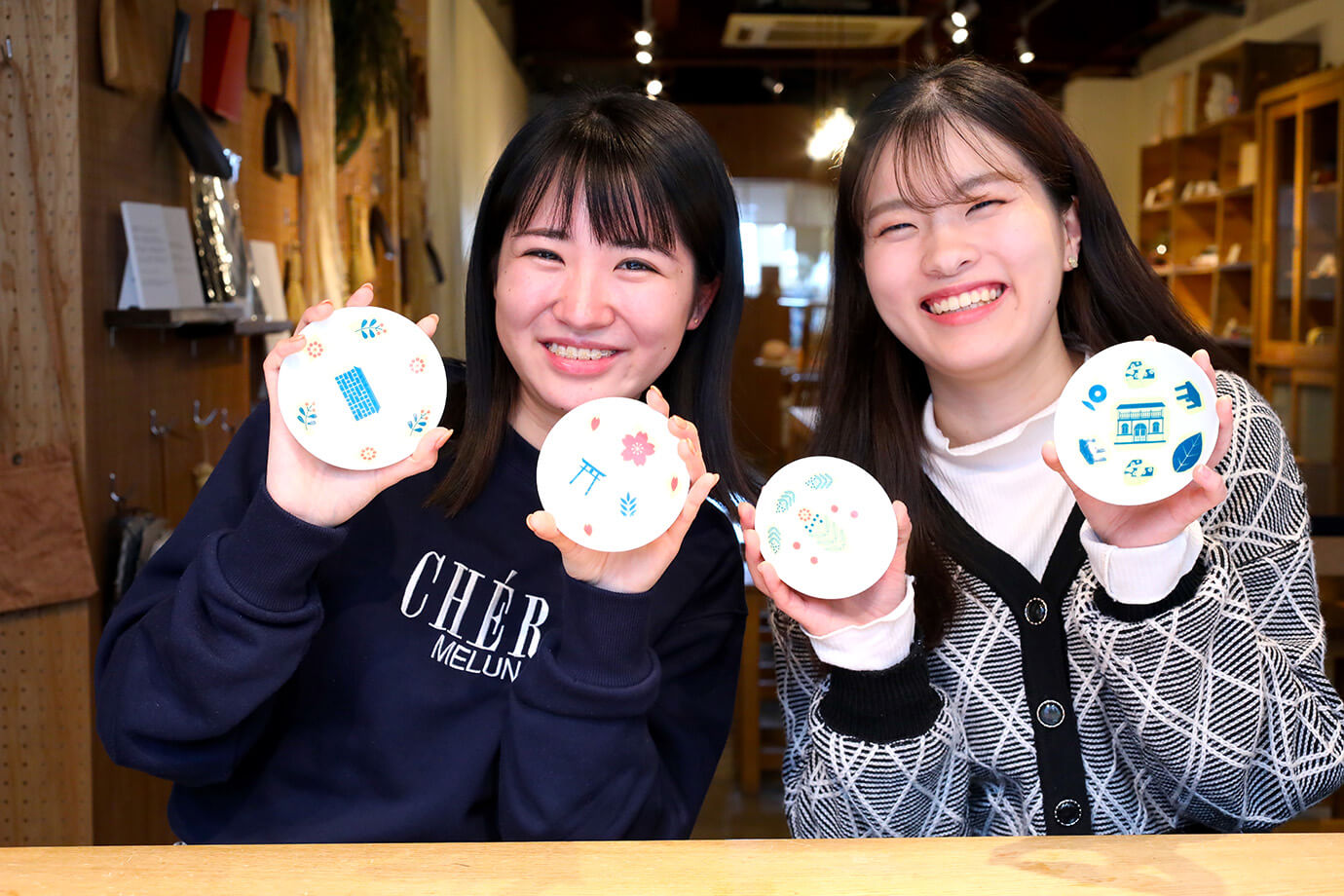
When you have finished setting it up how you want it, leave it with the staff. The pieces are then sent to the Arita-yaki pottery for firing to complete the process. The finished mamezara dishes will be mailed to your home or other locations in about a month and a half.
A strong and convenient Arita-yaki mamezara dish will be ready for you to use.
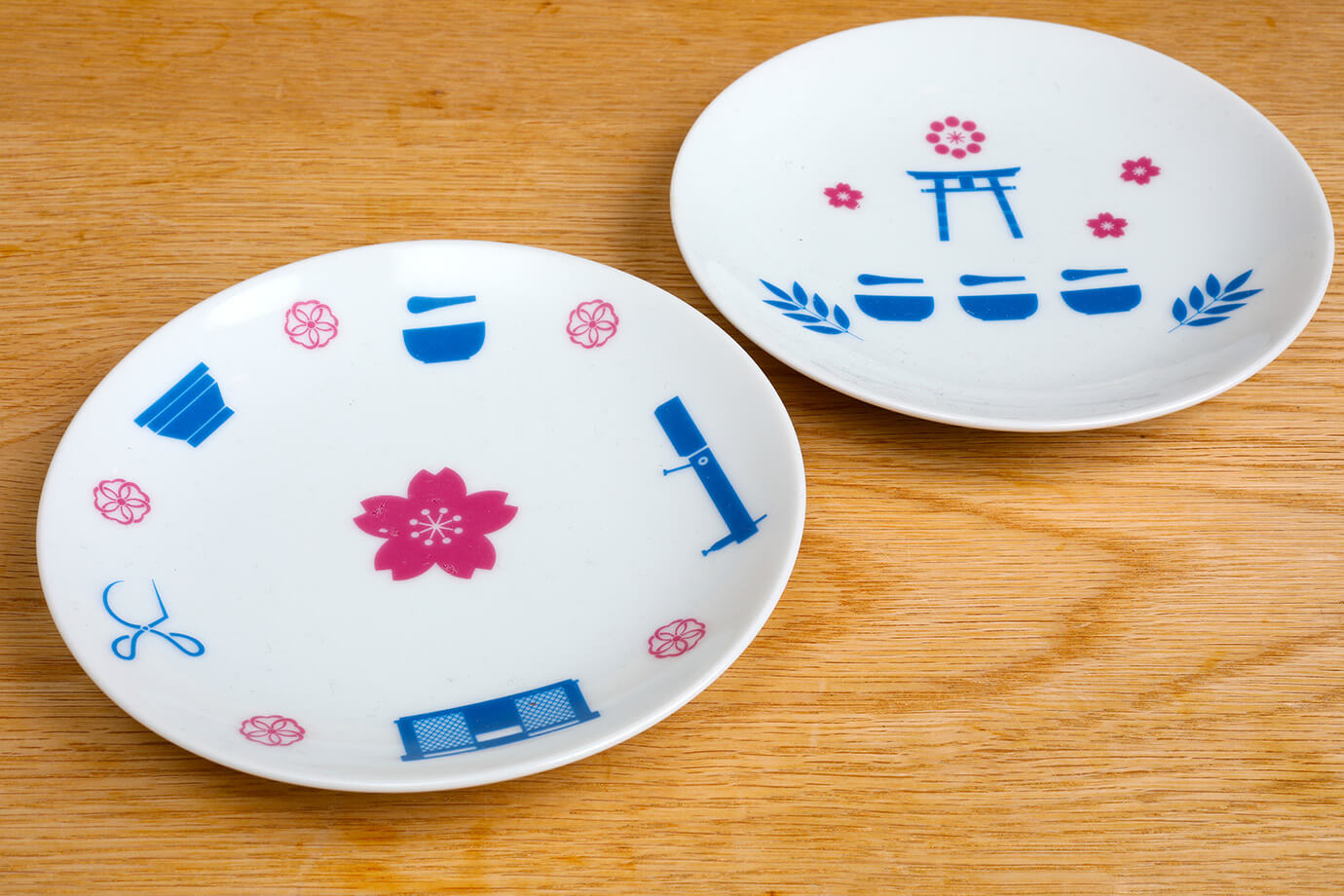
This is the finished product. The design is so cute! It has a modern finish that can also be used for interior decoration. The double-firing process makes the dish strong, and the pattern will not fade even if washed or scratched.
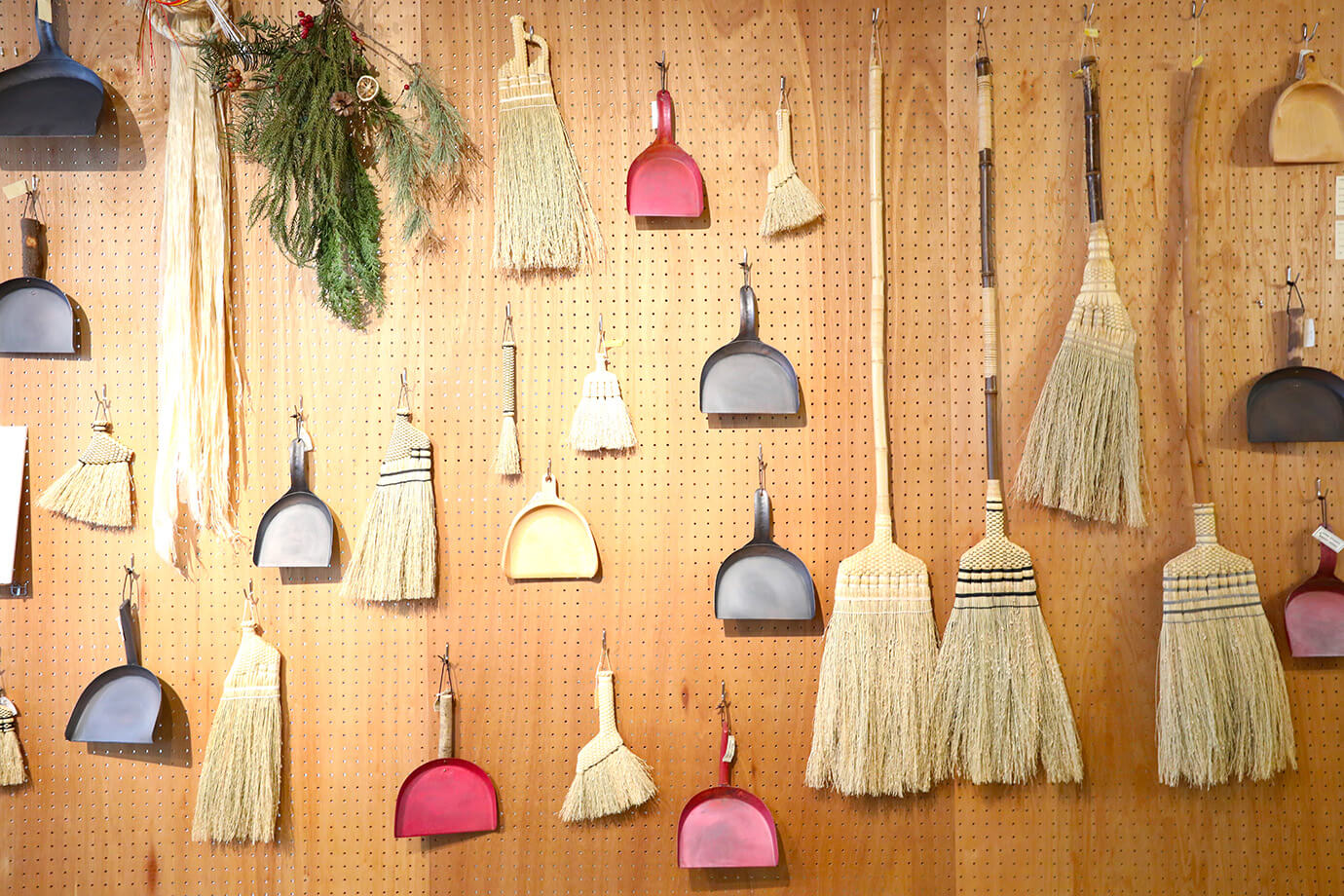
The Tenarai-do Hall offers a variety of experiences and workshops on a daily basis, including “mamezara dish-making" and "kintsugi repair". On some days, you can try "making soot-sweeping brooms" and "darning classes”.
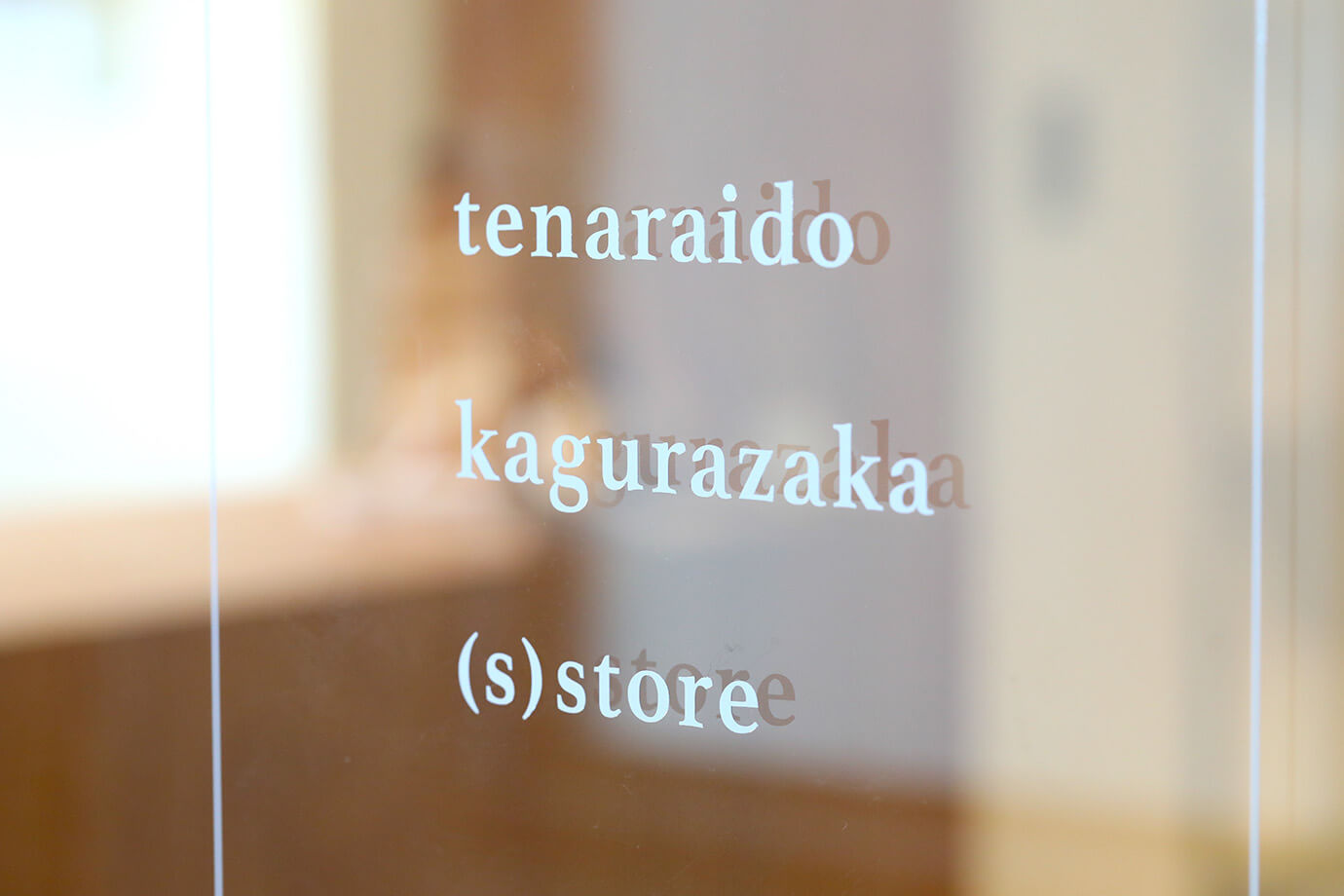
Located on the second floor of a building with a narrow frontage that could easily be missed, it feels like a "secret workshop" where visitors can enjoy an extraordinary experience. Please check the website for the schedule for sessions and workshops.
tenaraido kagurazaka (s)store
Address:2F Chigusa Building, 118 Yaraicho, Shinjuku-ku, Tokyo
Telephone:none (please email tenaraido@tsuzuku.co.jp)
Fee:starting at 4,400 yen for up to two mamezara dishes (60 to 90 minutes). For other experiences, please see the website.
Opening hours:11:00-18:00
Closed:Mondays, Wednesdays, Thursdays
Kagurazaka Gojuban Sohonten
One bun is enough to fill you up! The perfect place for a generously filled steamed pork bun!
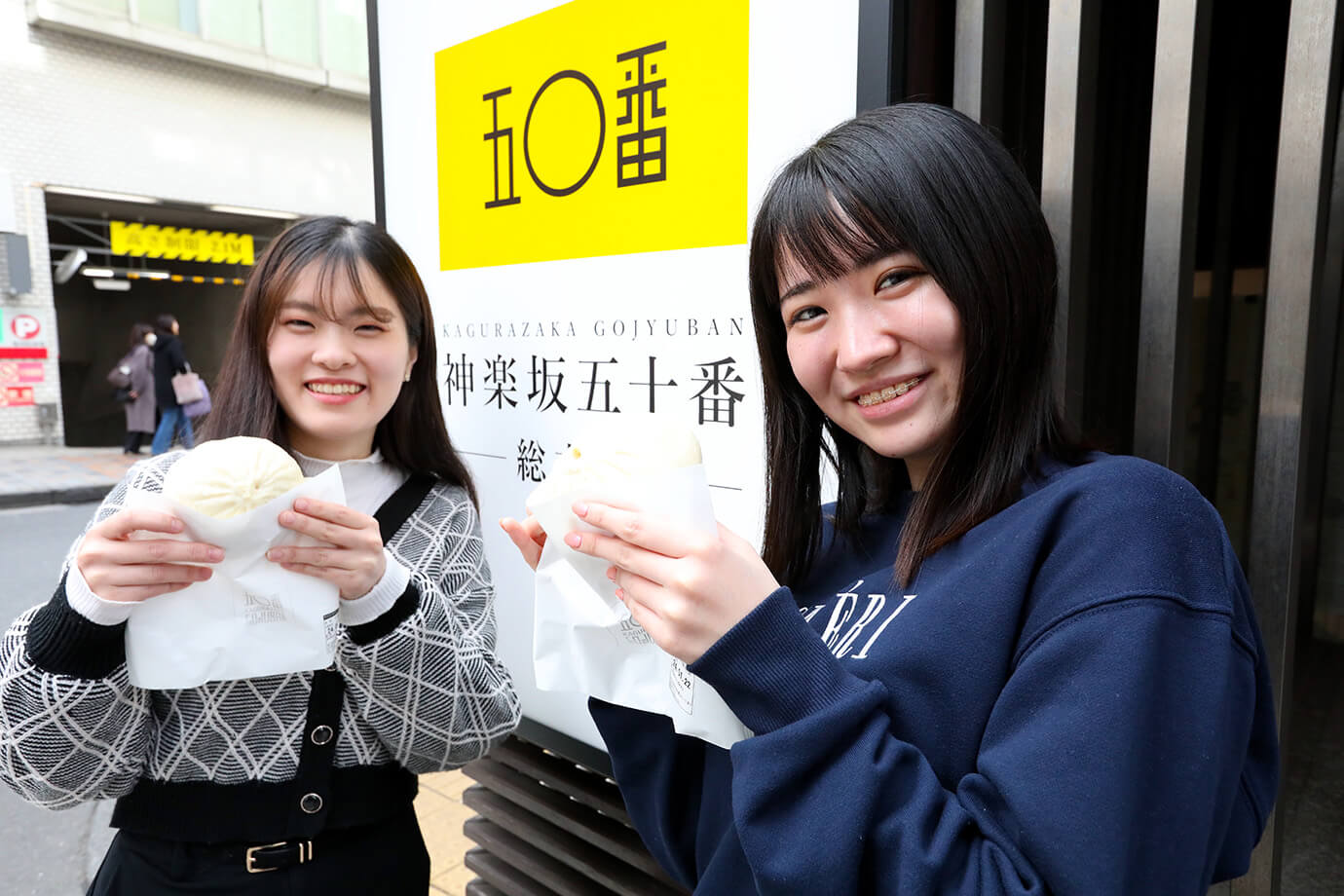
Established in 1957, Kagurazaka Gojuban Sohonten stands near Bishamonten Temple in Kagurazaka. Since its establishment, the restaurant has been making steamed pork buns and dim sum, avoiding preservatives and additives as much as possible, and sticking to pork, vegetables, and carefully selected ingredients from Kagoshima Prefecture.
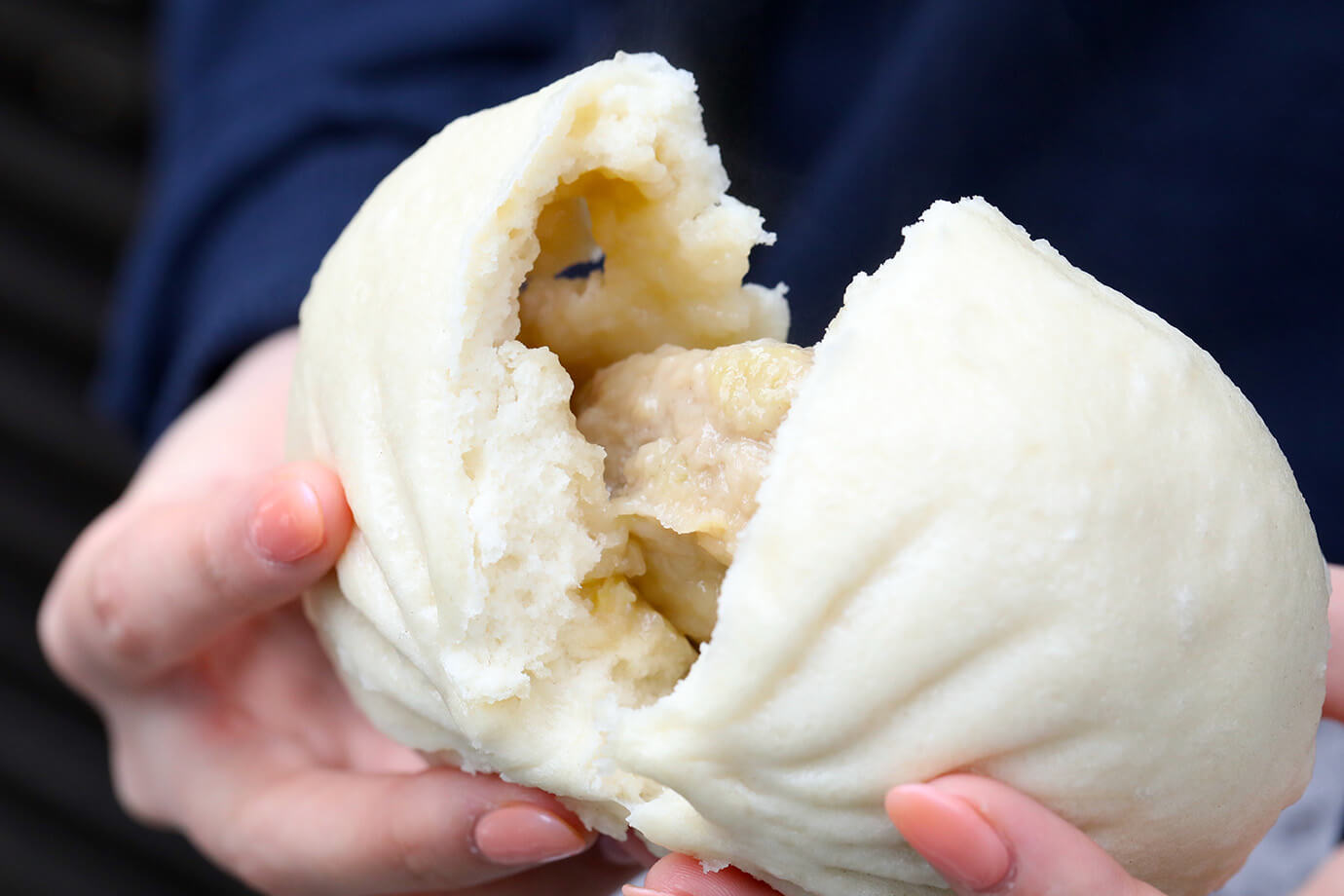
A takeaway freshly steamed pork bun sells for 460 yen. It feels heavy in your hand. Inside the hot bun is a generous filling made from Kagoshima pork and cabbage, full of delicious meat juices! Other items available include a smaller medium-sized bun for 360 yen, a Kurobuta Curry Bun for 350 yen, and an Olive Duroc Pork Bun for 350 yen.
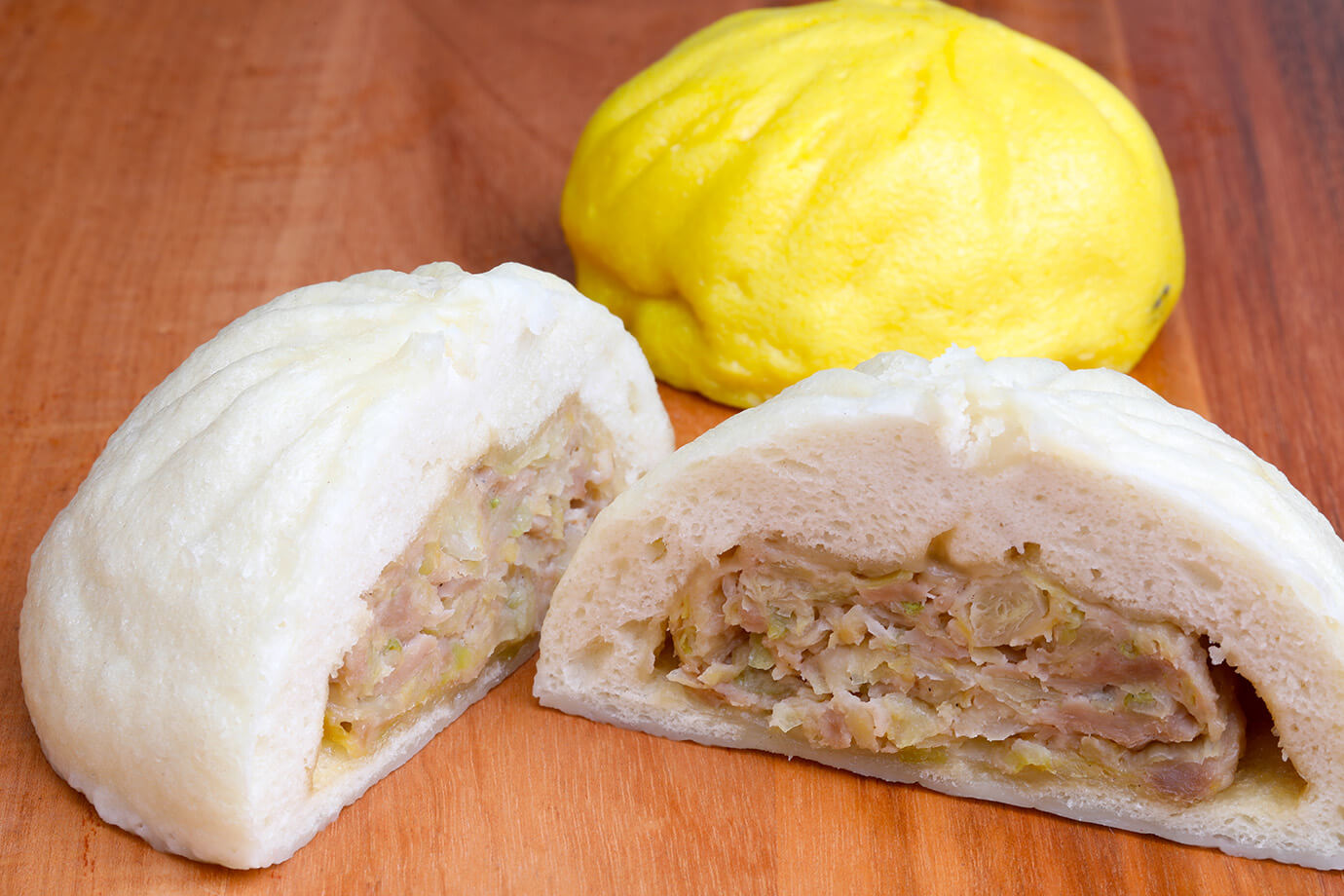
This bun has been cleanly cut in half. The bun is thickly made, with no gaps. You can see that the filling is tightly packed. The Kurobuta Curry Bun (at the back) has a yellow skin colored with gardenia, and is filled with rich curry made with Kagoshima Kurobuta pork.
Individually wrapped steamed pork buns are convenient souvenirs.
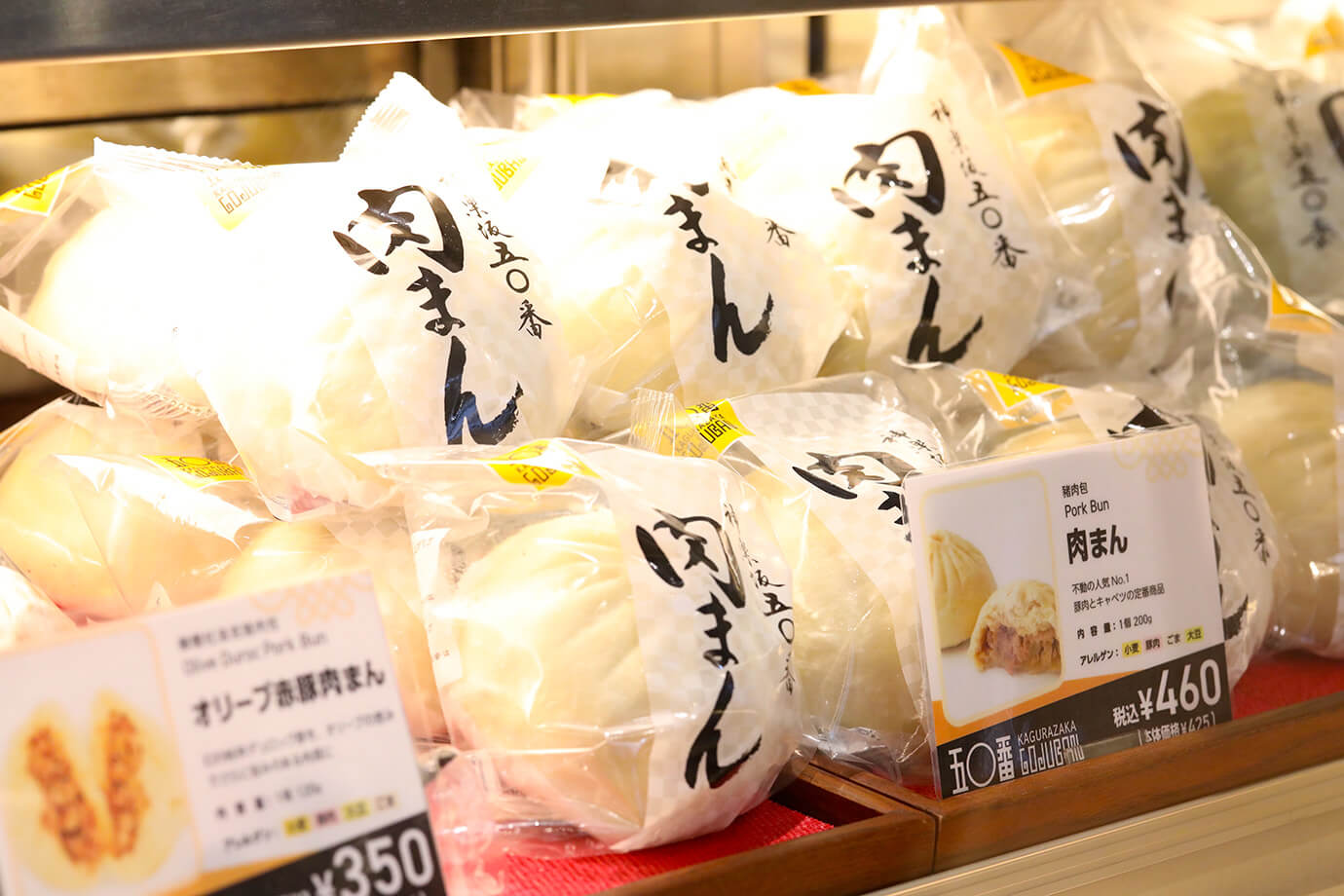
The showcase is filled with chilled products that can be bought as souvenirs. You can enjoy the same taste at home using a steamer or microwave oven, so you might want to buy a variety of buns as souvenirs. Other products are available that are convenient to have in the refrigerator, such as meat shumai, gyoza, and Kurobuta chimaki rice cakes.
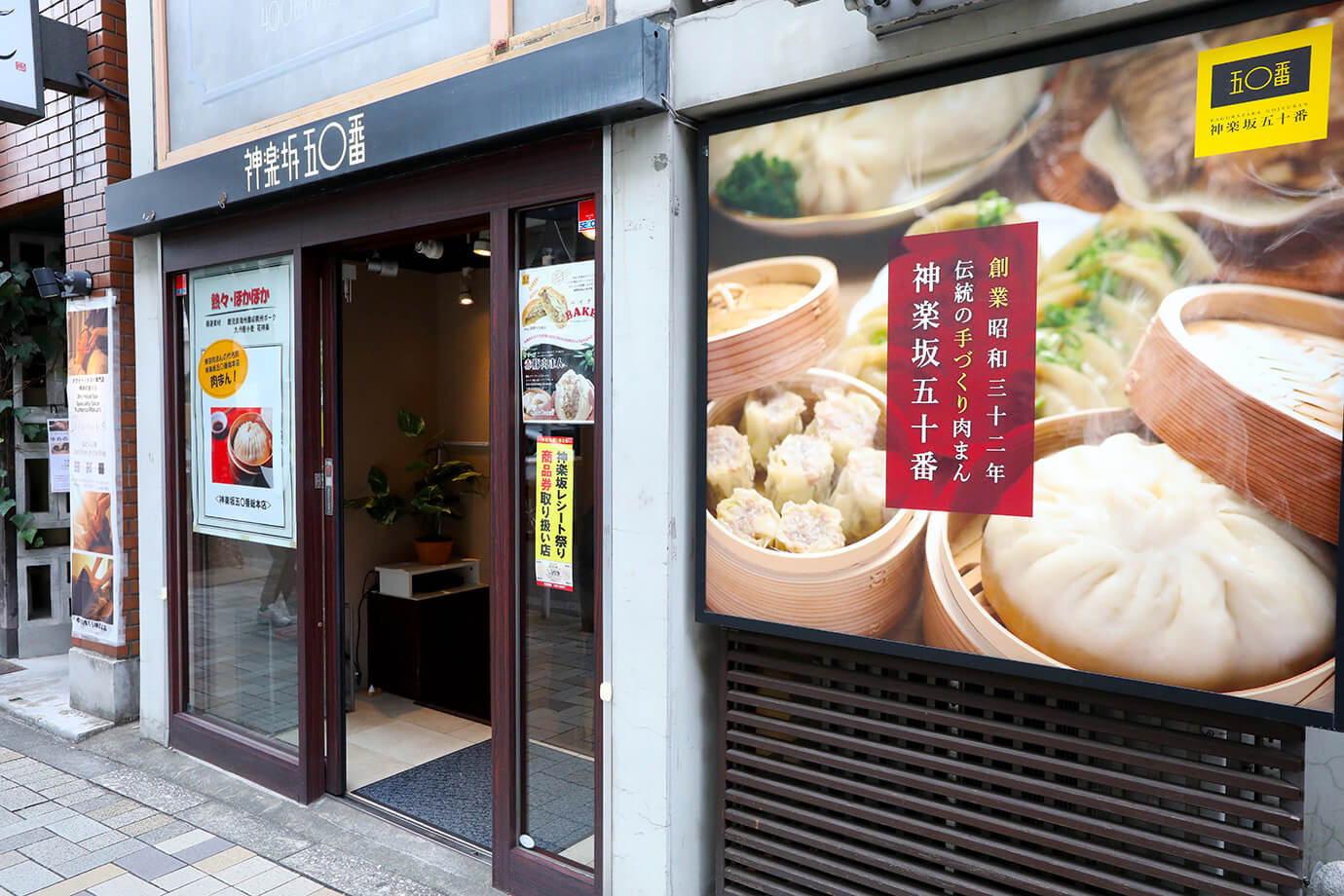
The store stands across from Bishamonten Temple on the hilltop of Kagurazaka. If you are feeling a little hungry, why not stop by and munch on a hot steamed pork bun!
Kagurazaka Gojuban Sohonten Store
Address:1F Omiya Building, 4-3 Kagurazaka, Shinjuku-ku, Tokyo
Telephone:03-5228-8450
Opening hours:10:00-21:00 (closes at 20:00 on Sundays and national holidays)
Closed:Open every day
Fujiya Iidabashi Kagurazaka
You might be lucky enough to meet Poco! This famous character from Kagurazaka is just too cute!
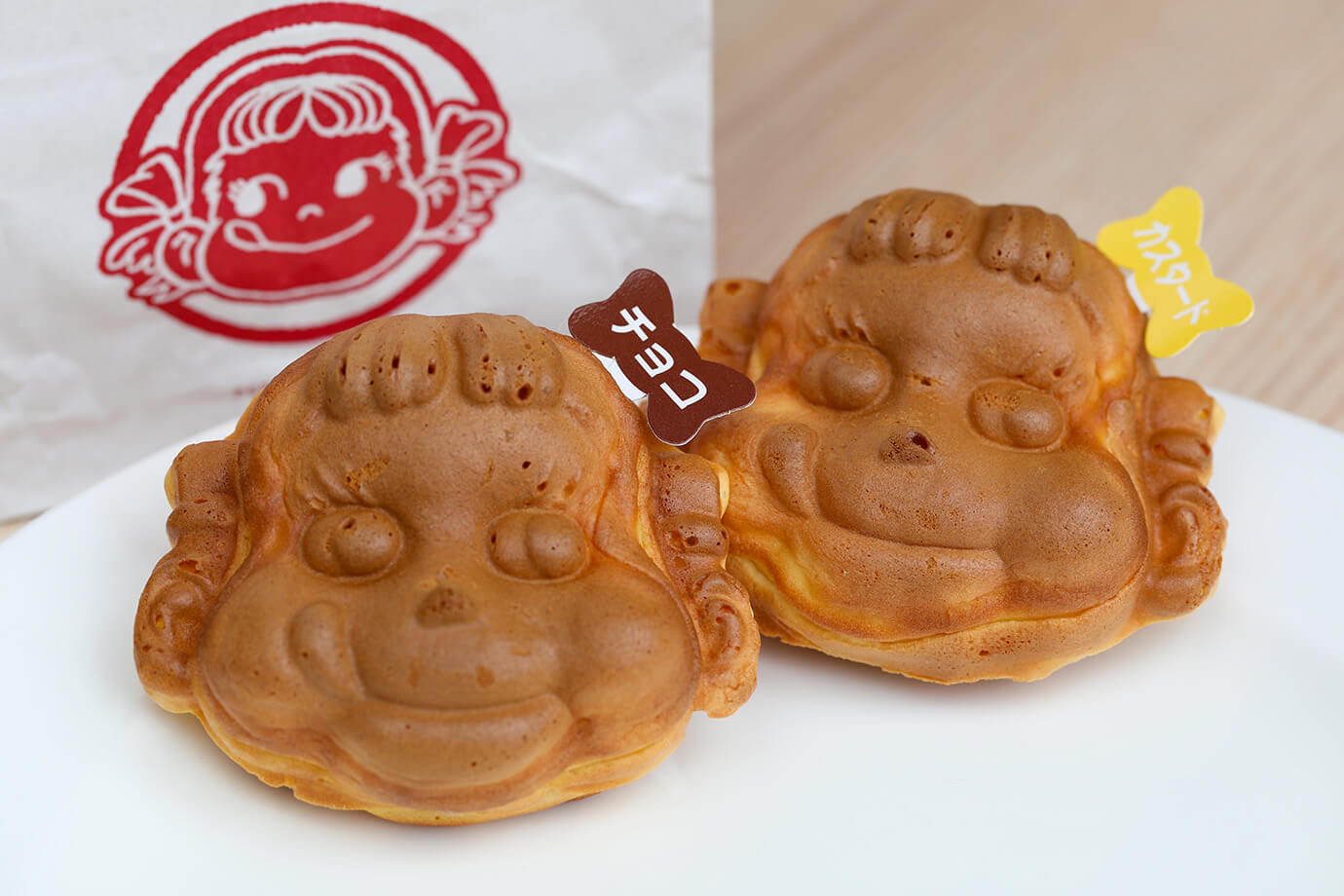
Fujiya Kagurazaka has been selling "Peko-chan-yaki" filled pastries since 1969. Peco-chan-yaki used to be sold at all Fujiya stores nationwide, but 50 years later they are only available at the Kagurazaka store. They have remained a favorite snack for children since the Showa era.
The photo shows the standard chocolate pastry, which costs 245 yen, and the custard pastry, which costs 210 yen.
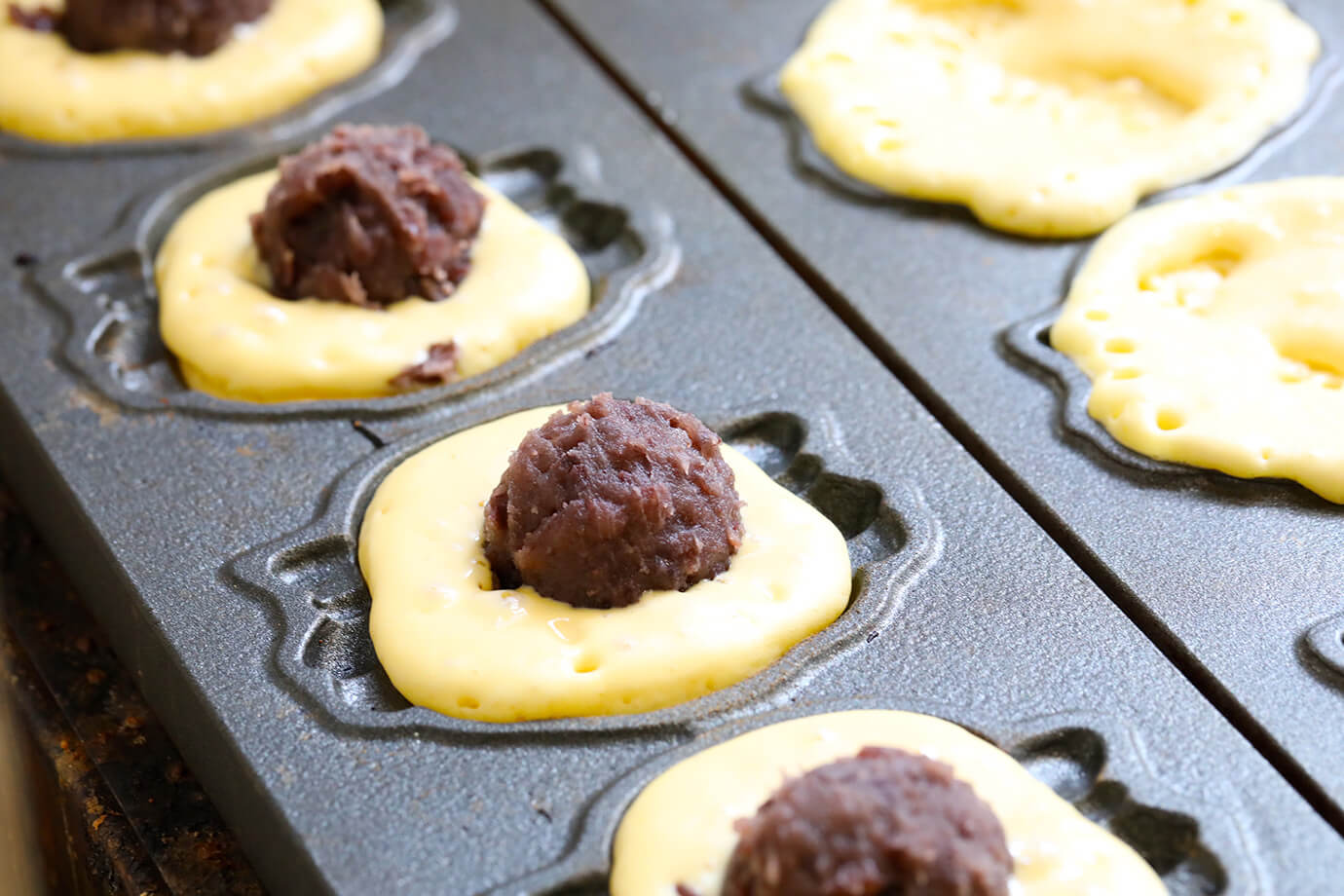
The entrance to the store is made of glass, so you can watch the baking process from the outside. Craftsmen pour the batter on both sides of the Peko-chan molds, which are lined up in a row, and then place the filling on the face side.
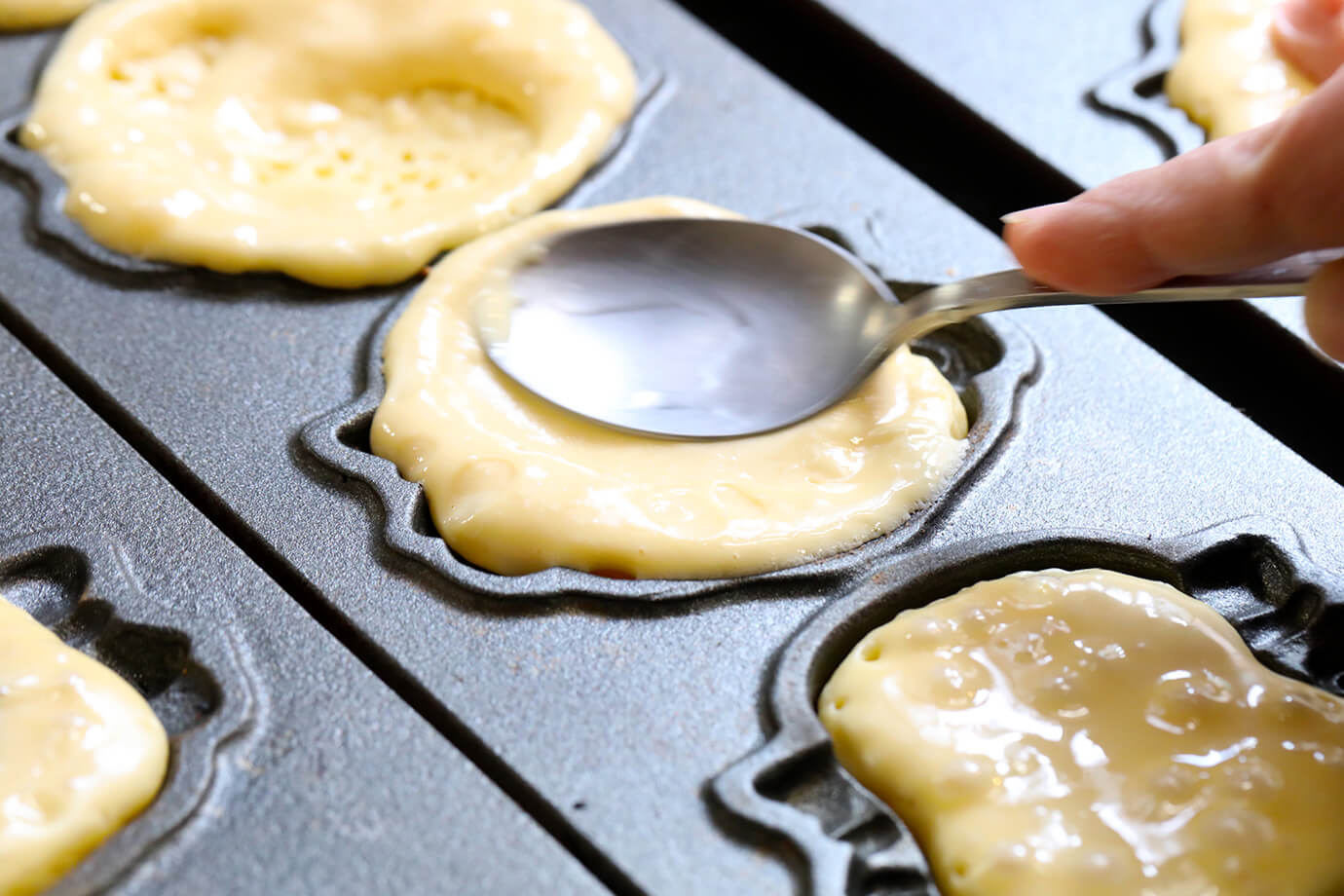
The back side of the head is indented with a spoon to prevent the filling from coming out. Each one is painstakingly made. When both sides are well baked, the molds are slammed together.
Looking more closely, I saw Poco, the lucky boy!
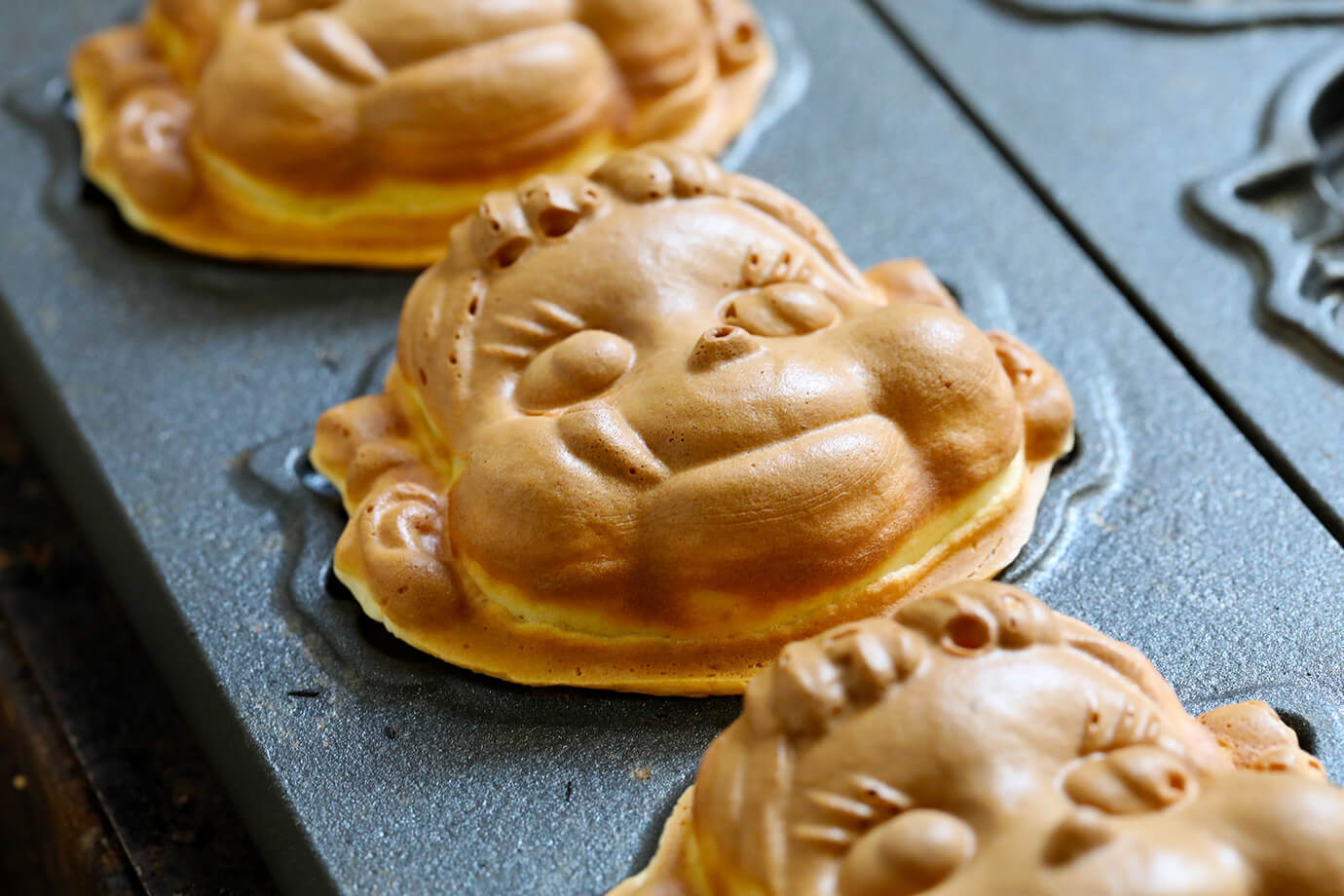
Beautiful Peko-chan is now finished. Among the many Peko-chans, there is actually a boyfriend, "Poco”. This is a rare character, only one out of every 72, so you will be extremely lucky if you come across it. Check to see if there are any on the store shelves.
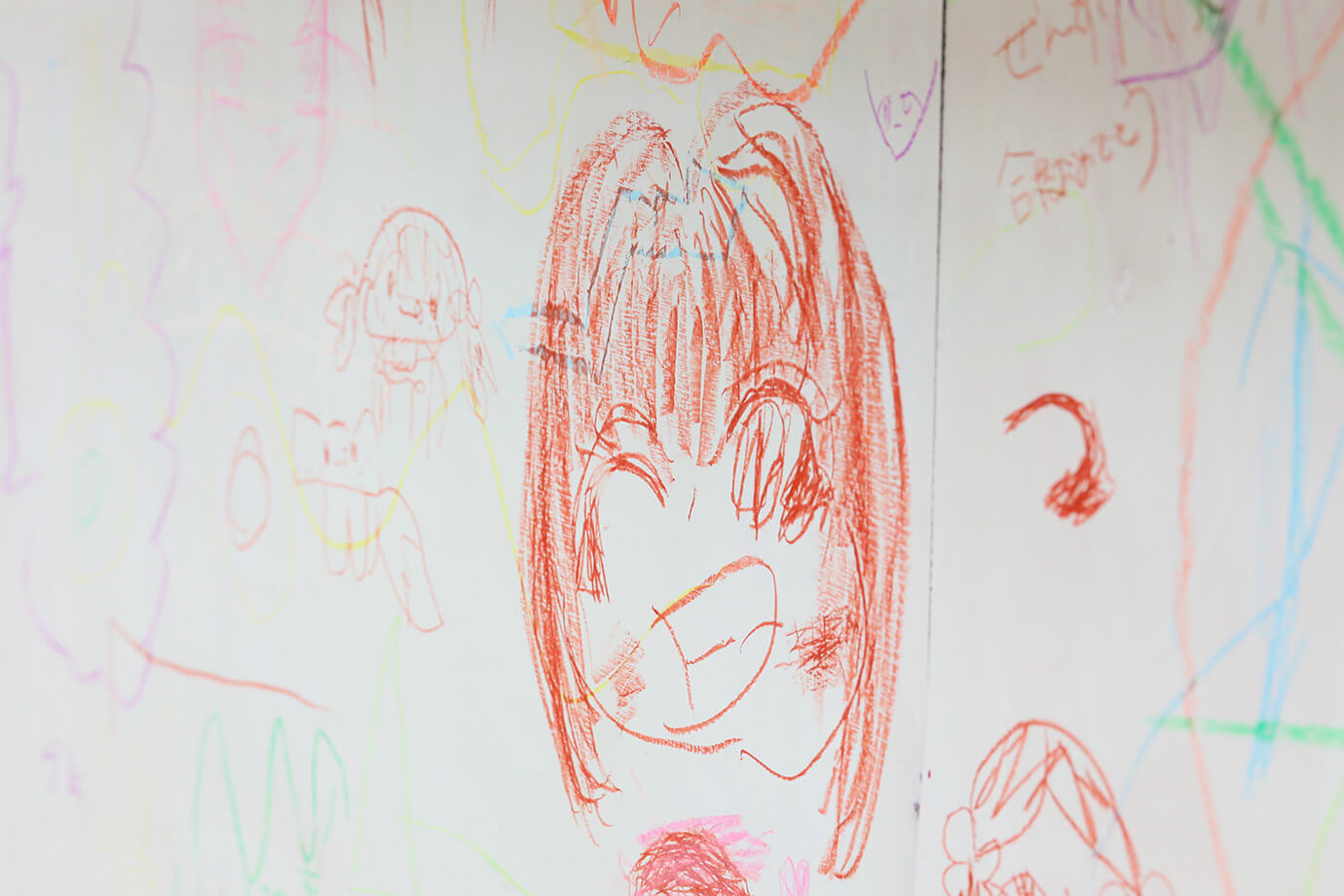
The showcase is lined with cakes made with seasonal fruits. Peko-chan goods are also available. A children’s drawing space has been made available on the walls, so you can shop with your little ones in peace.
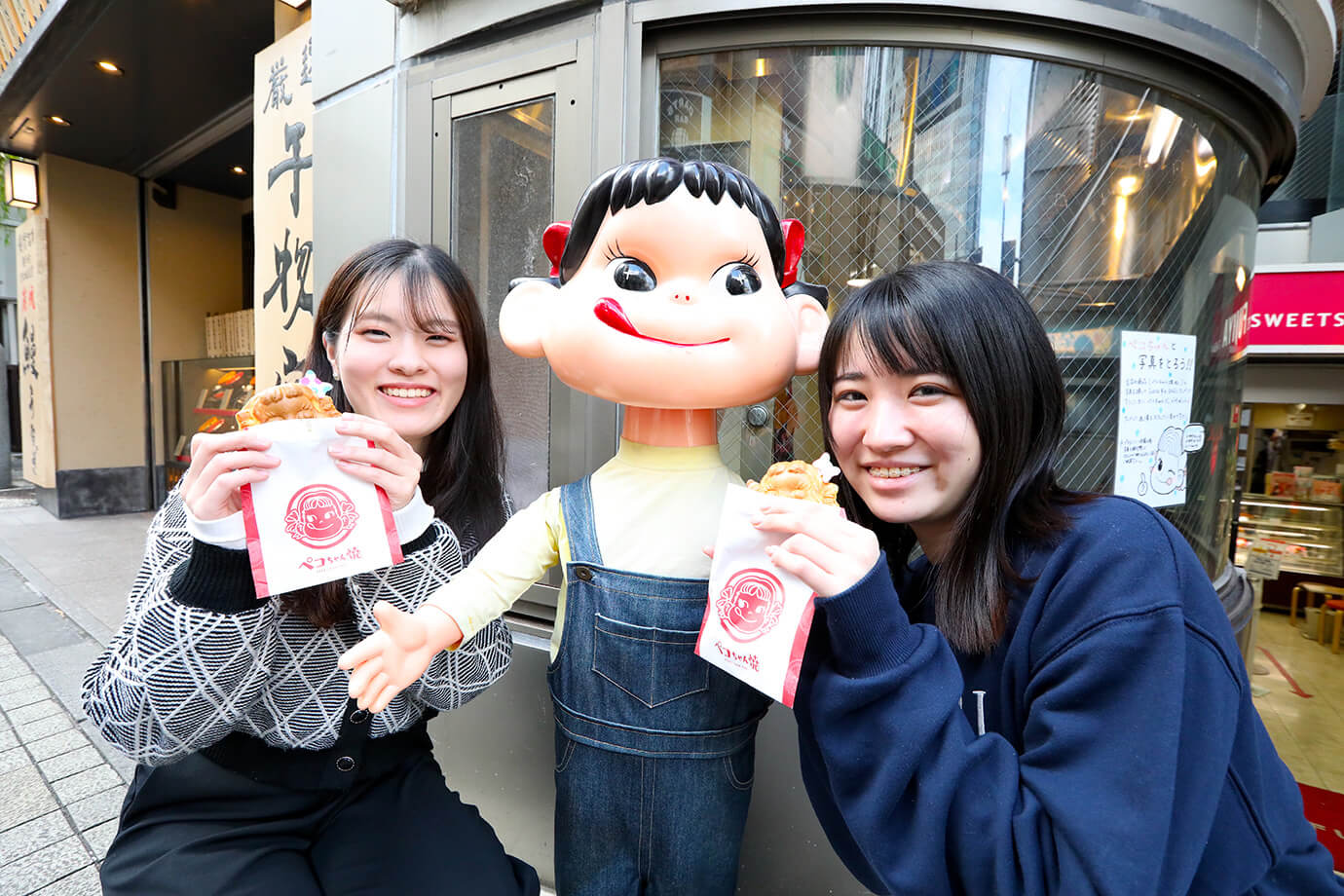
I'll have the popular "Milky Cream" for 255 yen and the "Kiwamikoshi-an" made with Tokachi azuki beans for 230 yen!
Other items include "Ita Choko" (melt-in-your-mouth chocolate) for 245 yen, "Cheese Cream" for 215 yen, and "Country Ma’am Cream" for 255 yen. Seasonal and monthly menus are also available, so be sure to check them out. Of course, you can also take them home.
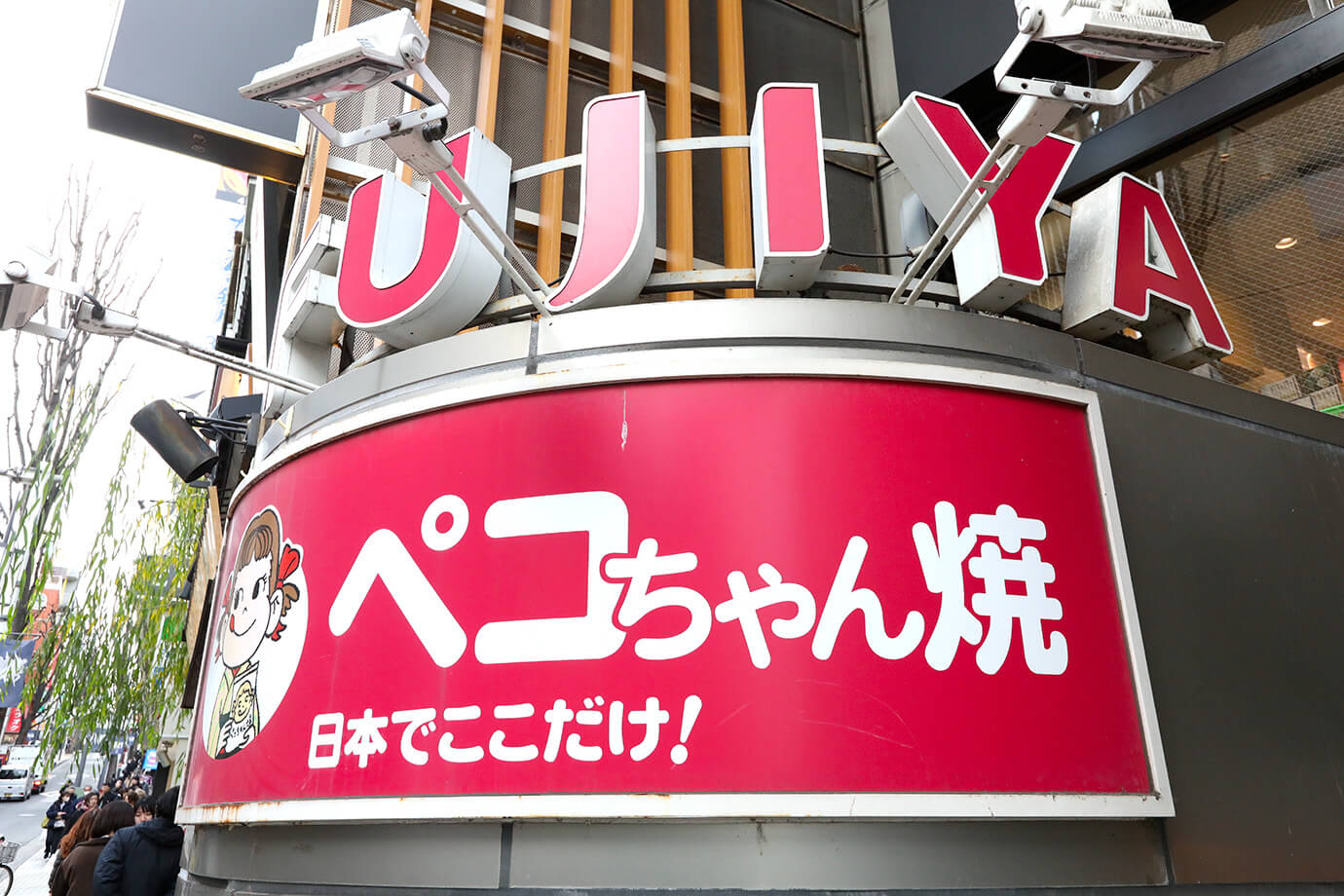
This is the only place in Japan where you can enjoy these Showa-style Peko-chan-yaki! Please try the different flavors.
Fujiya Iidabashi Kagurazaka Store
Address:1-12 Kagurazaka, Shinjuku-ku, Tokyo
Telephone:03-3269-1526
Opening hours:10:00-20:00 (Peko-chan-yaki baking finishes two hours before closing)
Closed:Open every day
Hotel Metropolitan Edmont Tokyo
The new guest rooms and laundry lounge have been made to improve comfort during your stay.
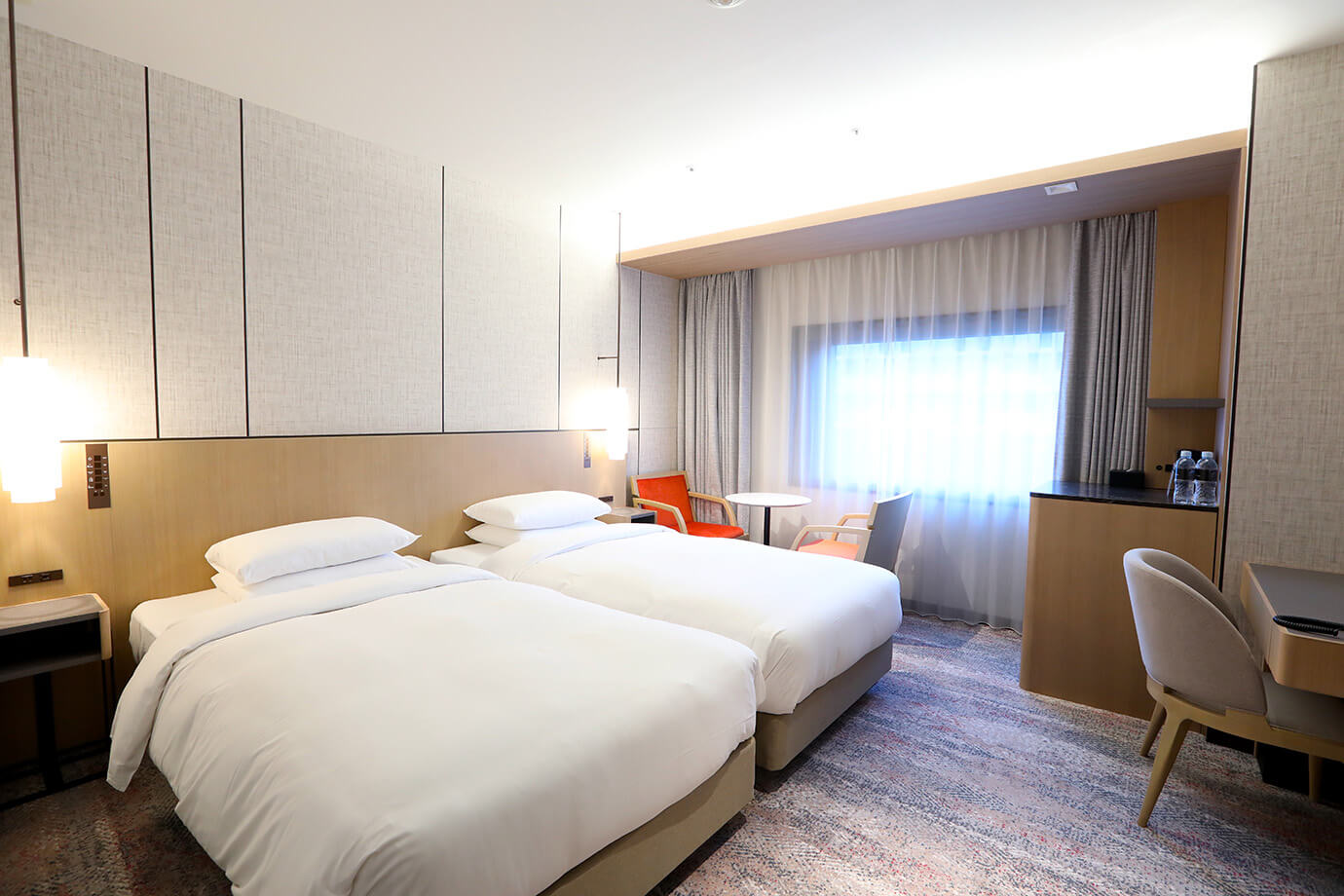
Hotel Metropolitan Edmont Tokyo has been completely renovating its guest rooms in the main building since 2021. In November 2023, two floors on the 4th and 5th floor of the main building were finally completed. The Edmont Superior Twin (pictured) has twin beds that can be used in a Hollywood twin configuration.
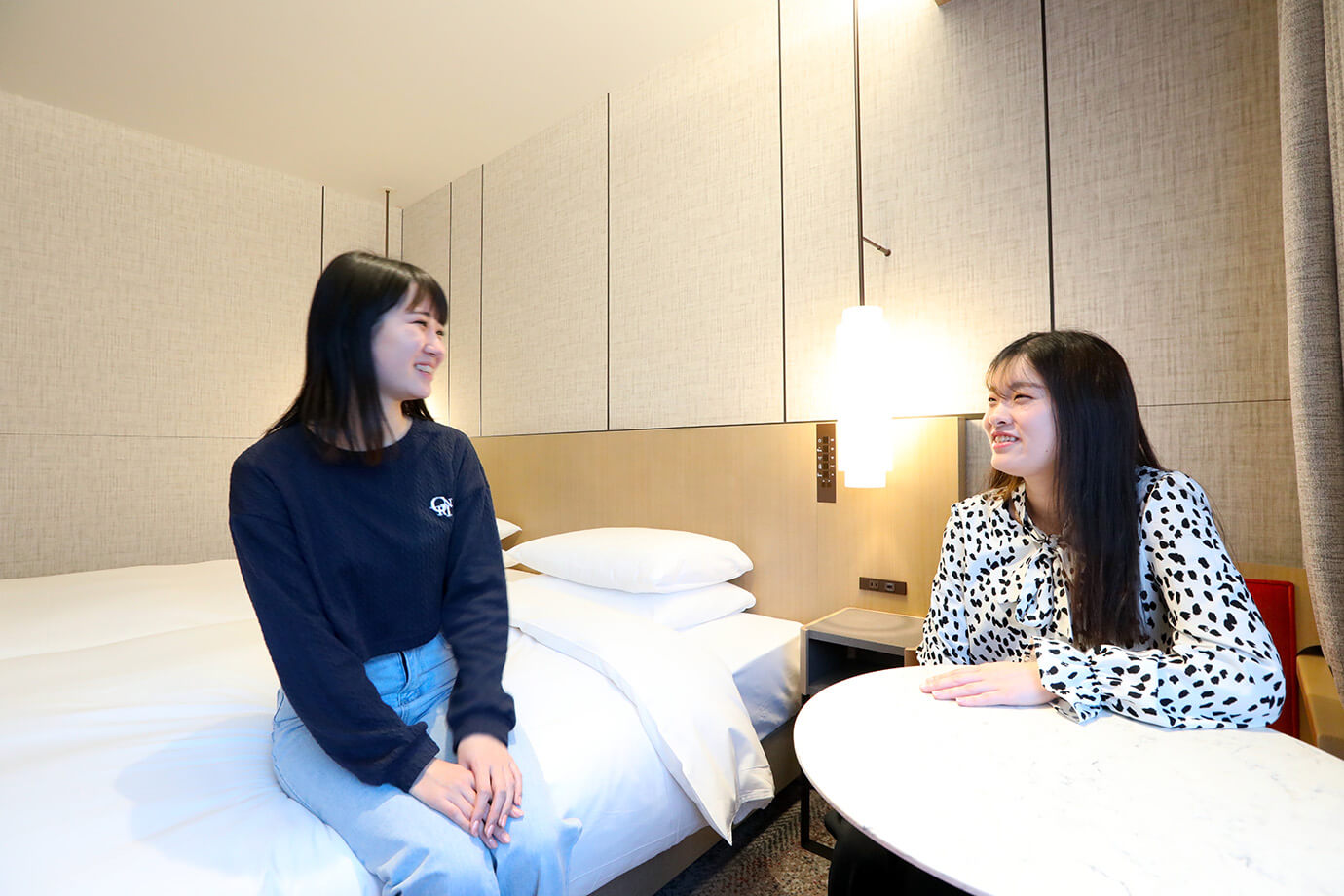
The rooms are comfortably bright, and there is plenty of space to relax by the window. A laundry with lounge space and a new gym with aerobic training machines have been added on the 4th floor, improving guest convenience during long-term stays.
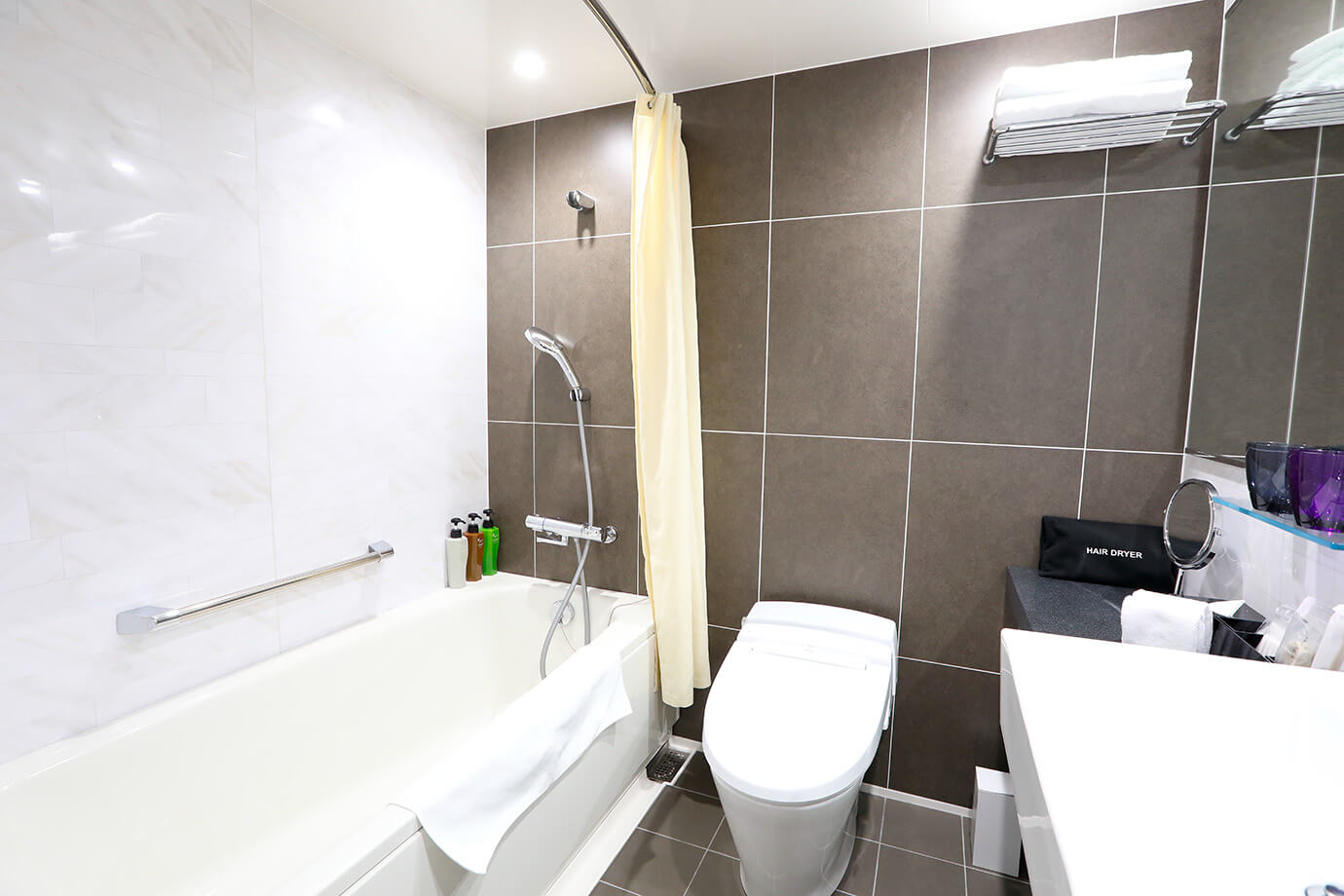
The unit bath is spacious, with an inner diameter of 160 cm, allowing even adults to stretch their legs in comfort and refresh themselves. The shower head is equipped with three functions: misting, massaging, and water-saving.
The Edmont hotel is well known for its excellent food and rightly proud of its Breakfast Buffet.
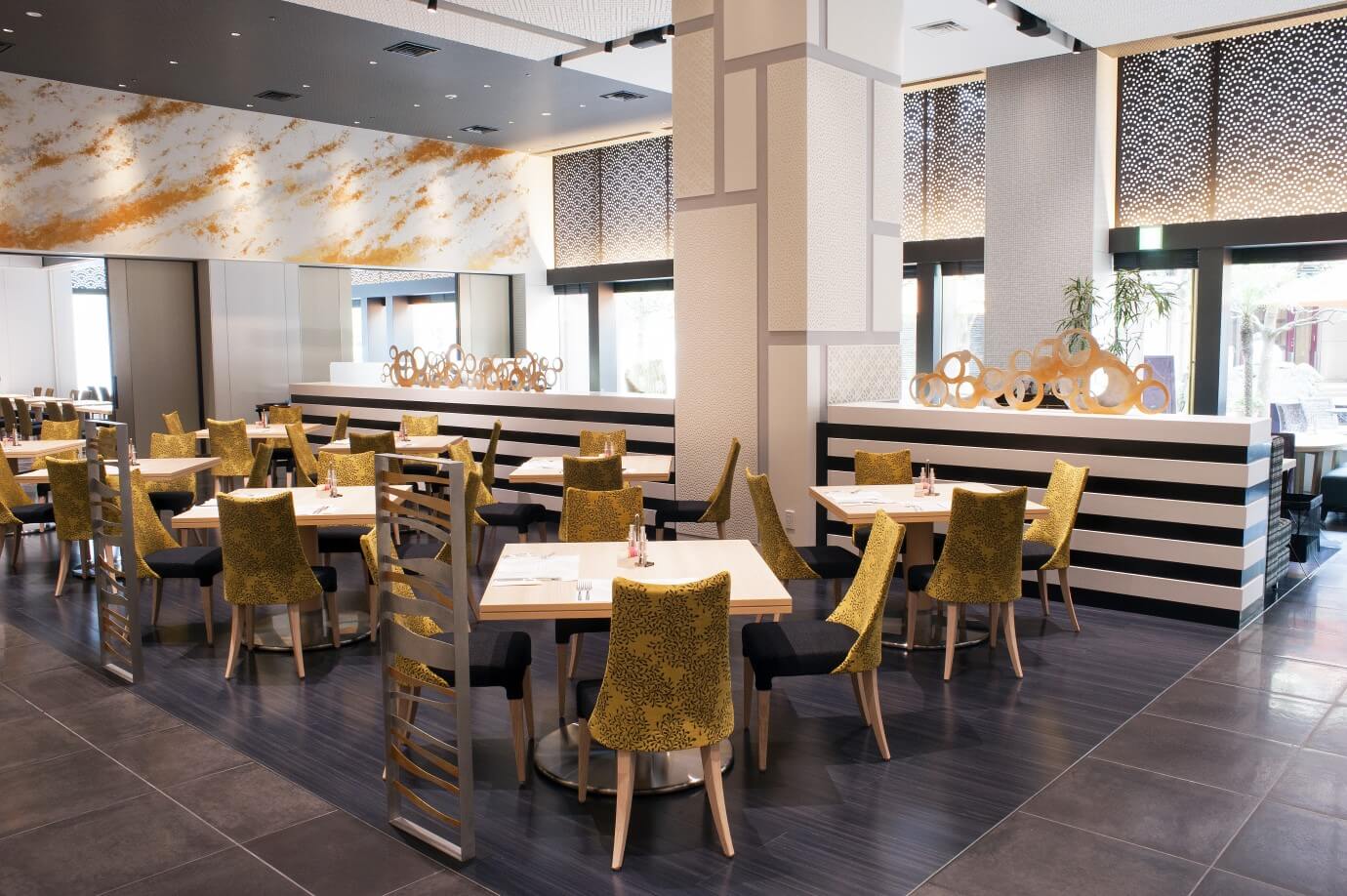
Hotel Metropolitan Edmont Tokyo is fortunate to have Katsuhiro Nakamura, the first Japanese chef to be awarded a Michelin star, as it Honorary Head Chef. His passion for pursuing authentic flavor has been passed down from generation to generation. Let us introduce you to the breakfast that is an important part of the Edmont hotel’s proud reputation for excellent food.
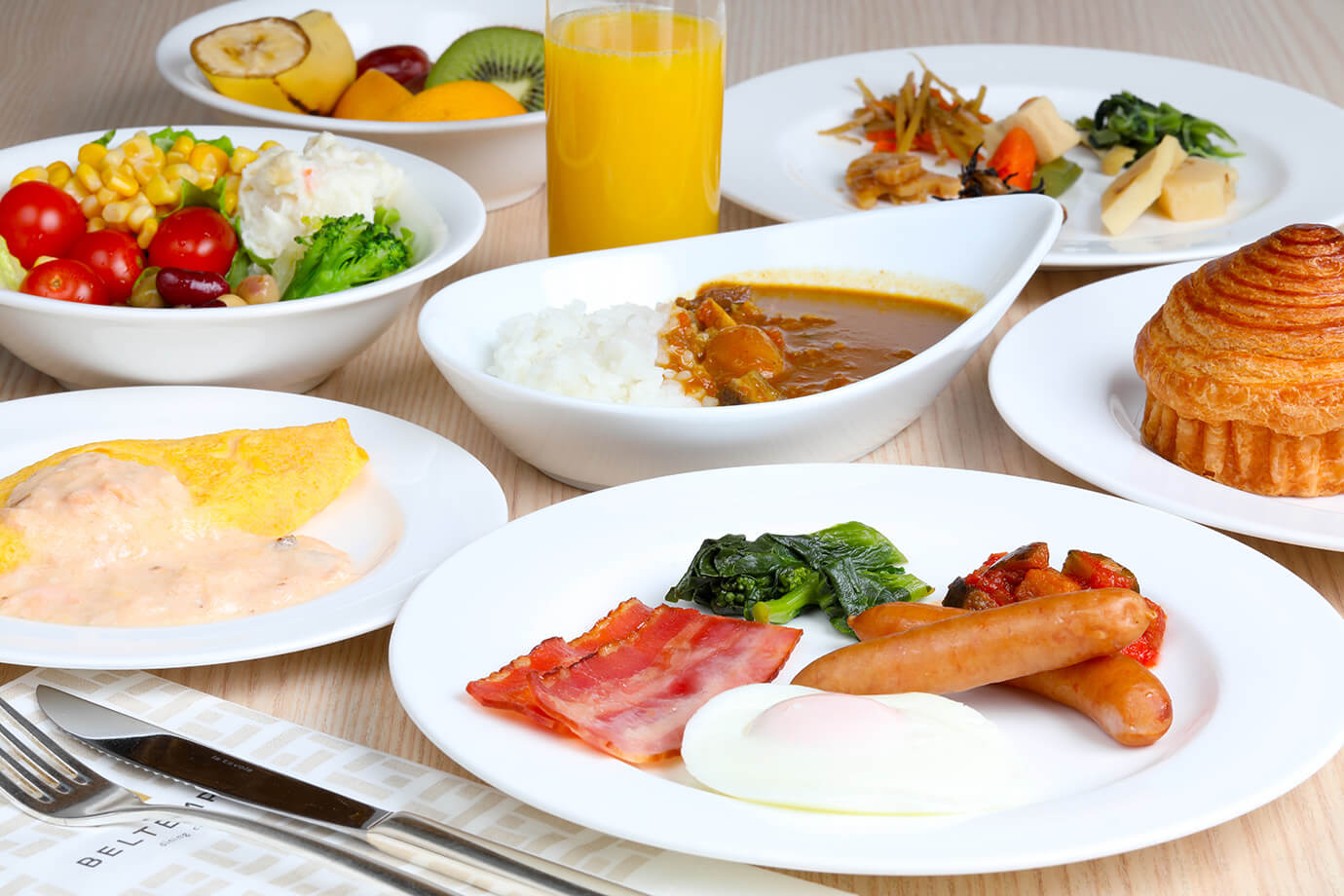
The venue for the breakfast buffet is Dining Cafe BELTEMPO. The high ceilings and open space allow for a relaxing dining experience. A wide variety of dishes, such as omelets, are made right in front of you, and offered alongside freshly baked danish pastries and breads, as well as a curry made with a secret roux.
There is also Danish bread, the most popular bread since the hotel opened!
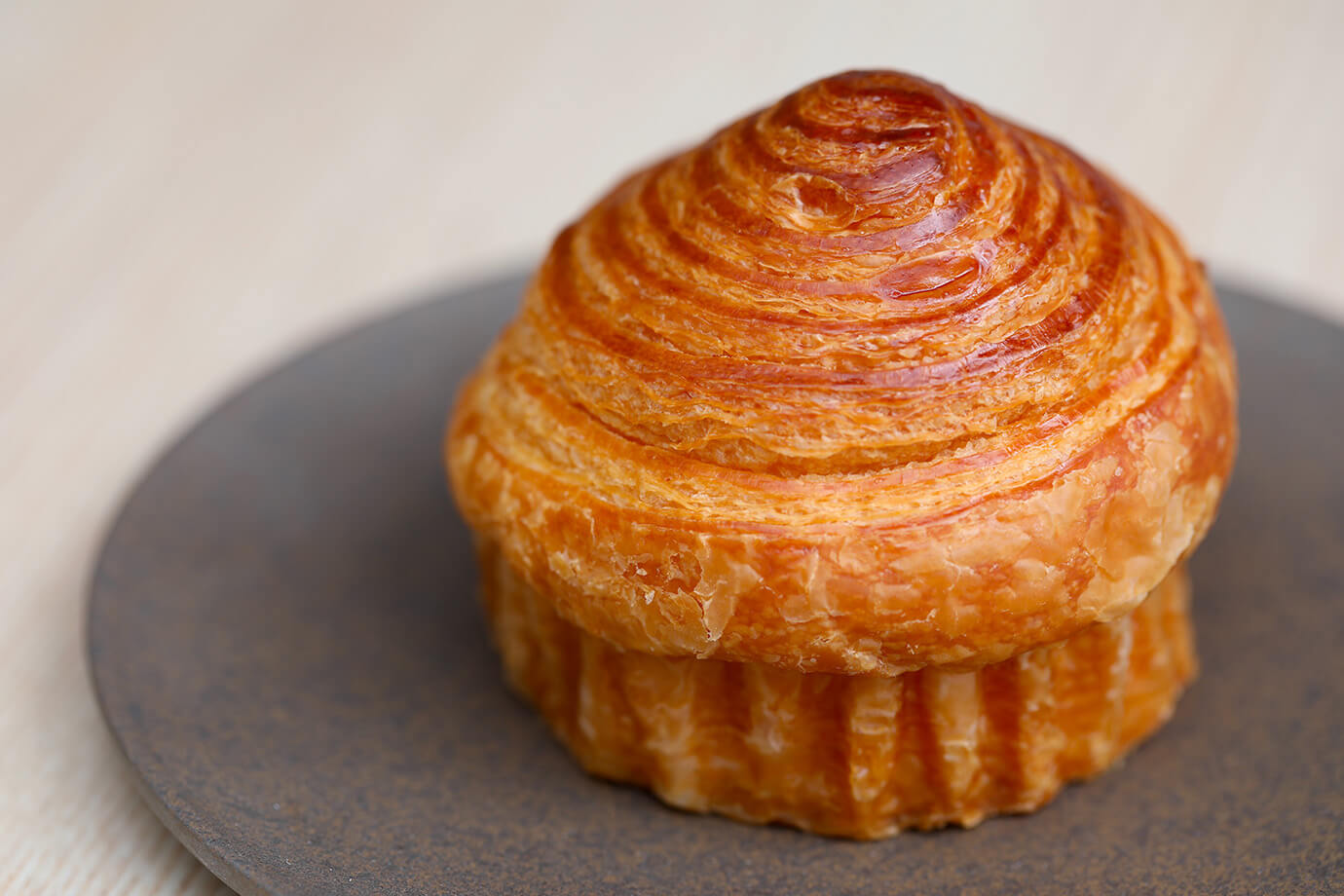
“Mountain" Danish bread has been popular since the hotel first opened in 1985. Soaked in a syrup with lemon and brandy, the mountain-shaped bread has an exquisite texture that is moist and fluffy. It is also available to buy at Patisserie Edmont.
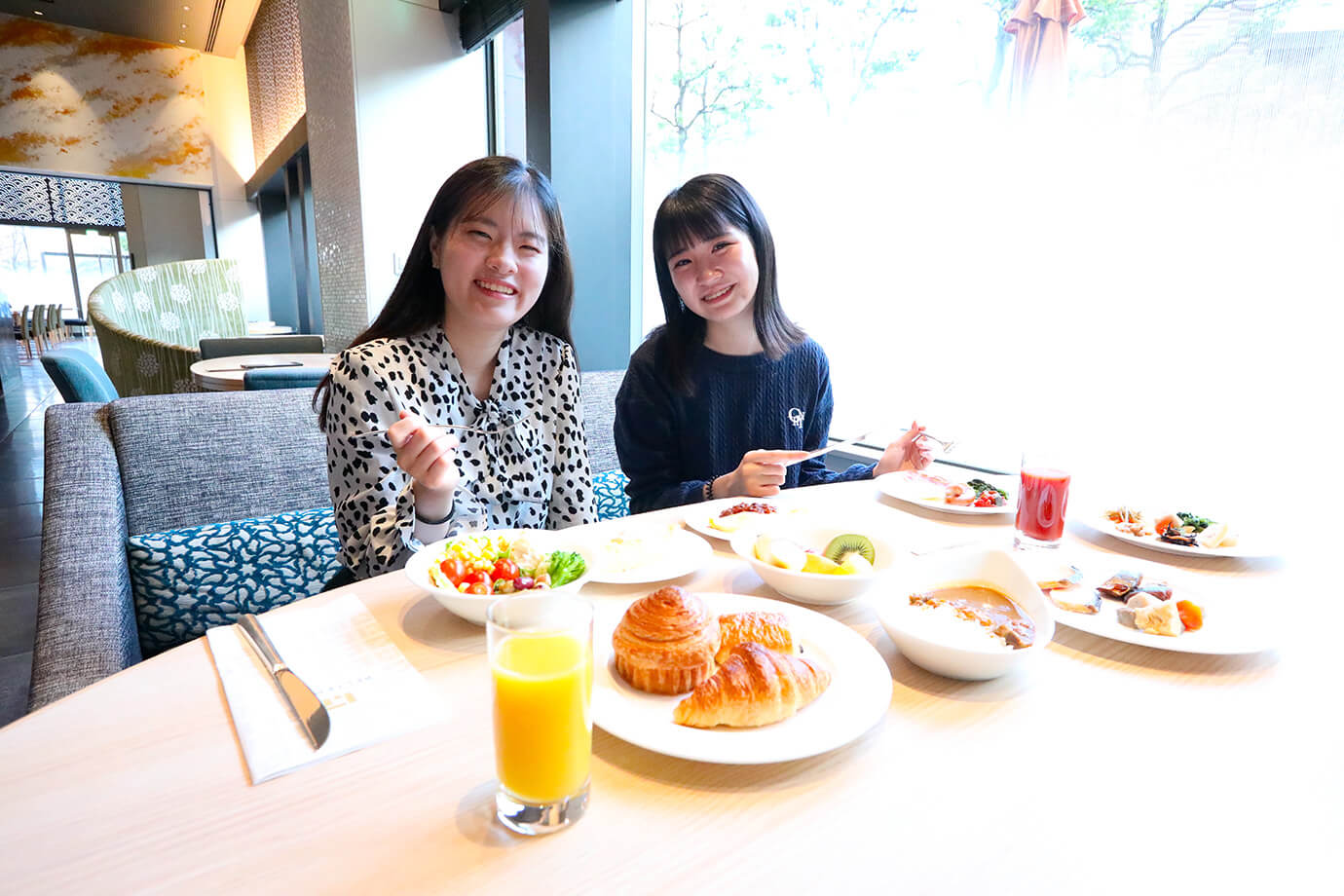
A wide selection of Japanese dishes is also available, including dashimaki tamago (rolled egg) and chikuzenni (braised chicken and vegetables). Please take a seat by the window, bathe in the morning sunlight, and enjoy dishes that have been carefully prepared one by one.
Hotel Metropolitan Edmont Tokyo
Address:3-10-8 Iidabashi, Chiyoda-ku, Tokyo
Telephone:03-3237-1111
Check-in:15:00
Check-out:11:00
Cost:Please refer to the official website.
Tokyo Daijingu Shrine
Why not pray for a good match and love at “Tokyo's Oise-sama"!
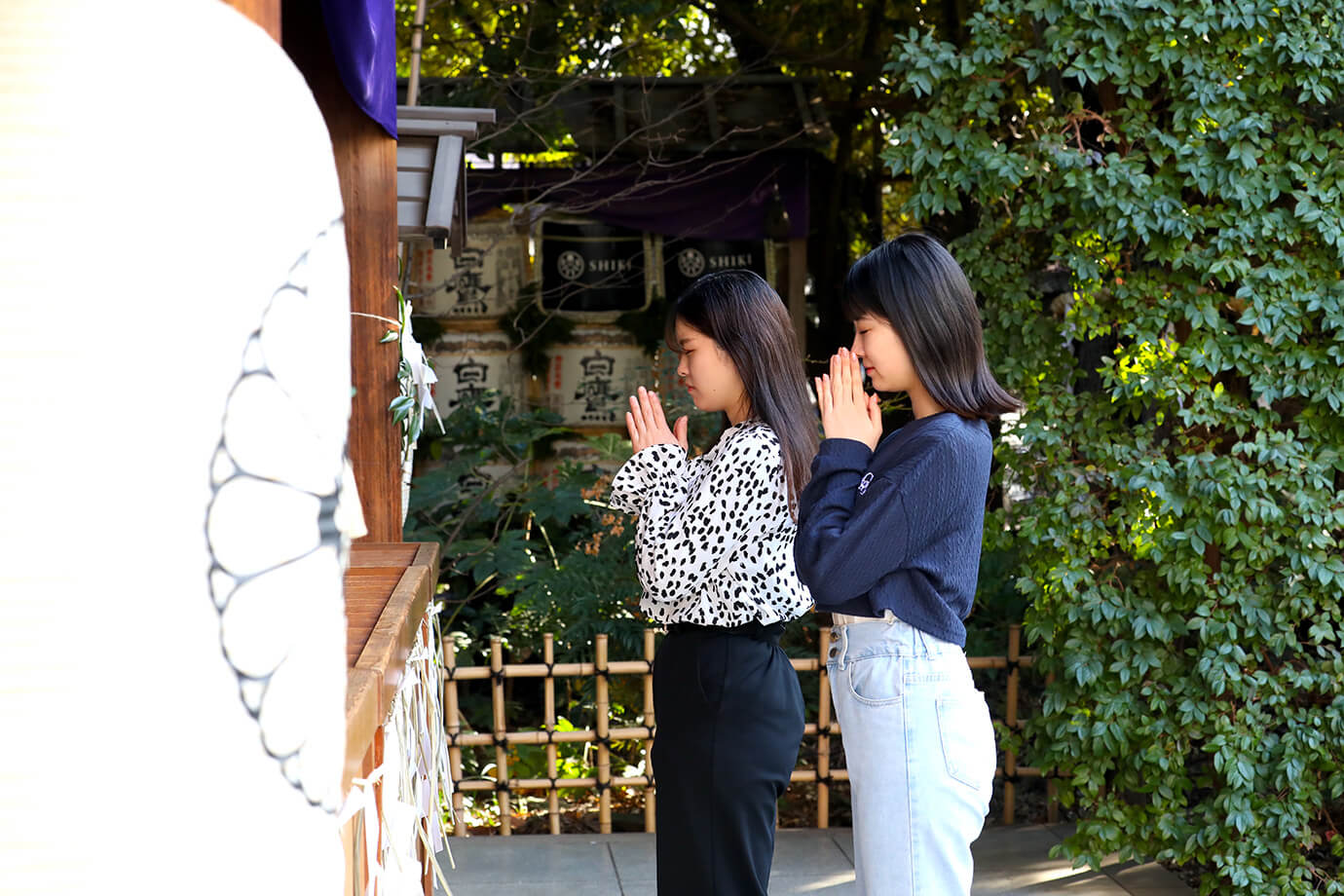
During the Edo period, people spent their entire lives hoping to visit the Ise Jingu Shrine. In 1880, a shrine was built in Hibiya, Tokyo as a satellite shrine of Ise Jingu. It was later moved to Iidabashi and renamed "Tokyo Daijingu" (Tokyo Grand Shrine). Since then, it has been affectionately known as "Tokyo's Oise-sama”.
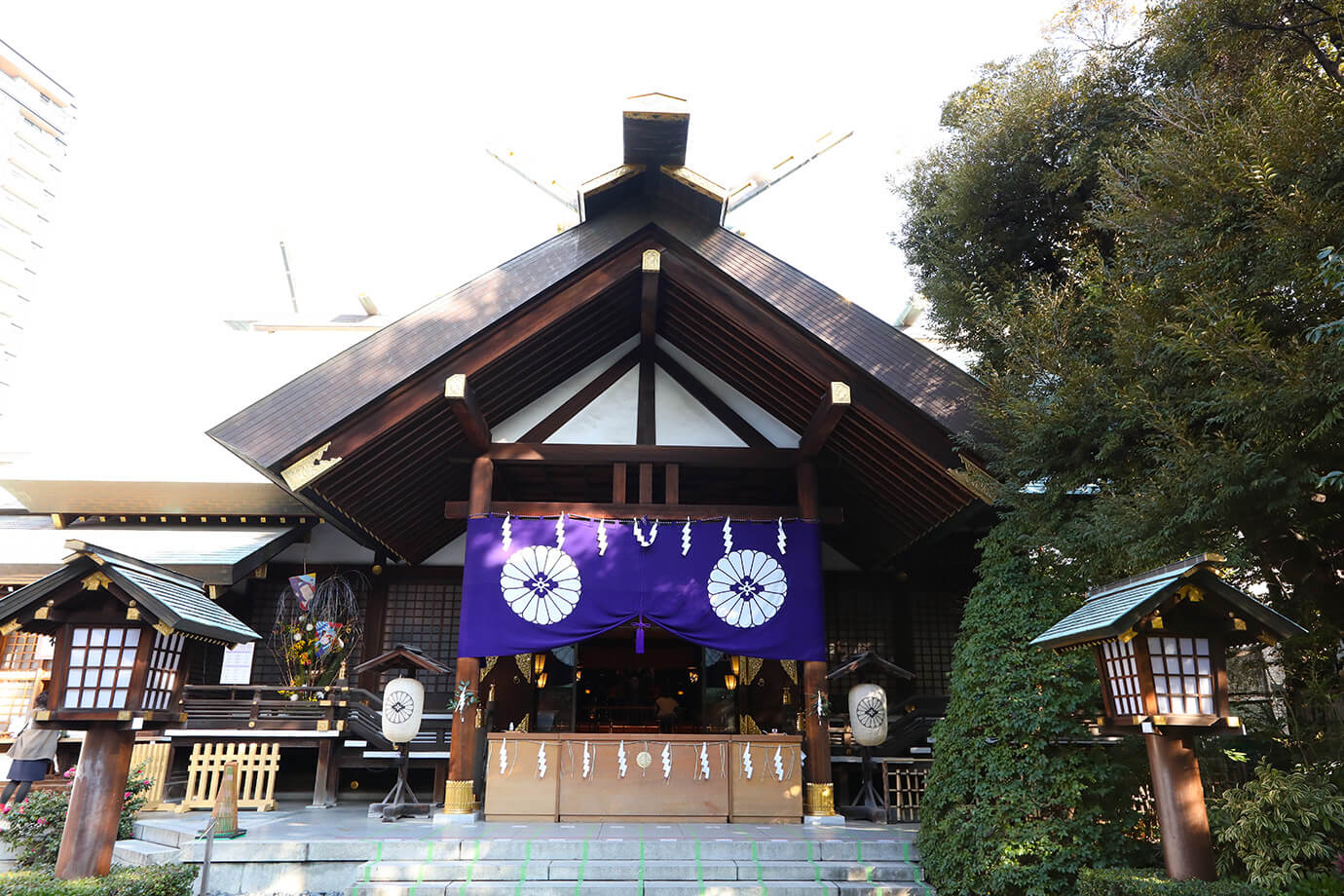
The deities enshrined at Tokyo Daijingu Shrine are Amaterasu Omikami and Toyouke Omikami. The "Three Gods of Creation," who are believed to determine good fortune and bestow divine favors in match-making, are enshrined here. For this reason, the shrine is always crowded with worshippers hoping for a good match.
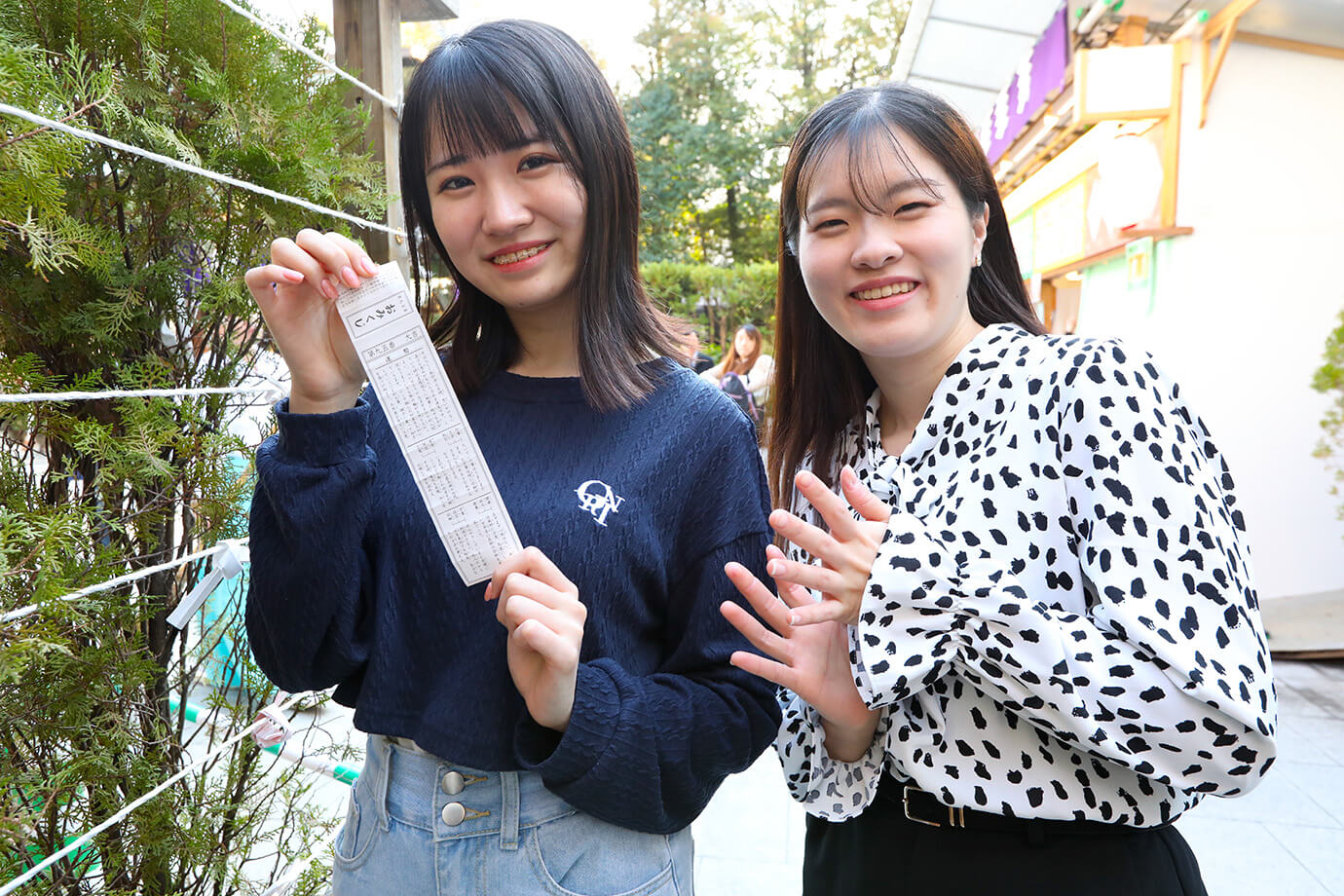
The "Koi-mikuji" (love fortune slip), priced at 200 yen, contains advice for the fulfillment of love. There is also a "Shiki-mikuji" fortune slip that predicts your fortune and lucky color, a "Blood type-mikuji" that gives you a personality diagnosis and compatibility, and a "Weather mikuji" in the shape of an umbrella. There is a wide variety of fortune slips, and they have an excellent reputation for accuracy.
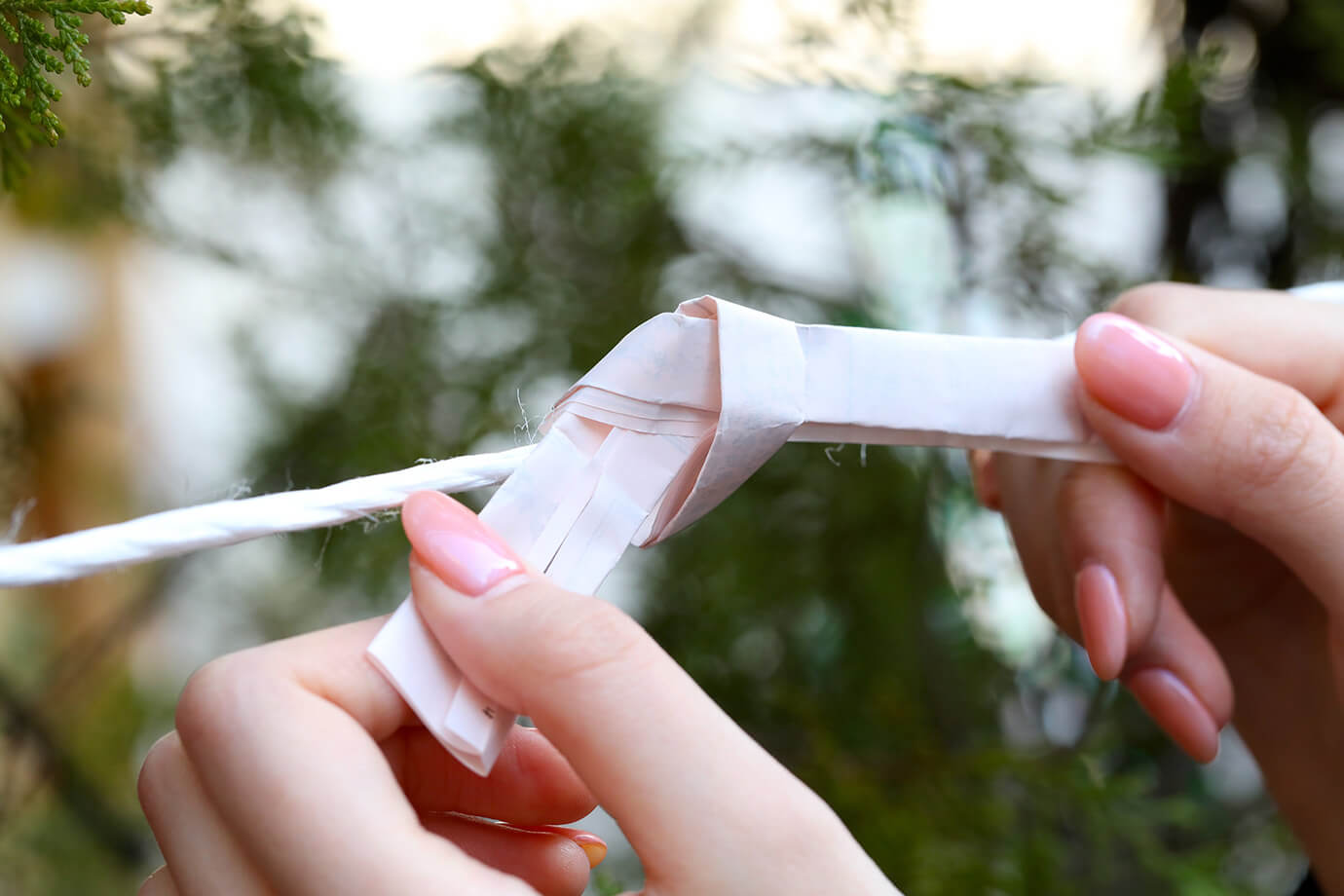
After reading the inspiring words of the shrine deities, you can tie your fortune slip to an omikuji-kake hanger or keep it as a good-luck charm.
Depending on the season, you can see beautiful hanachouzu flower arrangements on the water at the chozuya.
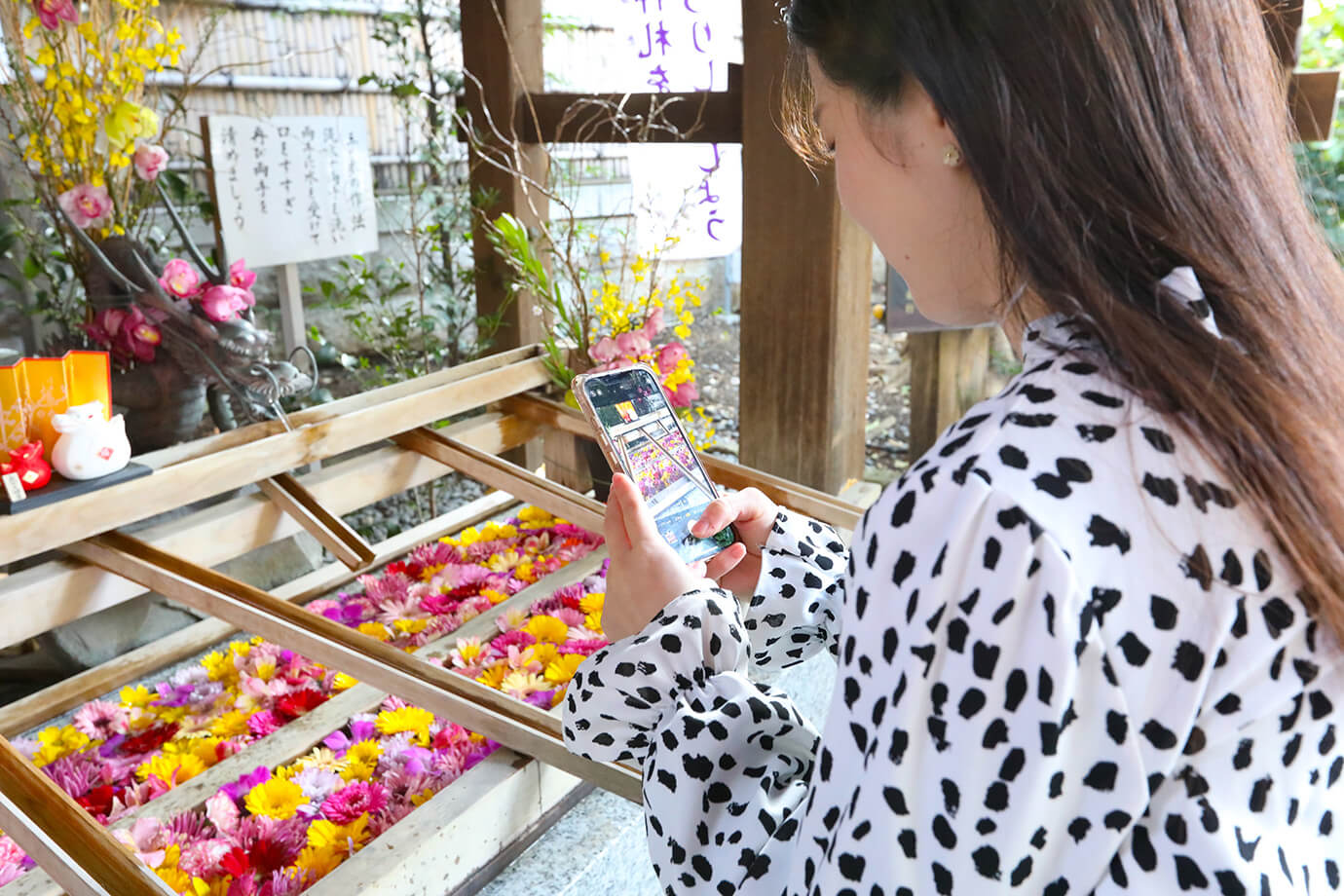
So Pretty! Gotta Snap This on My Phone.
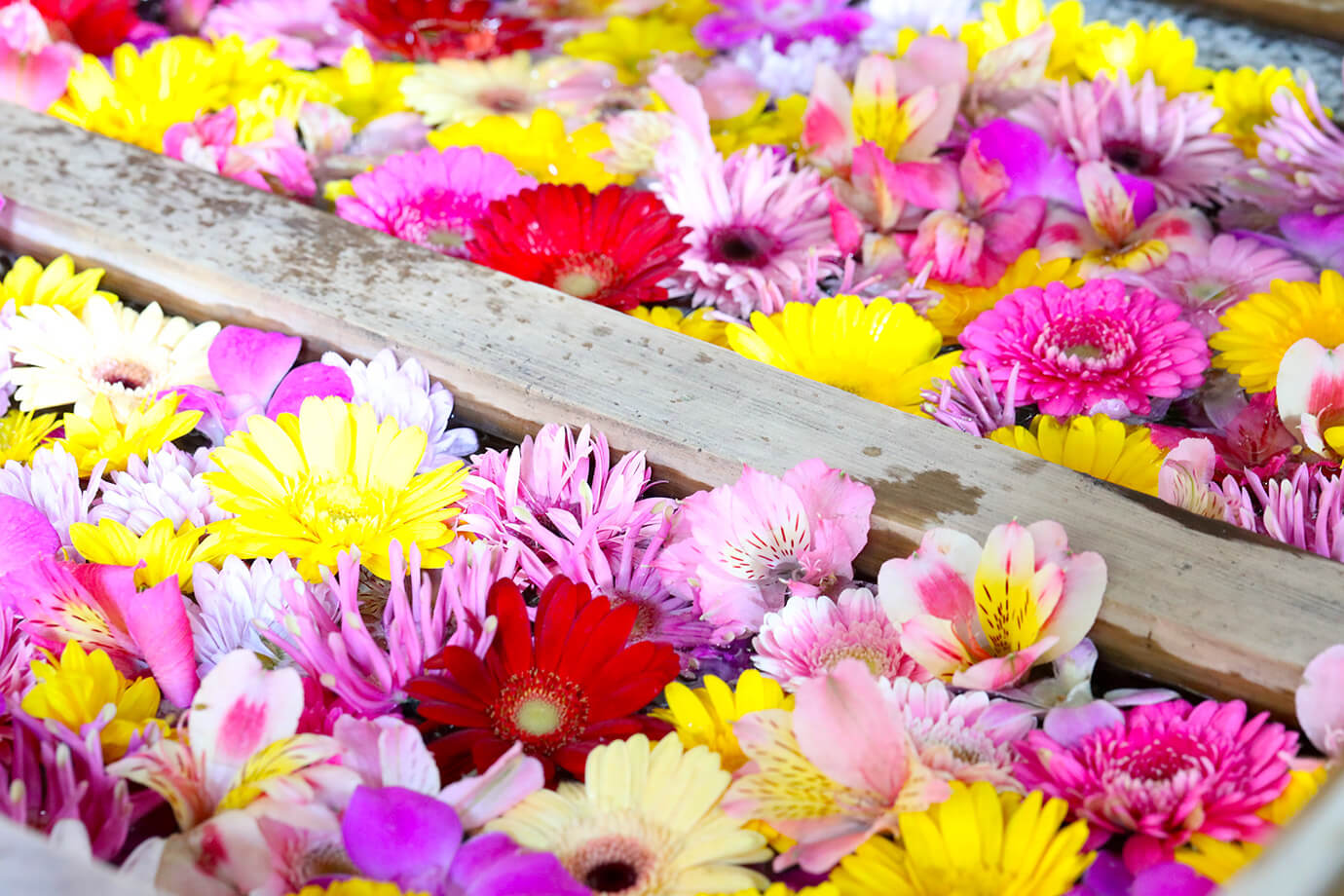
The flower art contains the hope that good luck will come to many people. Flower artists decorate their flowers according to themes such as Tanabata (the Star Festival) in July and Chouyou-no-Sekku (the Chrysanthemum Festival) in September.
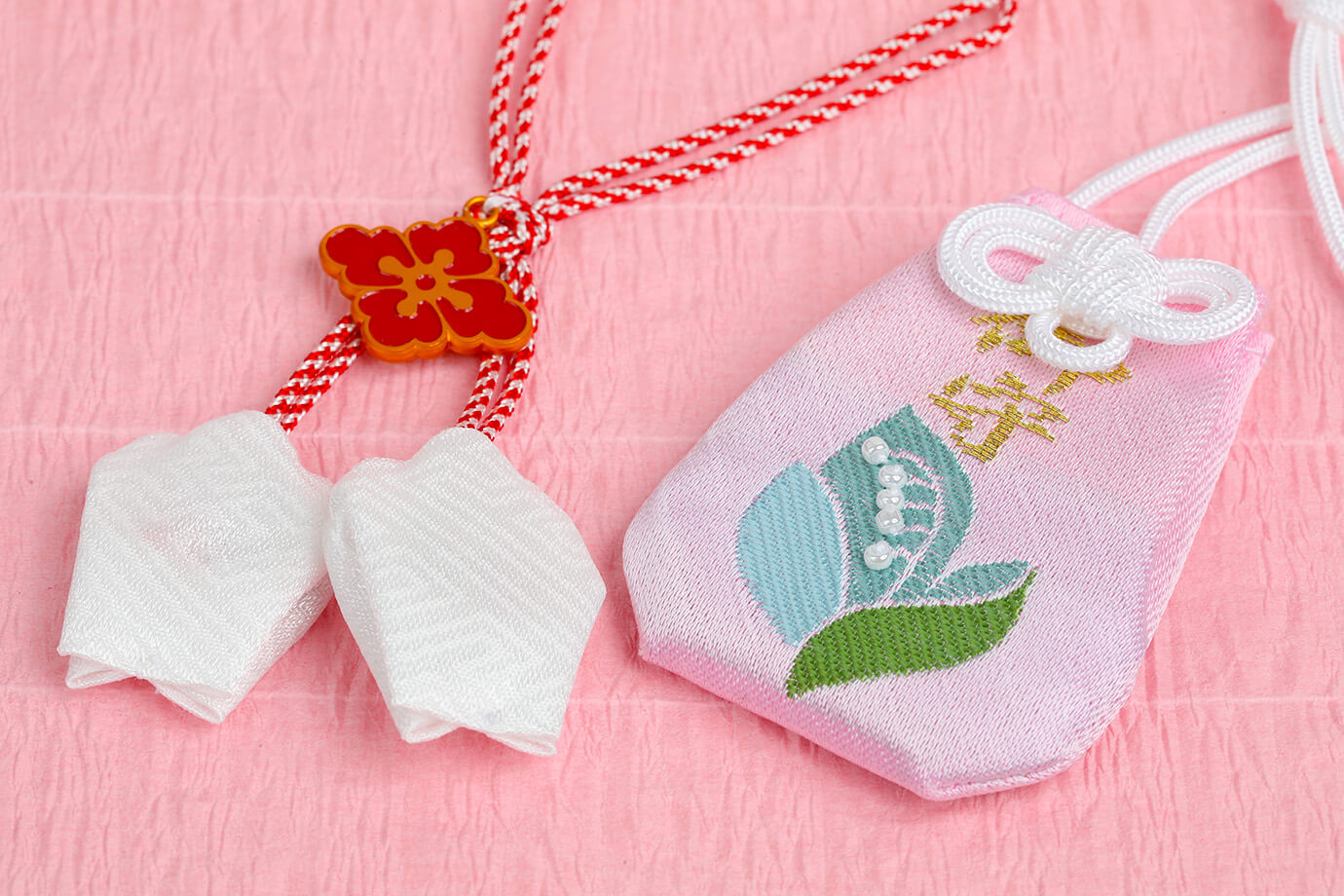
There was a wonderful good-luck charm at the shrine office! The popular matchmaking Suzuran charm (800 yen) (left) takes the form of a pure white Lily of the Valley flower, which is said to bring happiness. The Suzuran bead charm (700 yen) (right) is an adorable charm made of small beads representing the flowers of the Suzuran (Lily of the Valley).
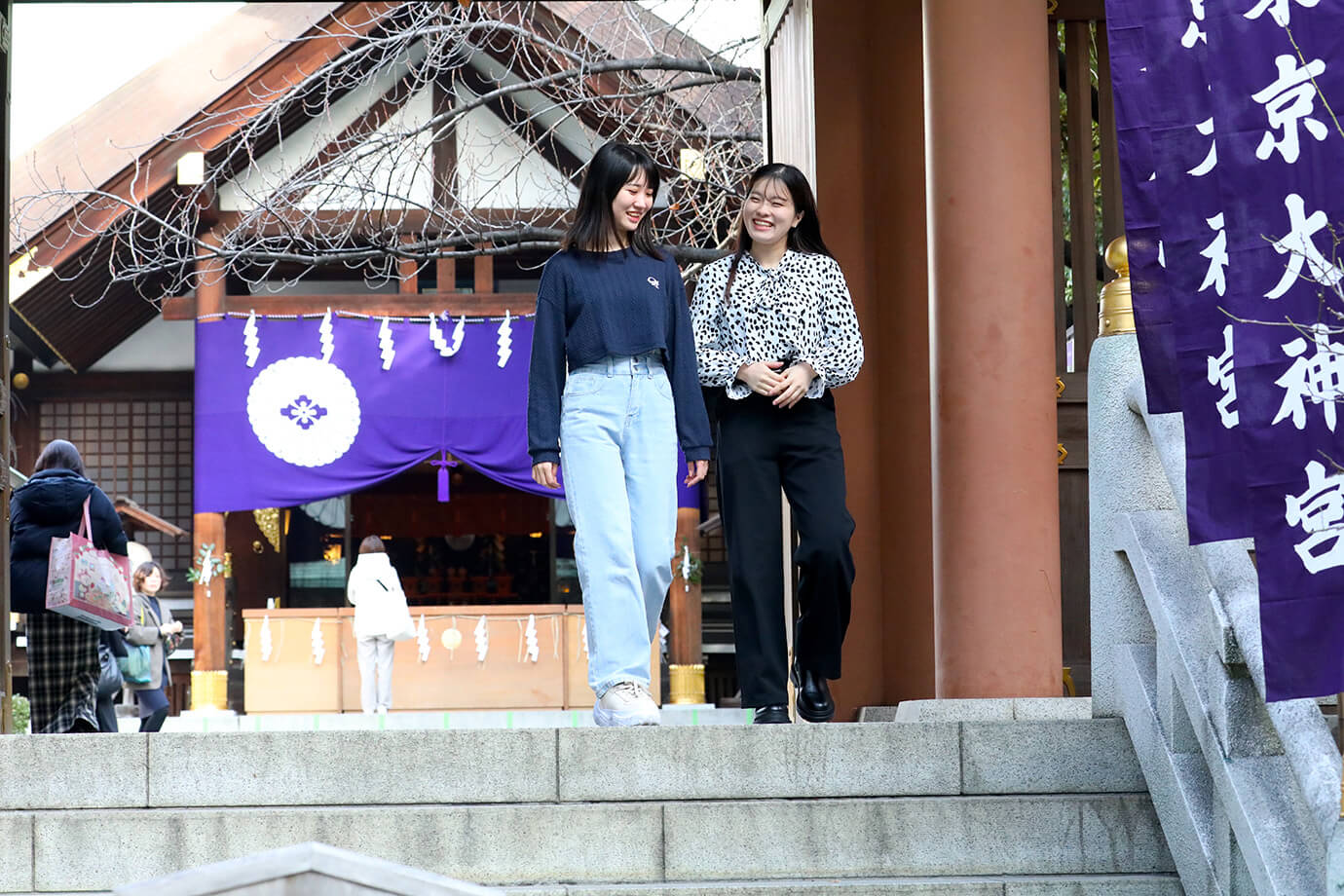
Visitors feel grateful to have a shrine that offers blessings for love, work, money, and many other outcomes. They often feel lighter after their shrine visit. It is about a 5-minute walk from Iidabashi Station on the JR and Tokyo Metro lines. Why not pay a shrine visit to a spiritual power spot in Iidabashi!
Tokyo Daijingu (Tokyo Grand Shrine)
Address:2-4-1 Fujimi, Chiyoda-ku, Tokyo
Telephone:03-3262-3566
Opening hours:6:00-21:00 (charms sold from 8:00-19:00, red seals available from 9:00-17:00)
Closed:Open every day
Tokyo Dome City Yellow Building
Having fun in the "Yellow Building", which is packed full of activities!
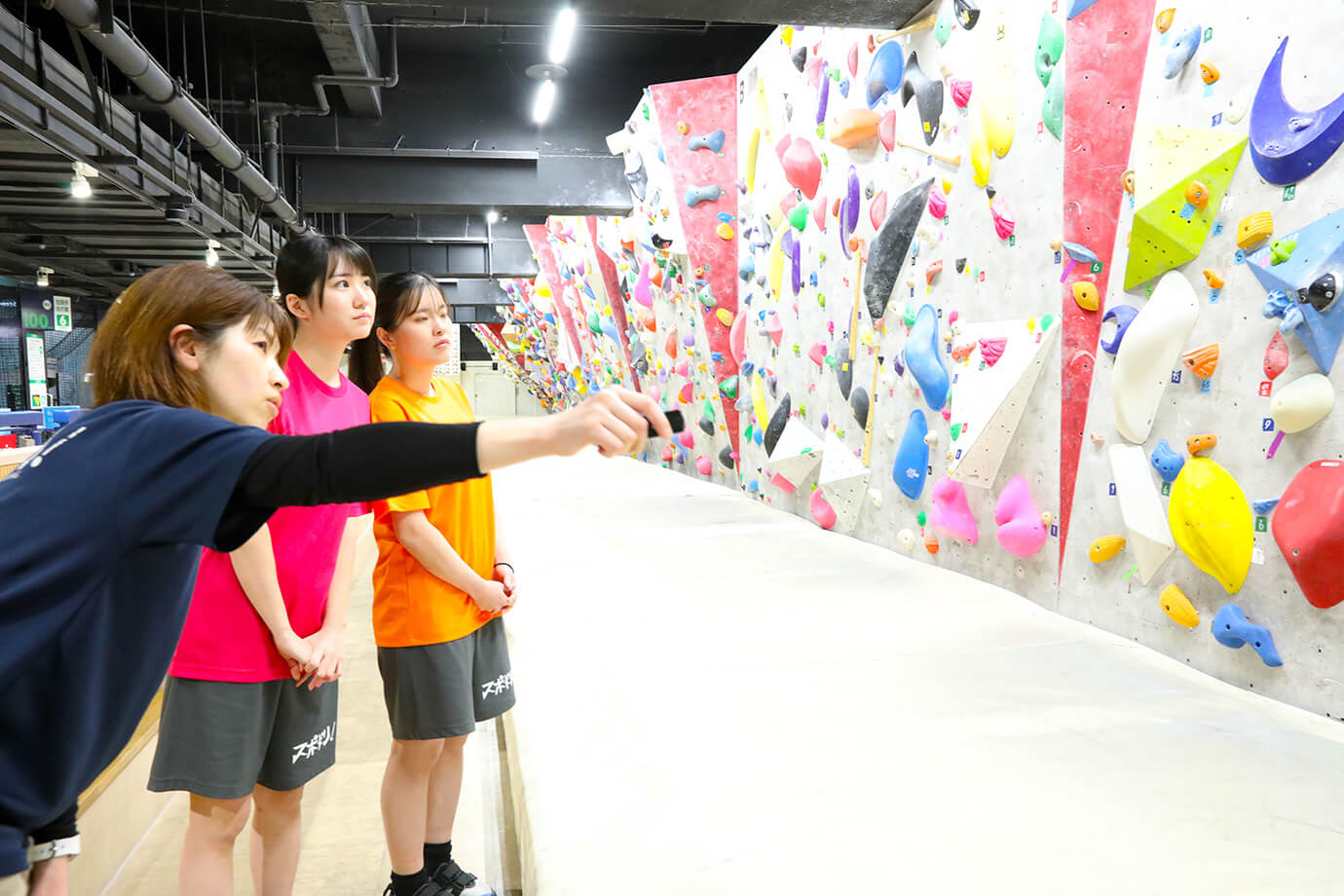
The focus of the tour’s second day was the attractions of Tokyo Dome City. The yellow building located in the southwest of Tokyo Dome City is a leisure complex that opened in 1973. The six-floor building is full of leisure facilities, including a bowling alley, roller skating rink, and ping-pong tables.
“Spo-Dori!” can be found on the third floor.This is an indoor sports facility where you can enjoy bouldering, batting & pitching, and golf. This time, we tried bouldering! It can be enjoyed by beginners and experts alike.
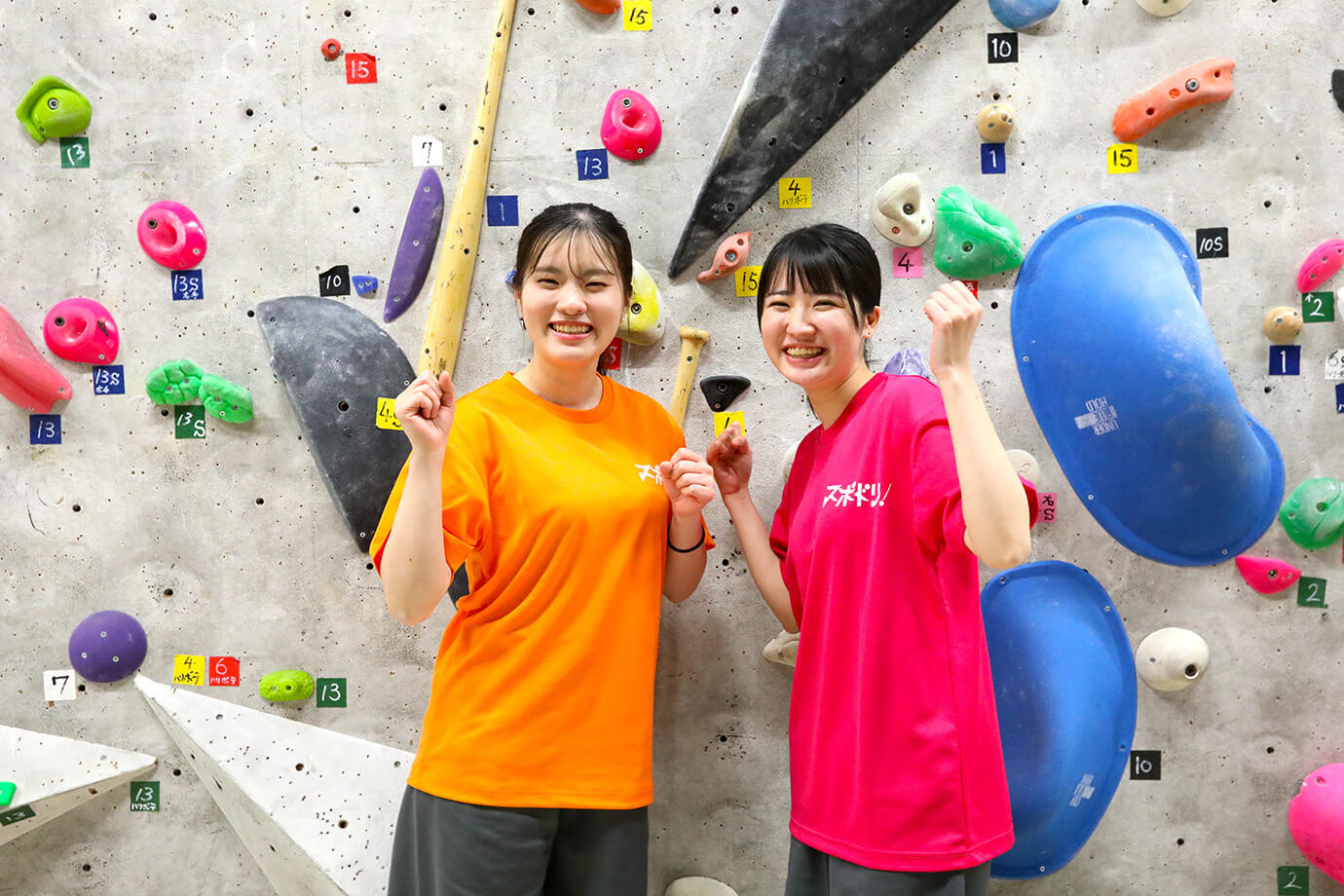
Rental T-shirts and shoes are available, so you do not need to bring any equipment with you. As befits the unique character of Tokyo Dome City, there are some unique holds, including bats! If you feel unsure about anything, the staff will be happy to help you.
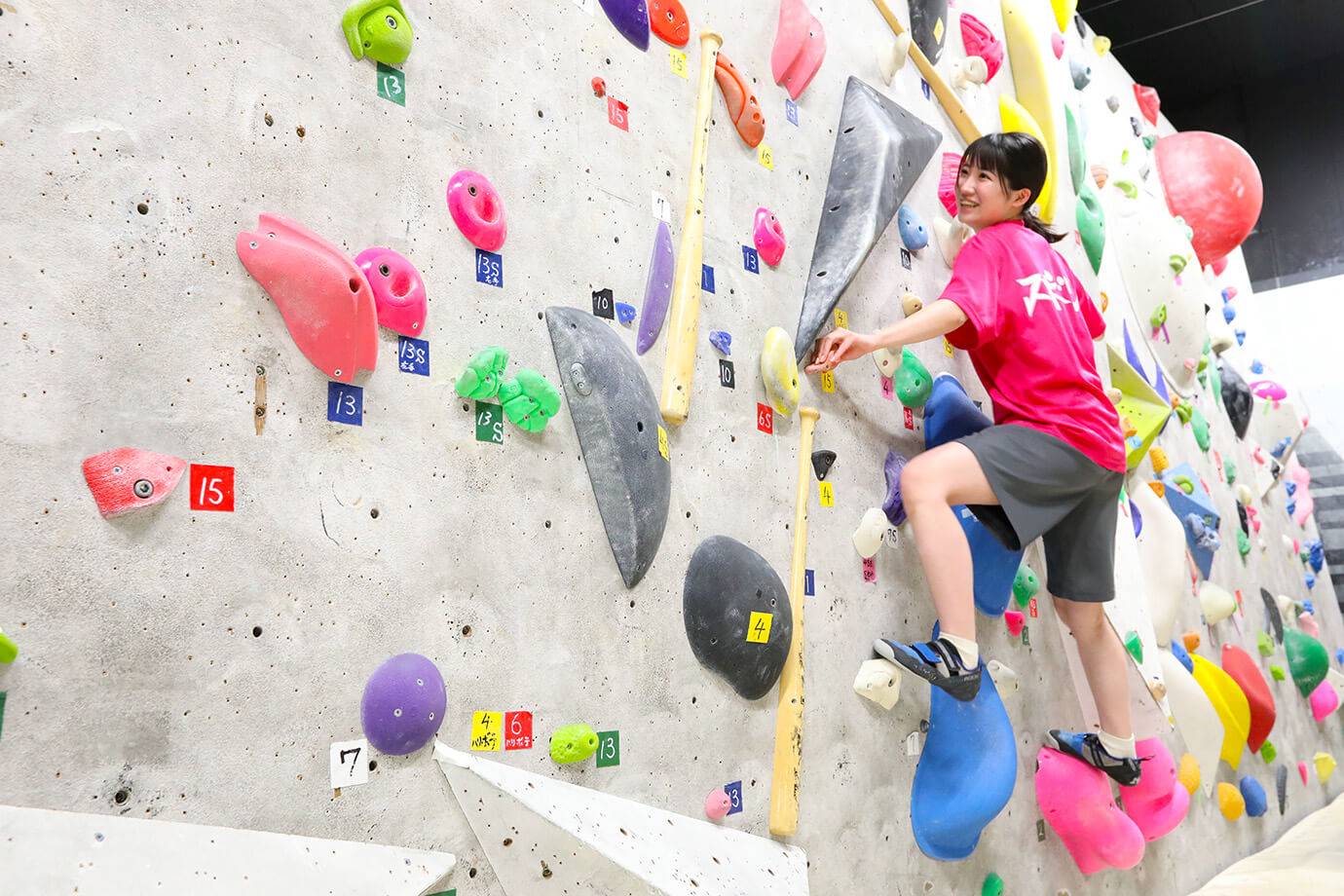
The facility boasts the largest wall in Tokyo, at 40 meters high and 40 meters wide. It is available for unlimited use during opening hours (fee - 1,700 yen per day; first time registration fee - 800 yen; first time rental shoes - free; rental T-shirt - 350 yen; rental pants - 350 yen).
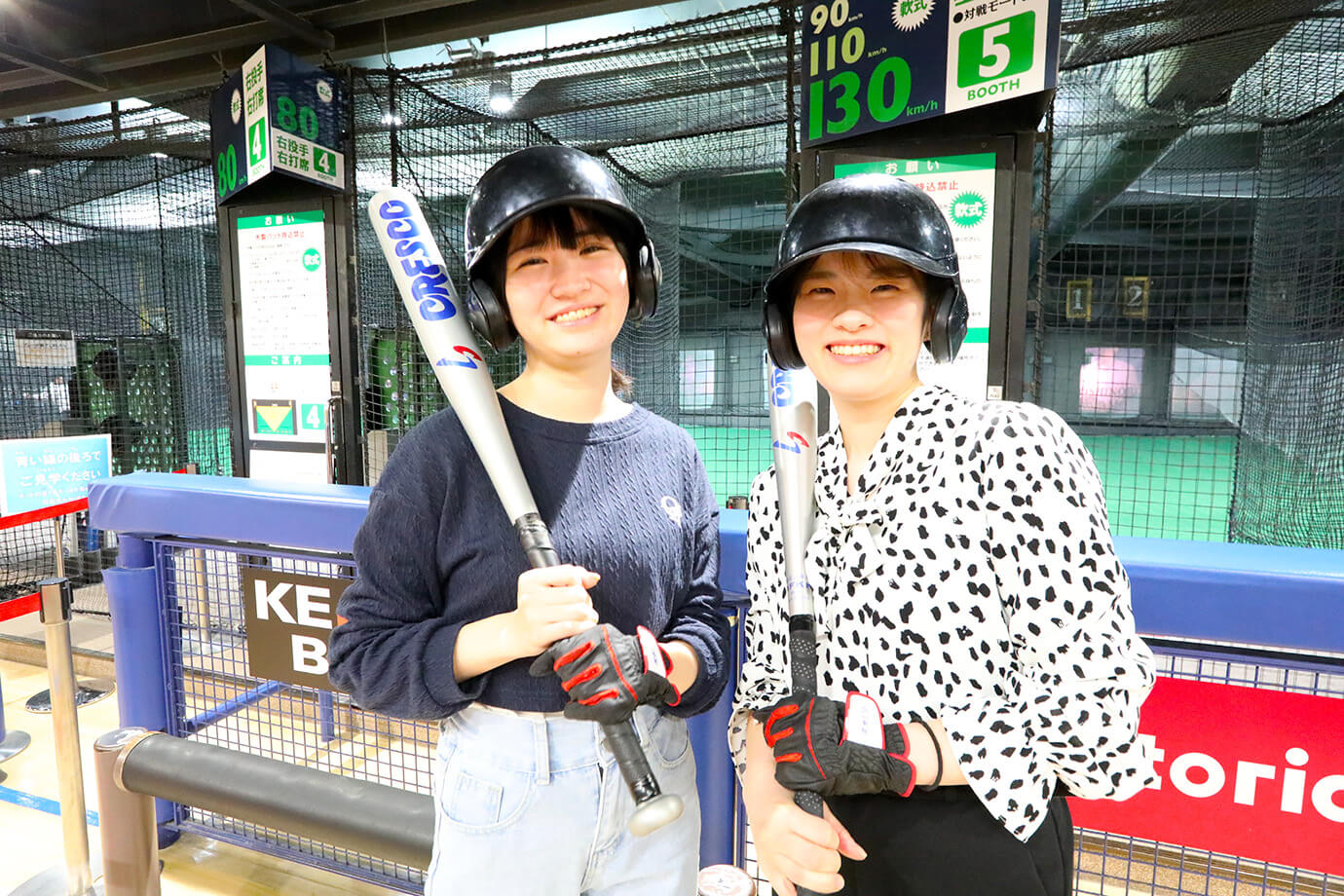
The next facility is the "batting corner”. The virtual image of a professional baseball player throwing a ball gives you a realistic batting experience. Various options can be selected (500 yen per play), such as hardball, softball, right-handed or left-handed hitting, ball speed, etc.
Indoor Sports Facility Spo-Dori!
Telephone:03-3812-4415
Fees:Varies by facility
Opening hours:10:00-22:00
Closed:Open every day
One of the largest roller skating rinks in Tokyo, with resident instructors
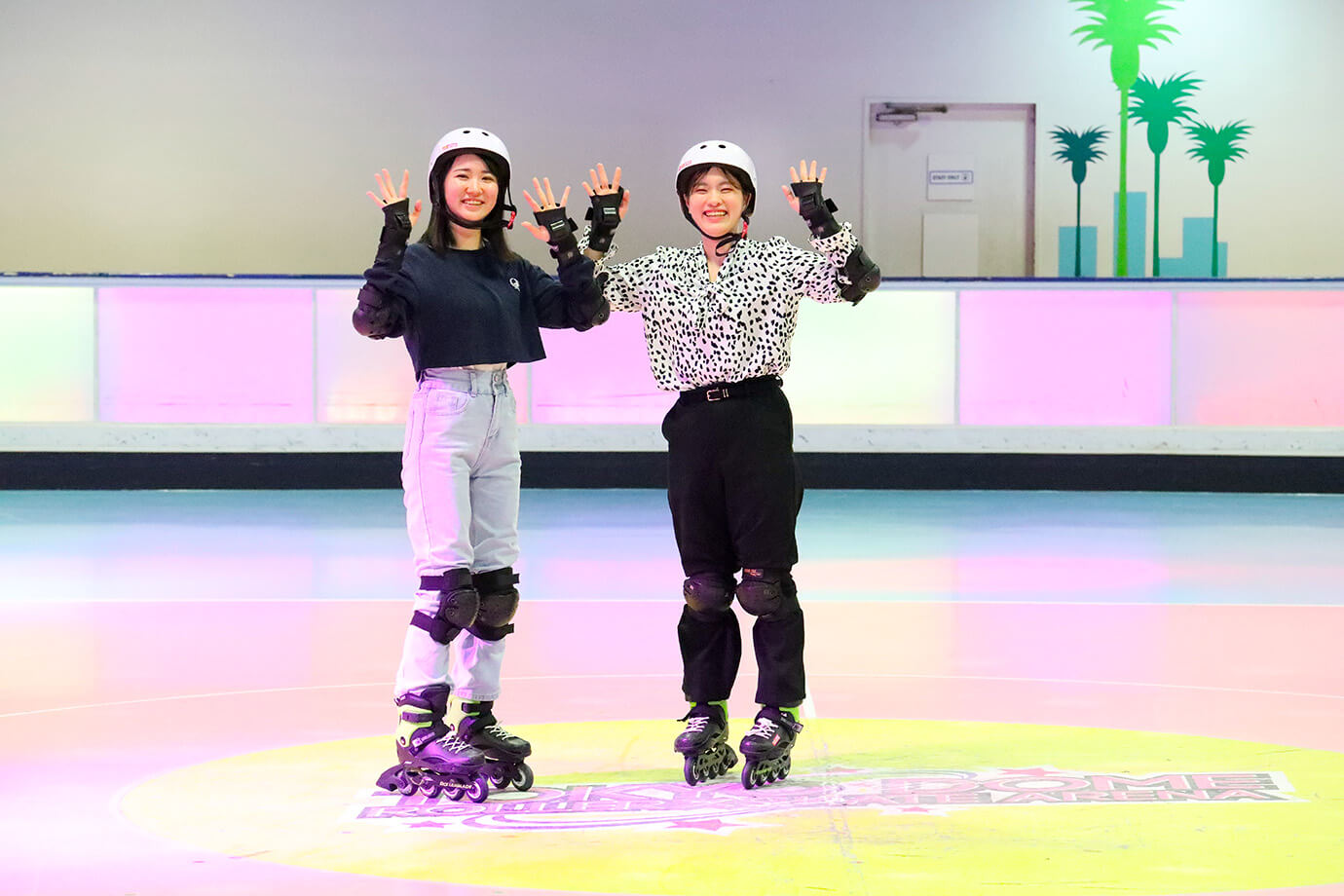
The Roller Skate Arena, located on the 4th floor, is one of the largest indoor roller skating rinks in Tokyo. The main arena is 100 meters long, and you can enjoy skating in a stirring atmosphere with mirror balls spinning (fee - 700 yen to rent either roller skates or inline skates).
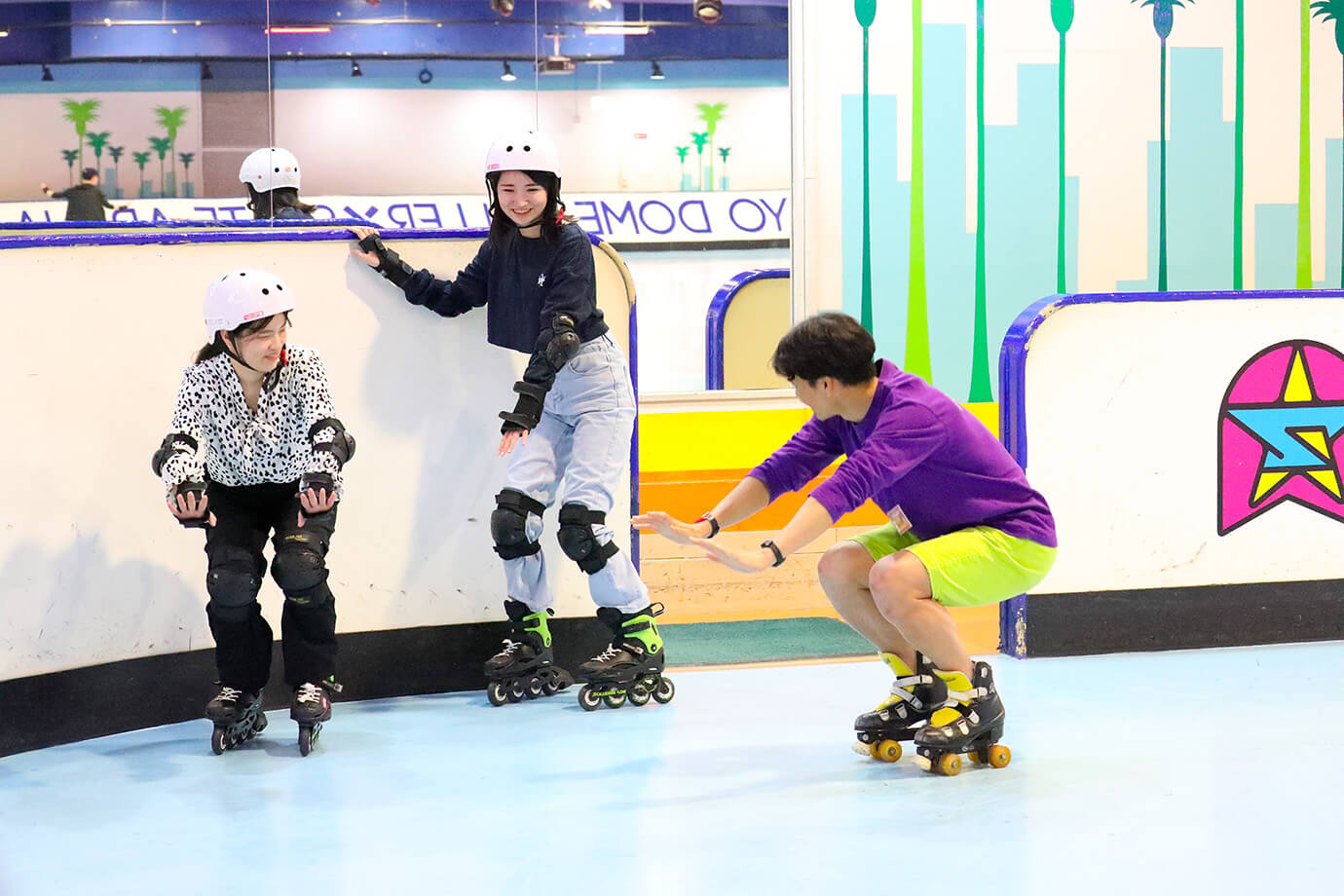
The hotel staff, who were beginners, were taught the basics of how to skate by an instructor. They managed to skate while maintaining their center of gravity.
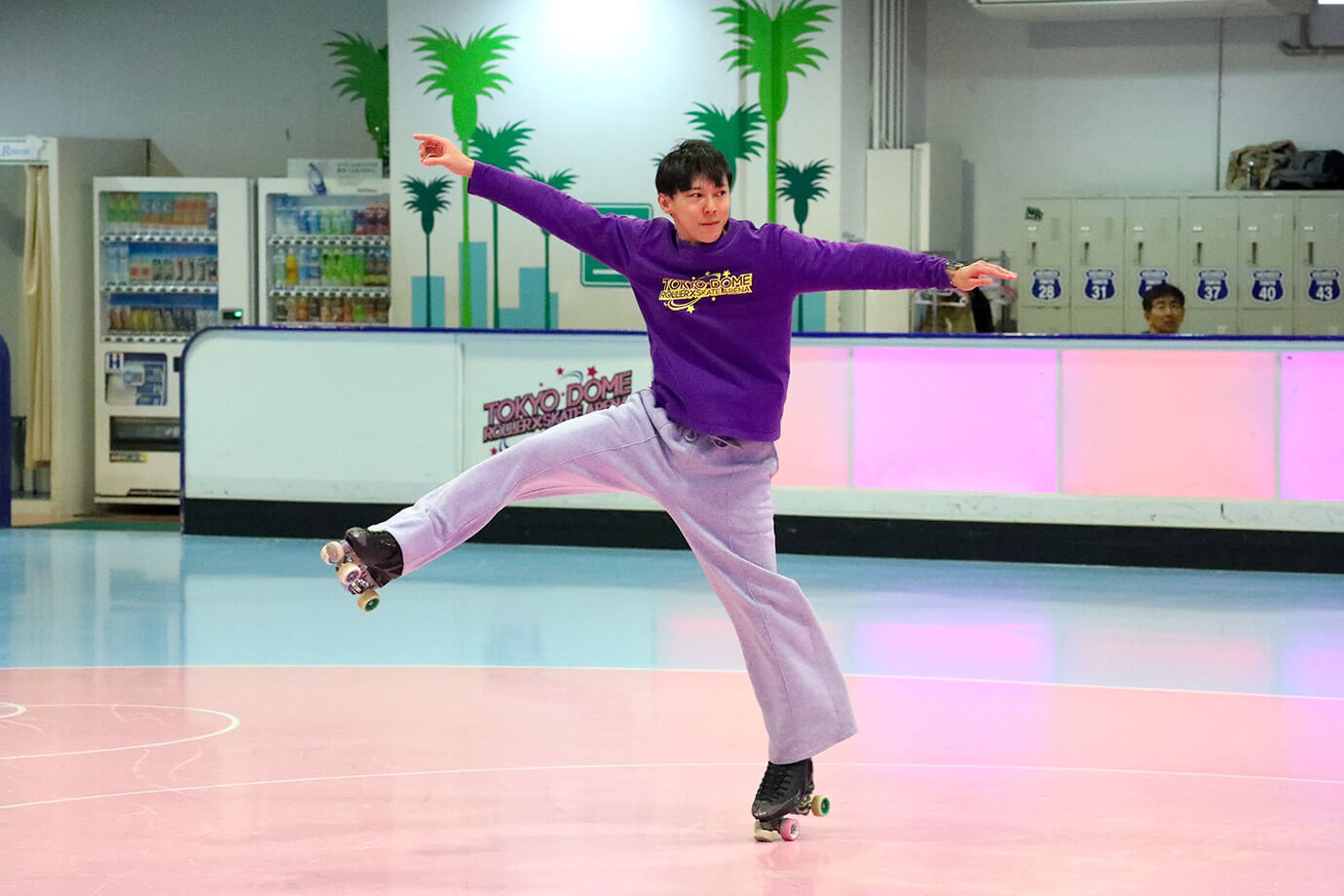
All instructors are experts and representing Japan at roller-skating. You might be lucky enough to get the opportunity to watch professional roller skaters' spectacular gliding up close!
Tokyo Dome Roller Skate Arena
Telephone:03-3817-6196
Fee:1,600 yen for 2 hours
Opening hours:13:00-20:00 (opens at 11:00 on Mondays; closes at 21:00 on Fridays; 10:00-21:00 on Saturdays; and 10:00-20:00 on Sundays and national holidays)
Closed:Open every day
A playground for grown-ups where you can enjoy drinks and bowling
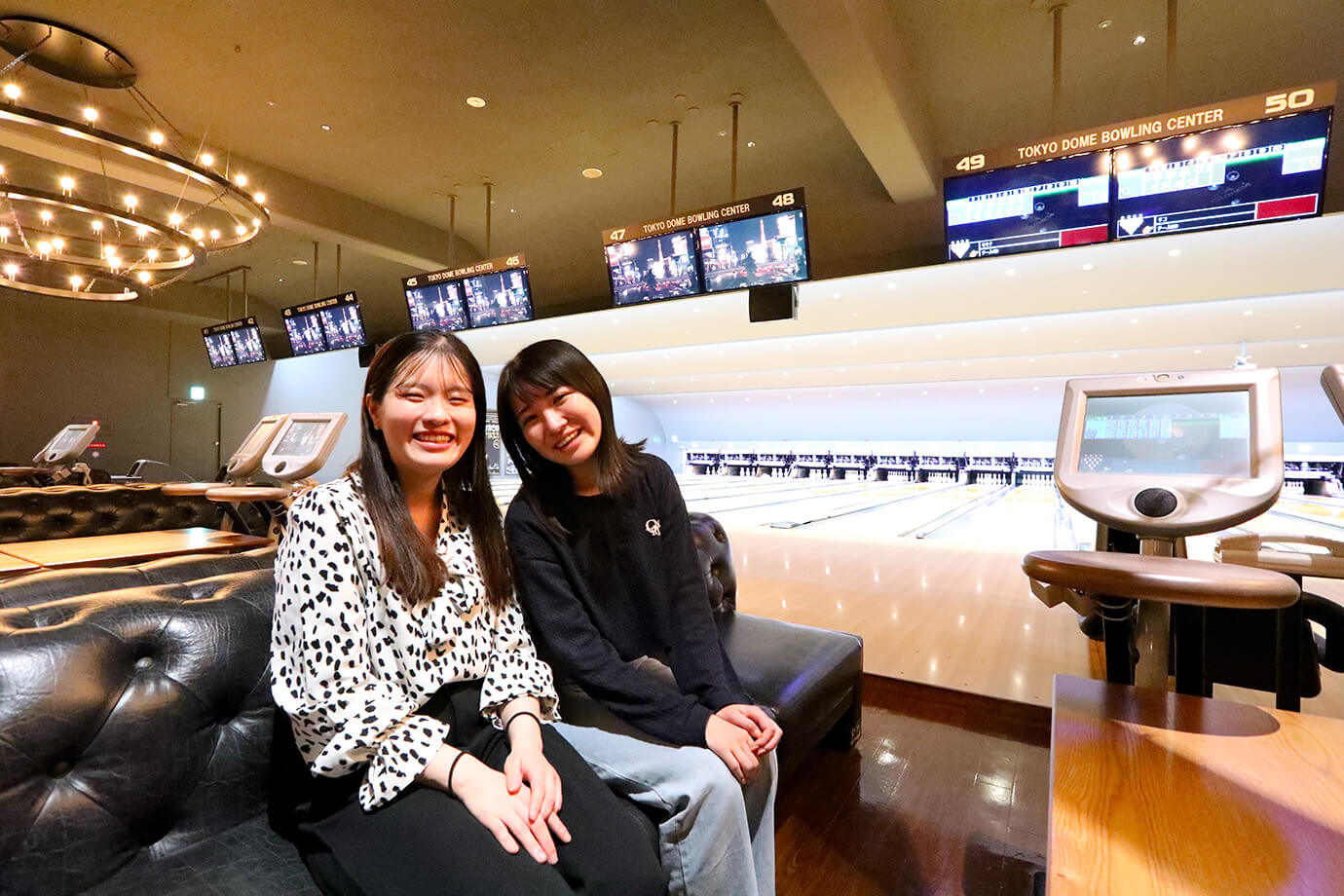
Unlike the casual atmosphere of the 40-lane bowling alley on the 5th floor, the CuBAR LOUNGE on the 4th floor is a bowling alley for adults to enjoy while drinking. The early American-style leather sofas and dark brown tables make for a relaxing experience. All rental shoes and balls are available exclusively for use at the CuBAR Lounge. (from 900 yen per game)
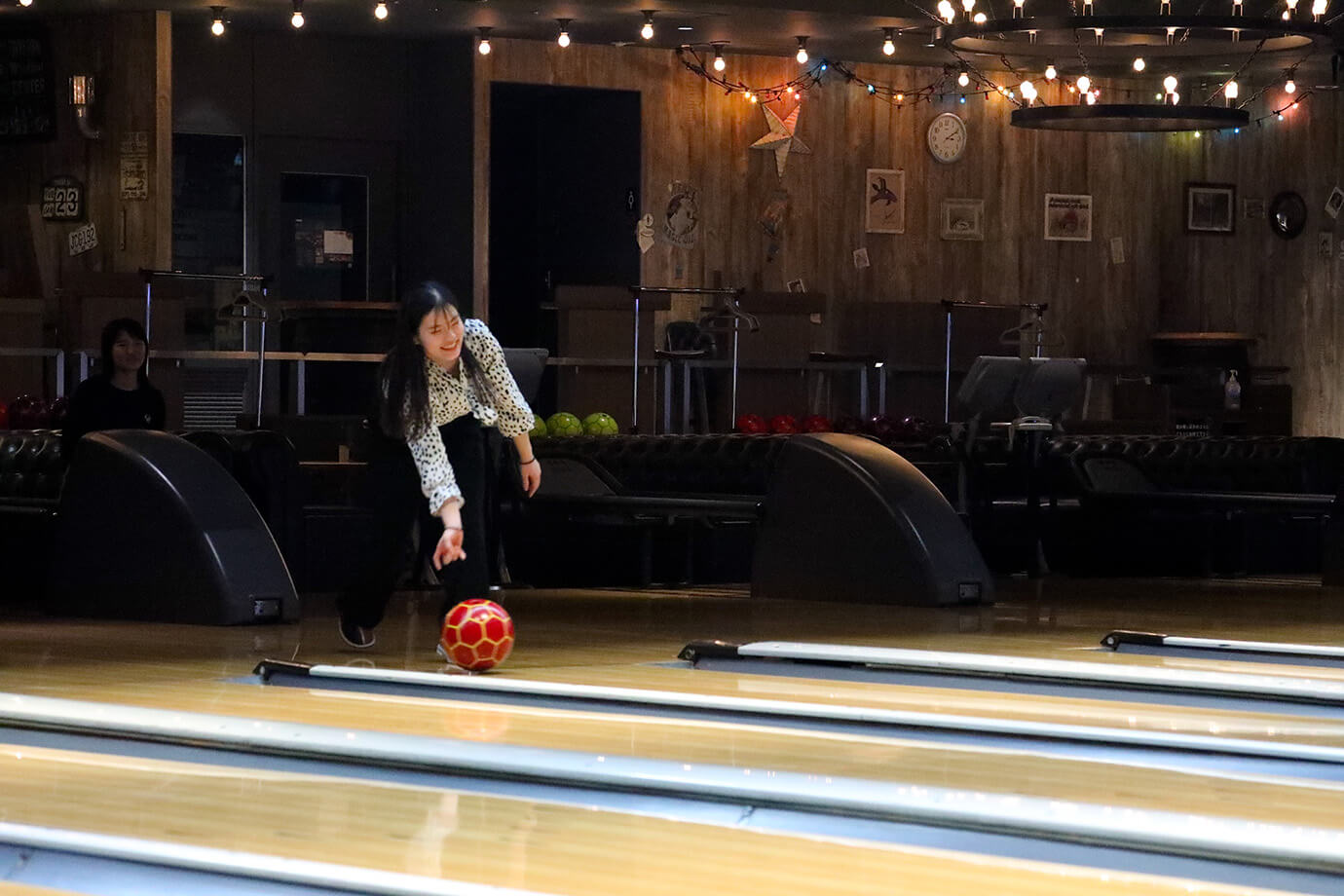
There is a dedicated bar counter where you can order snacks and drinks using "CuBAR dollars" purchased at the front desk. More than 60 kinds of drinks are available, mainly alcohol. It is truly playground for adults that you will want to show off to people!
CuBAR LOUNGE
Telephone:03-3817-6115
Fee:from 900 yen per game
Opening hours:18:00-22:30 (13:00-21:00 on Saturdays, Sundays, and national holidays)
Closed:Open every day
Tokyo Dome City Yellow Building
Address:1-3-61 Koraku, Bunkyo-ku, Tokyo
Telephone:03-5800-9999 (Tokyo Dome City Wakuwaku line)
Sauna Lounge Rentola
Rentola is a fully private sauna located on the top floor of LaQua.
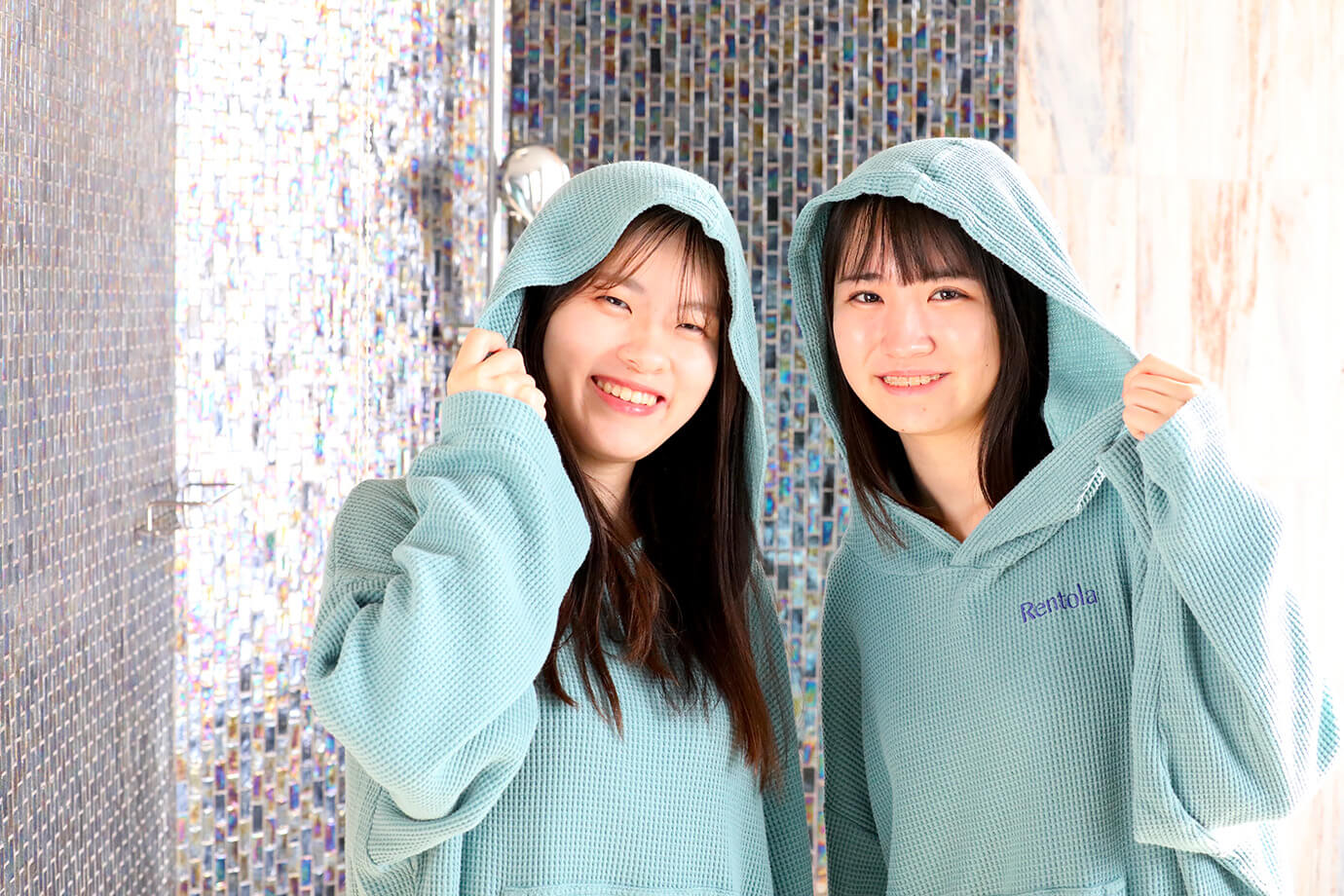
Spa LaQua is a bathing facility that uses natural hot spring water from 1,700 meters below Tokyo Dome City. In April 2023, a fully private sauna - "Spa LaQua" - was launched on the top floor of LaQua. “Rentola" means "a place to relax" in Finnish. Relieve your daily fatigue at a sophisticated venue.
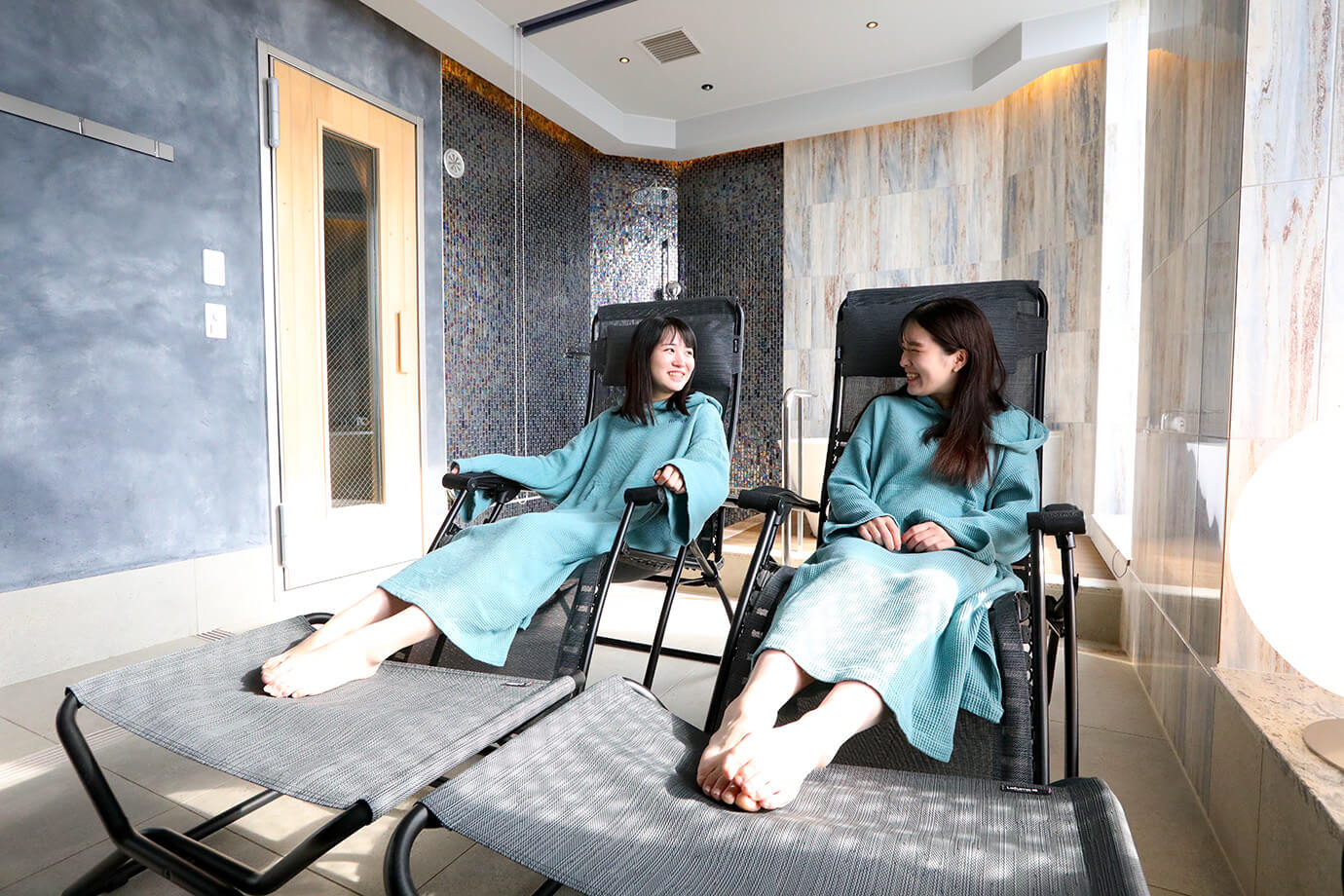
Premium rooms can accommodate two to four people. Equipped with a sauna room and water bath, the "Rejuvenation Space" offers an infinity chair, and a chair with an ottoman for relaxing. There are also "Standard Rooms" for one to two guests.
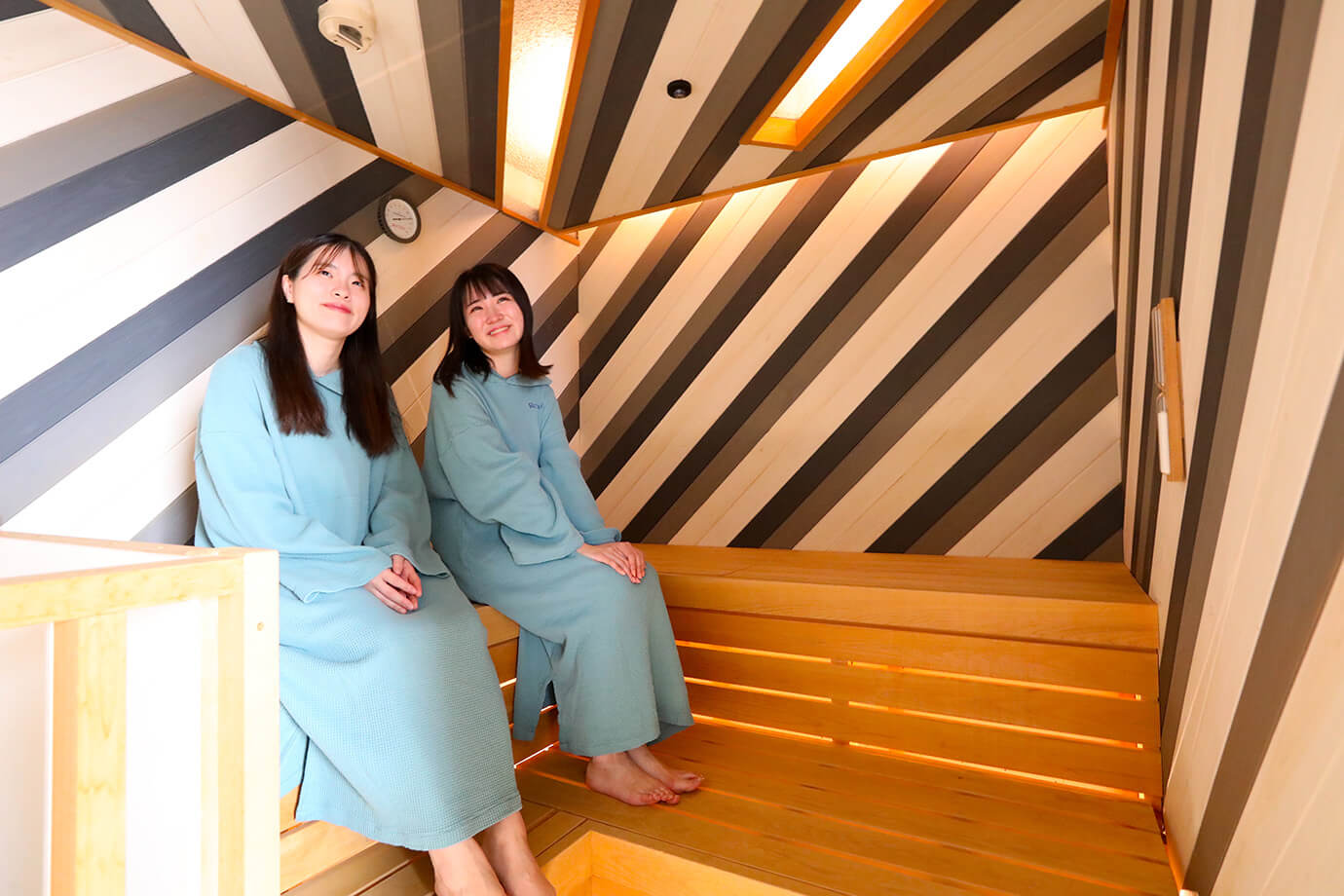
The sauna room has a pleasant wood aroma. The premium room sauna is set at 90℃. Standard rooms are private rooms that allow you to set the sauna temperature at 80°C, 90°C, or 100°C.
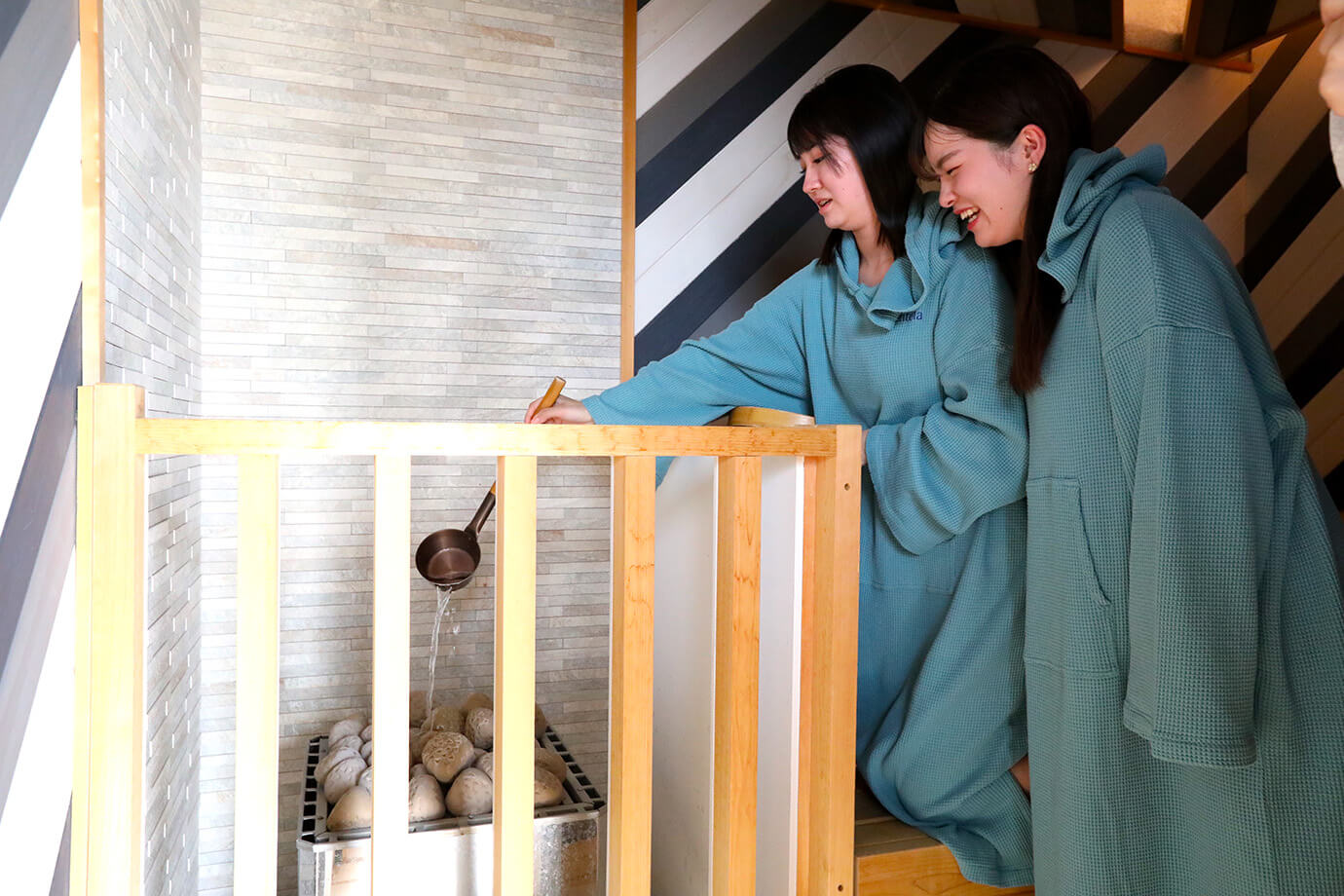
You can throw water on the hot stones, choosing your favorite from the three types of aroma water prepared by the facility. Lie, sit, and relax in a completely private space.
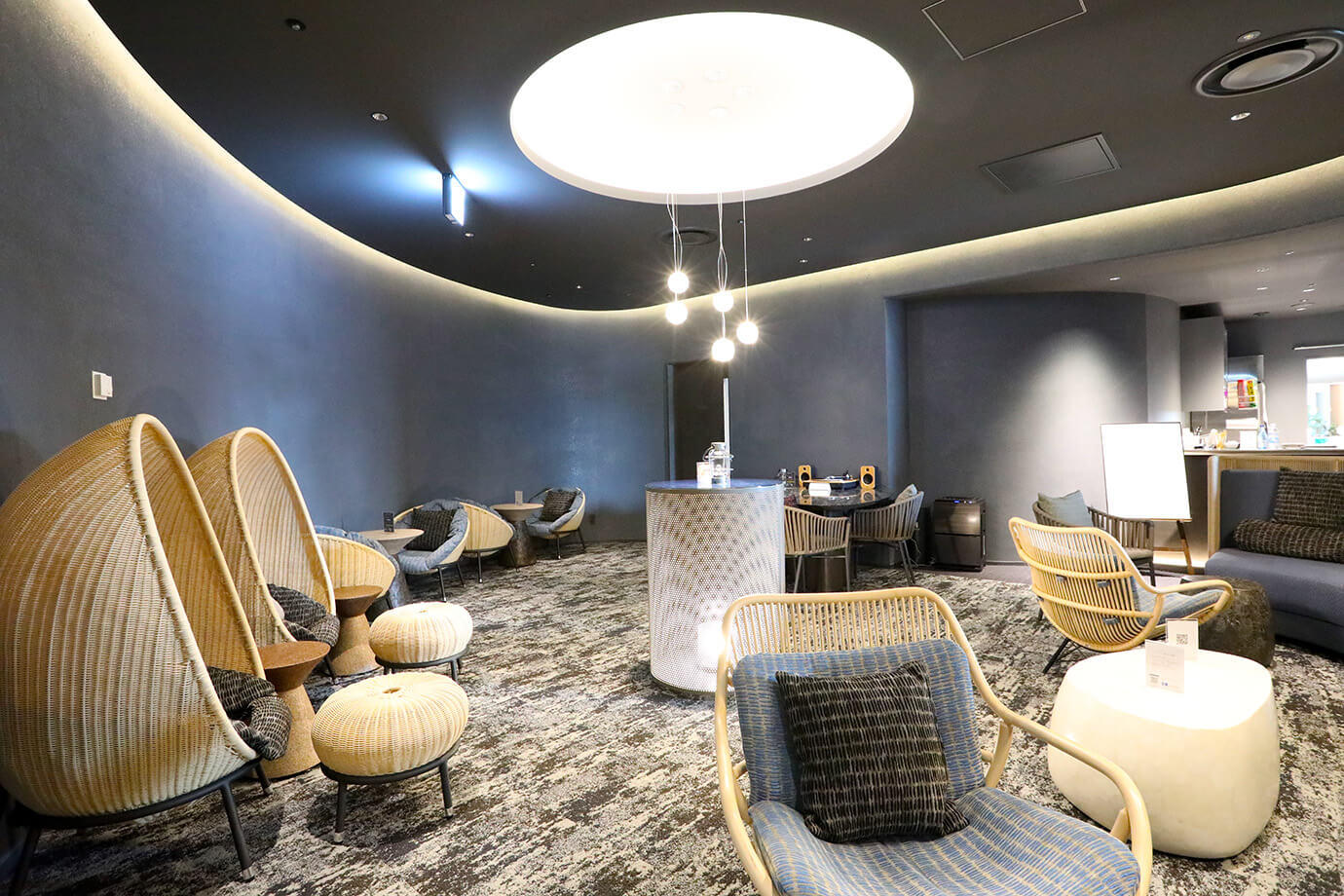
You can use the exclusive lounge and powder room for up to two hours after using the private room. Relax in your poncho in the exclusive lounge, or enjoy a drink or “sauna meal” at the sauna cafe. Your luxurious experience will continue long after the sauna!
Sauna Lounge Rentola
Address:Tokyo Dome City LaQua 9F, 1-1-1 Kasuga, Bunkyo-ku, Tokyo
Telephone:03-3817-4173
Fee:from 7,000 yen per person for 100 minutes, including towel set (bath towel, face towel, and sauna mat) and sauna poncho rental fee
Opening hours:7:30-23:30
Closed:Open every day
blue-ing! CAFE &BAR
Why not watch a game with a beer in hand at a “soccer culture creation base”!
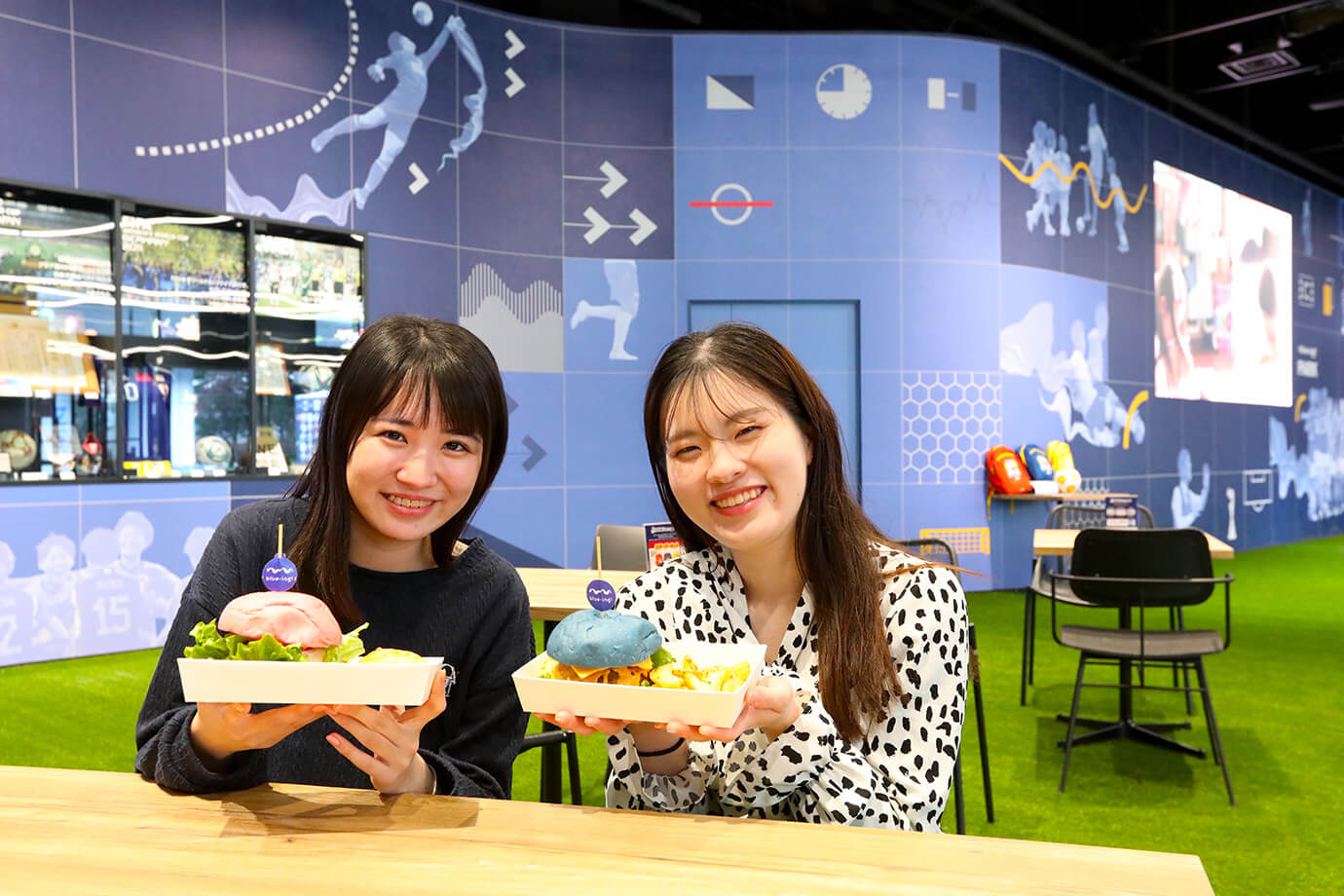
"blue-ing!" is a JFA “soccer culture creation base” that opened in December 2023.Visitors can experience the fun of soccer with next-generation interactive content, the latest digital exhibits, and a café & dining area.
At the "CAFE&BAR," you can enjoy an original soccer concept menu on a floor laid with artificial turf.
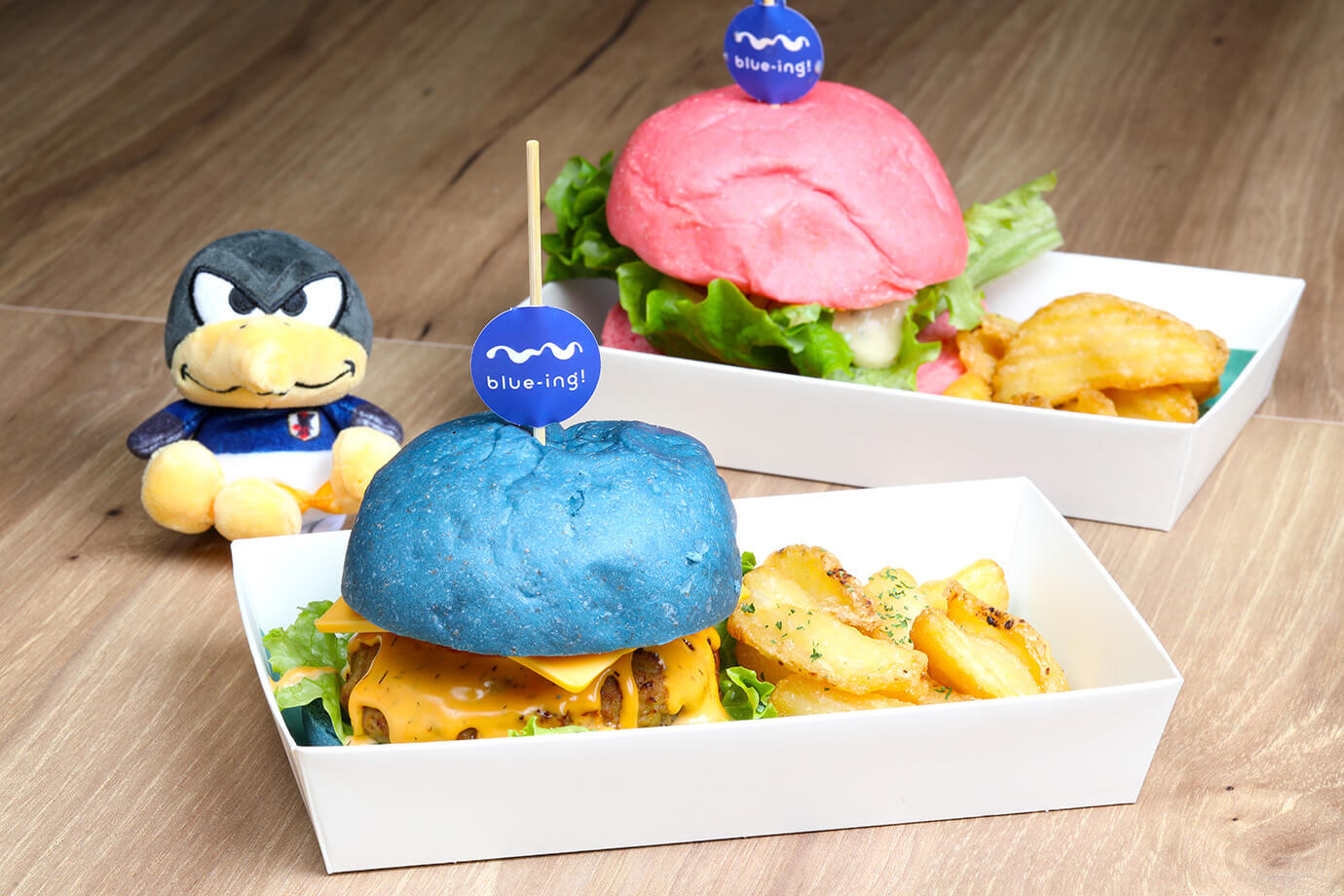
We recommend the "Samurai Blue Burger" for 990 yen (shown at the front of the photo). It has cheese, a burger patty, and tomato in a blue bun, in the image color of the Japanese national soccer team. The “Nadeshiko Ebi Katsu Burger”, 990 yen (shown at the back), is a combination of shrimp cutlet with tartar sauce in a pink bun, which is the image color of Nadeshiko Japan.
*Illustrative images are for reference only (products may vary).
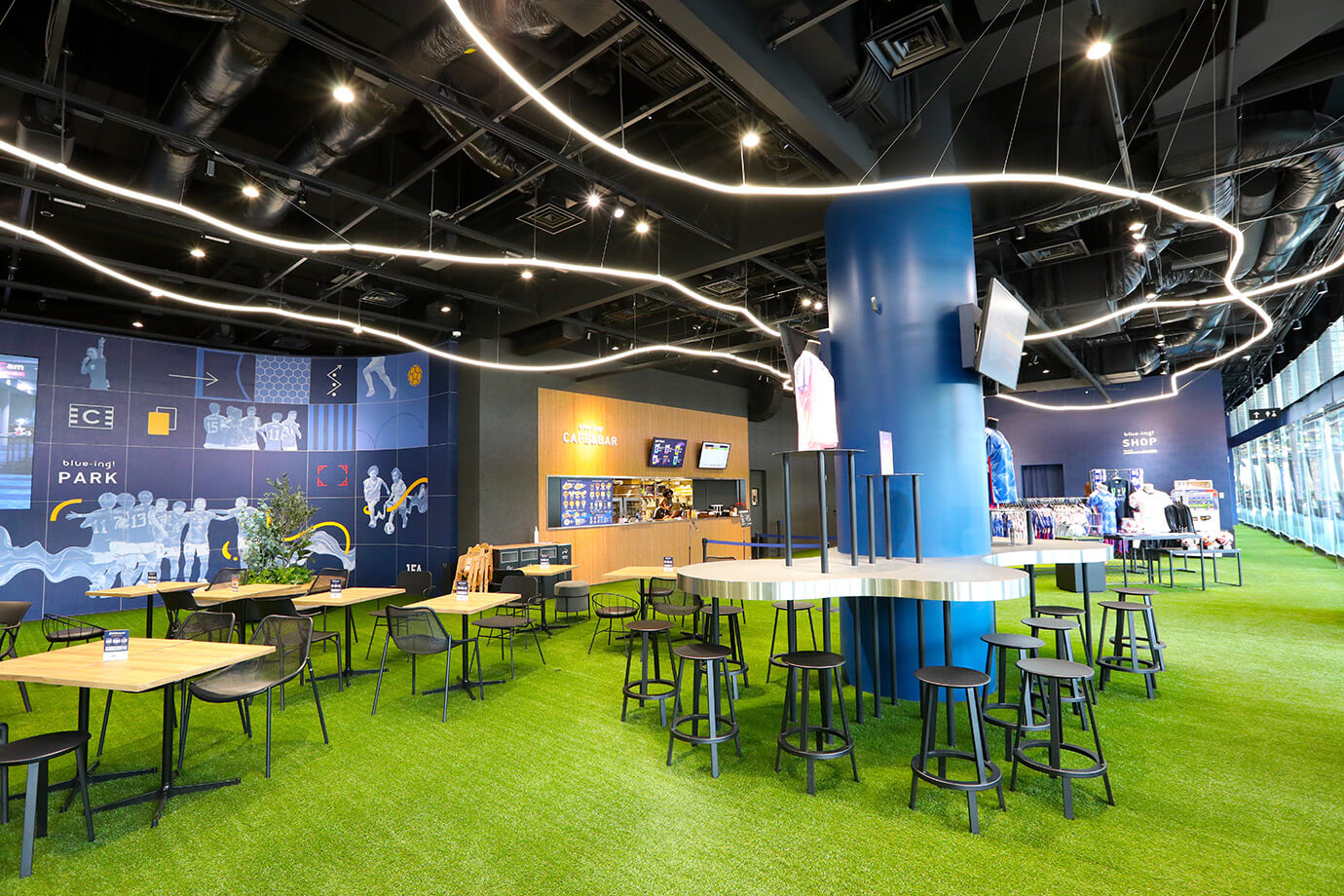
The store's visual imagery displays Japan national team matches and backyard footage, bringing the Japanese national soccer team closer to customers. Next to the CAFE&BAR is the "PARK". This is equipped with a large screen, a "DISCOVERY" zone where visitors can experience content using the latest technology, and the "SHOP", which sells Japan's national team merchandise. Public viewings of Japan national team matches and broadcasts of J-League and WE-League matches are also held.
blue-ing! CAFE &BAR
Address:1-3-61 Koraku, Bunkyo-ku, Tokyo
Official website:https://blueing.jfa.jp/
Opening hours:11:00-21:00 on weekdays (closes at 22:00 on Fridays and the day before national holidays); 10:00-22:00 on Saturdays, Sundays, and national holidays (closes at 21:00 on Sundays and national holidays)
Closed:Open every day
DELI &DISH
Check out the most talked about sweets! These make great gifts!
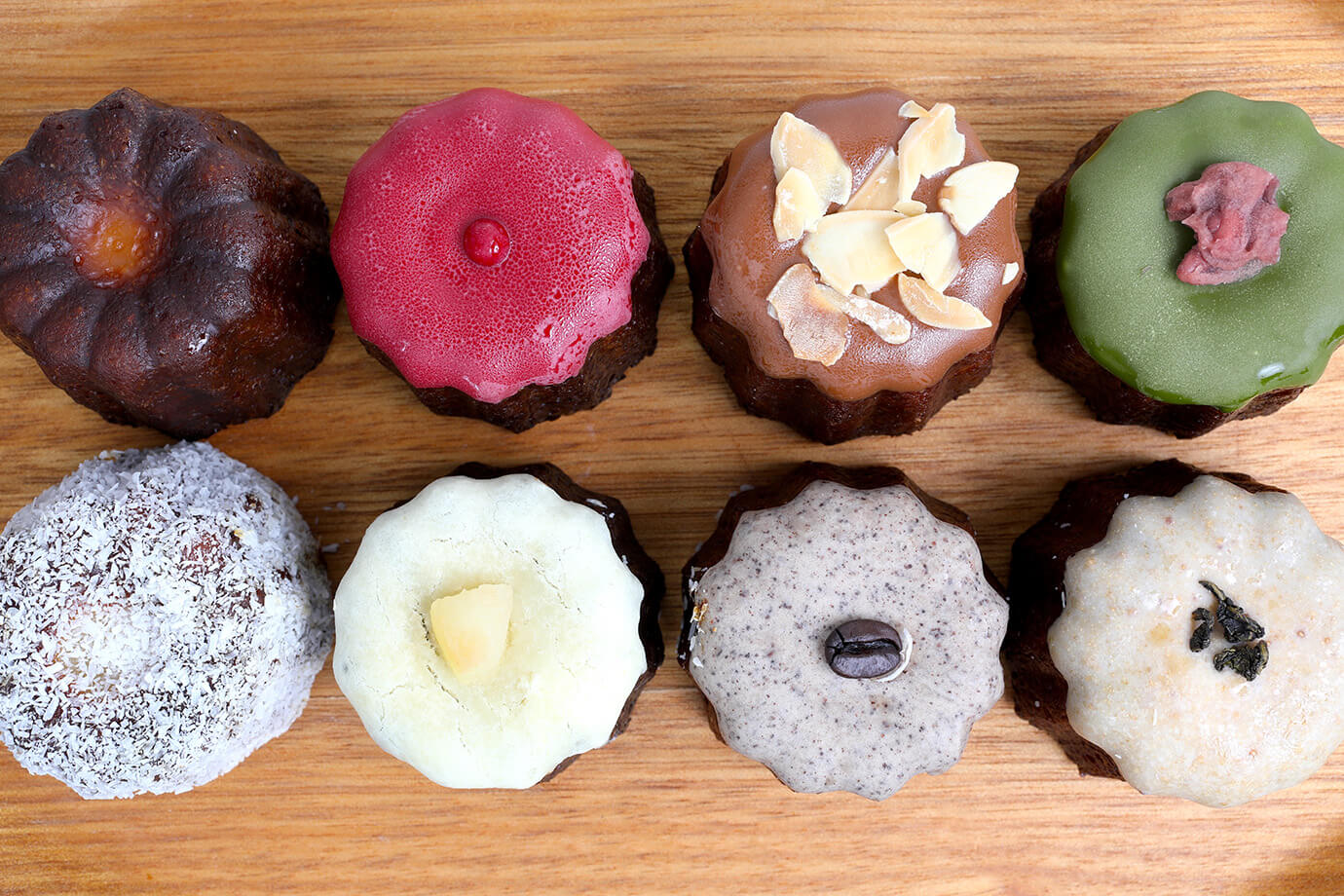
Located on the first floor of LaQua, DELI&DISH is a new gourmet spot that opened in April 2023. It boasts 26 stores selling sweets, breads, and prepared meals.
These include the incredibly popular canele pastries sold at "boB", a specialty store selling soft-centered canele. The canele come in a wide variety of flavors, including plain, raspberry and cacao, apple and caramel, matcha, coconut, peach and earl grey, coffee, hojicha, and more.
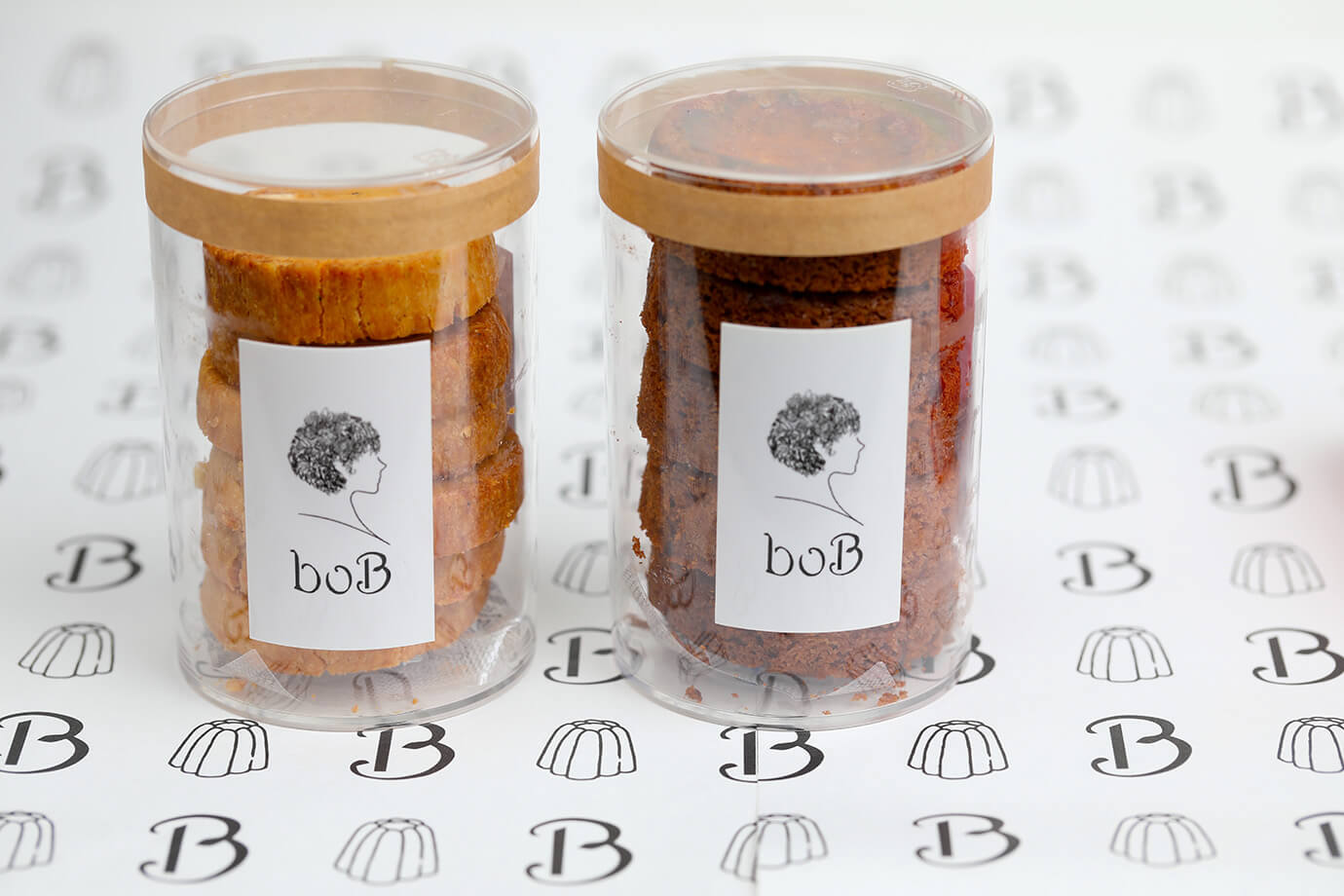
boB original cookies are also available. Five butter-rich "galettes" are priced at 850 yen. Six "smoked nut cheese cookies" made with smoked nuts and pecorino cheese cost 850 yen. They are not too sweet, and would make a great gift.
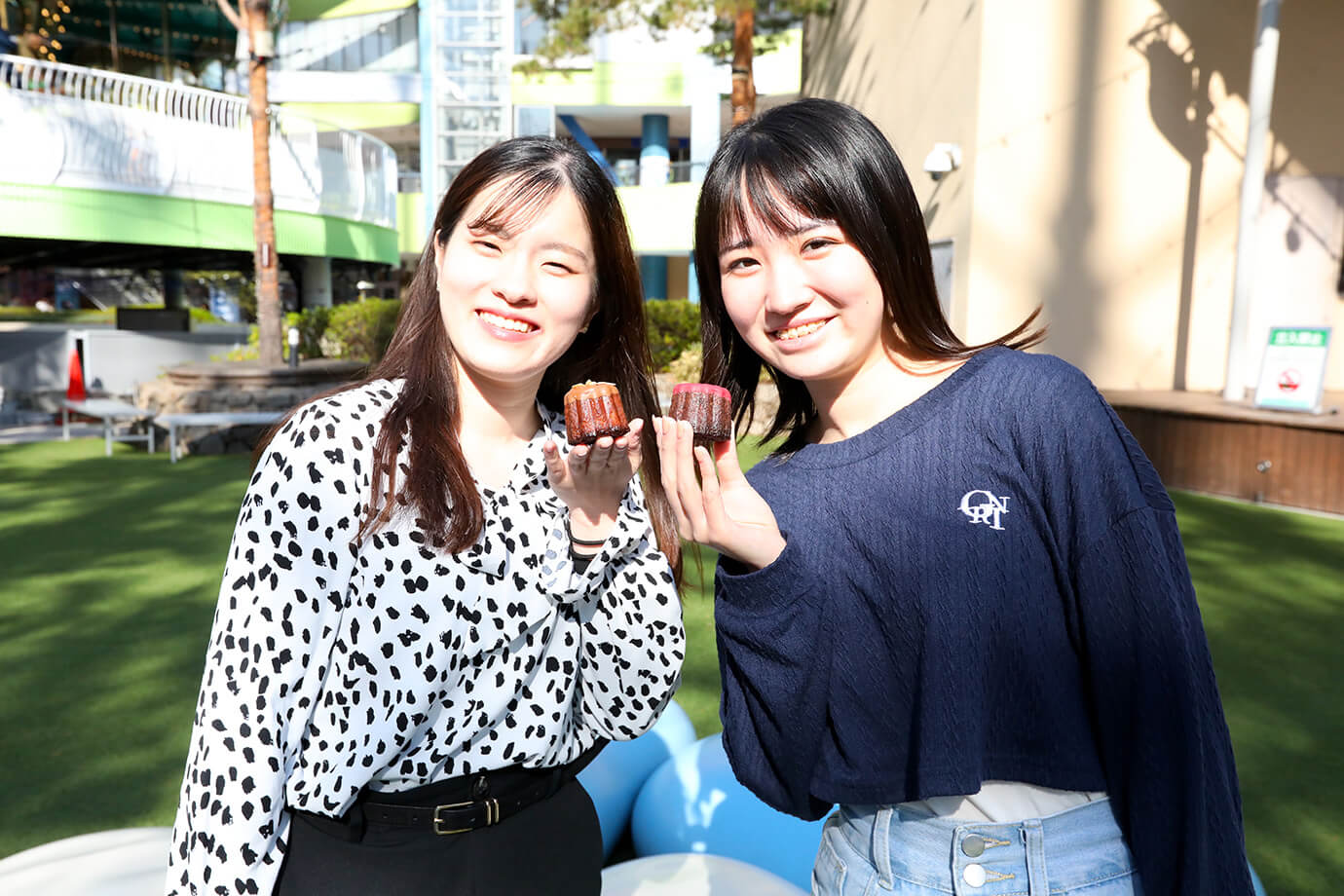
We enjoyed them by having an outdoor picnic at the LaQua Garden. They have a novel texture, crispy on the outside and chewy on the inside. Be sure to check out the flavors that are only available at the LaQua store.
boB LaQua, a canele specialty store
Address:Tokyo Dome City LaQua 1F, 1-1-1 Kasuga, Bunkyo-ku, Tokyo
Telephone:03-6801-6632
Opening hours:10:00-21:00
Closed:Open every day
Enjoy matcha sweets and drinks made using organic tea leaves!
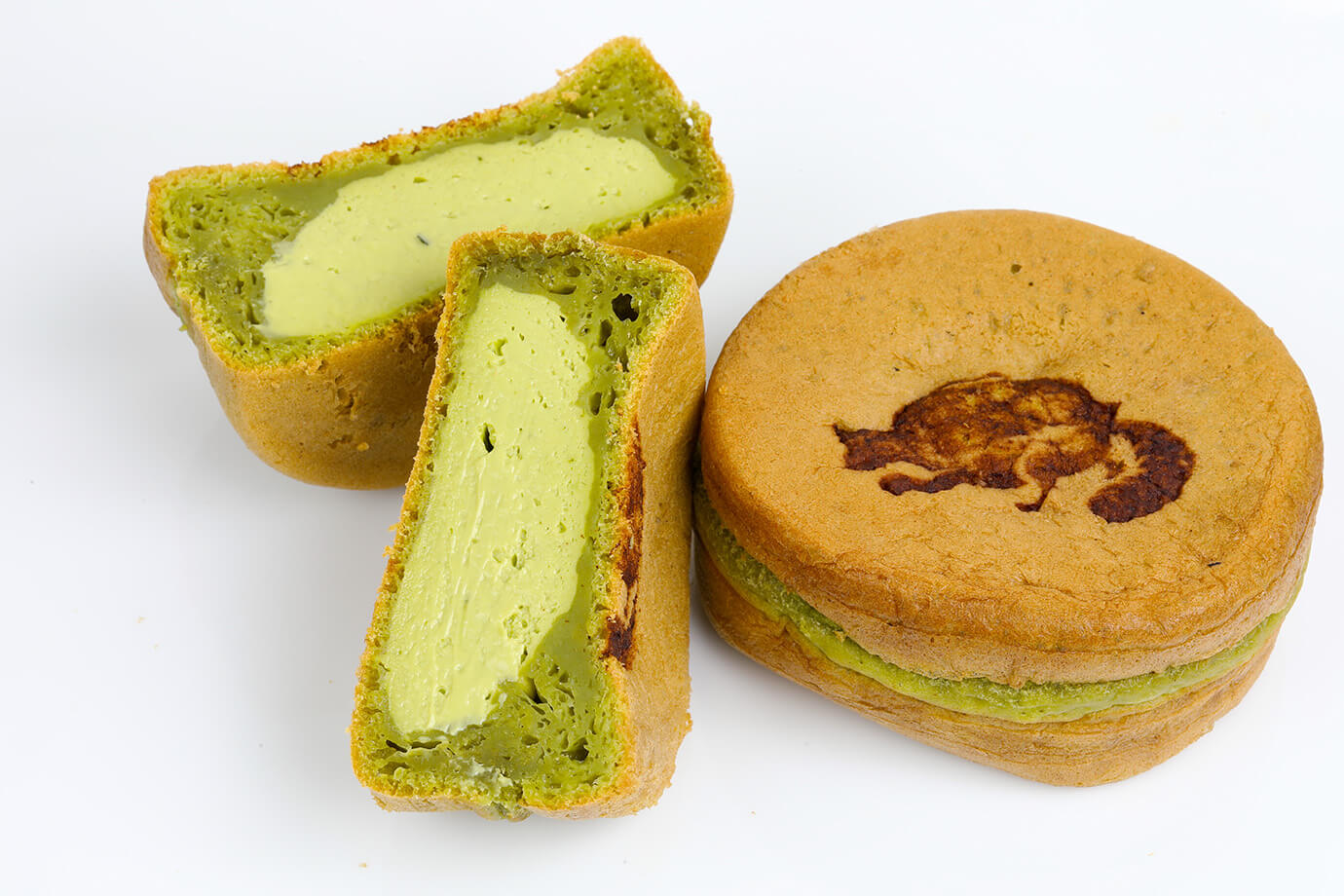
Ichimaruhachi Matchasaro offers drinks and sweets made from organic matcha and gyokuro hojicha.
The popular "Imagawa-yaki Matcha Custard" (200 yen per piece) is baked with a rich matcha custard cream filling in a matcha-filled dough, giving it a chewy texture and matcha flavor. There are many variations, including chunky azuki bean paste, koshian, and azuki bean cream.
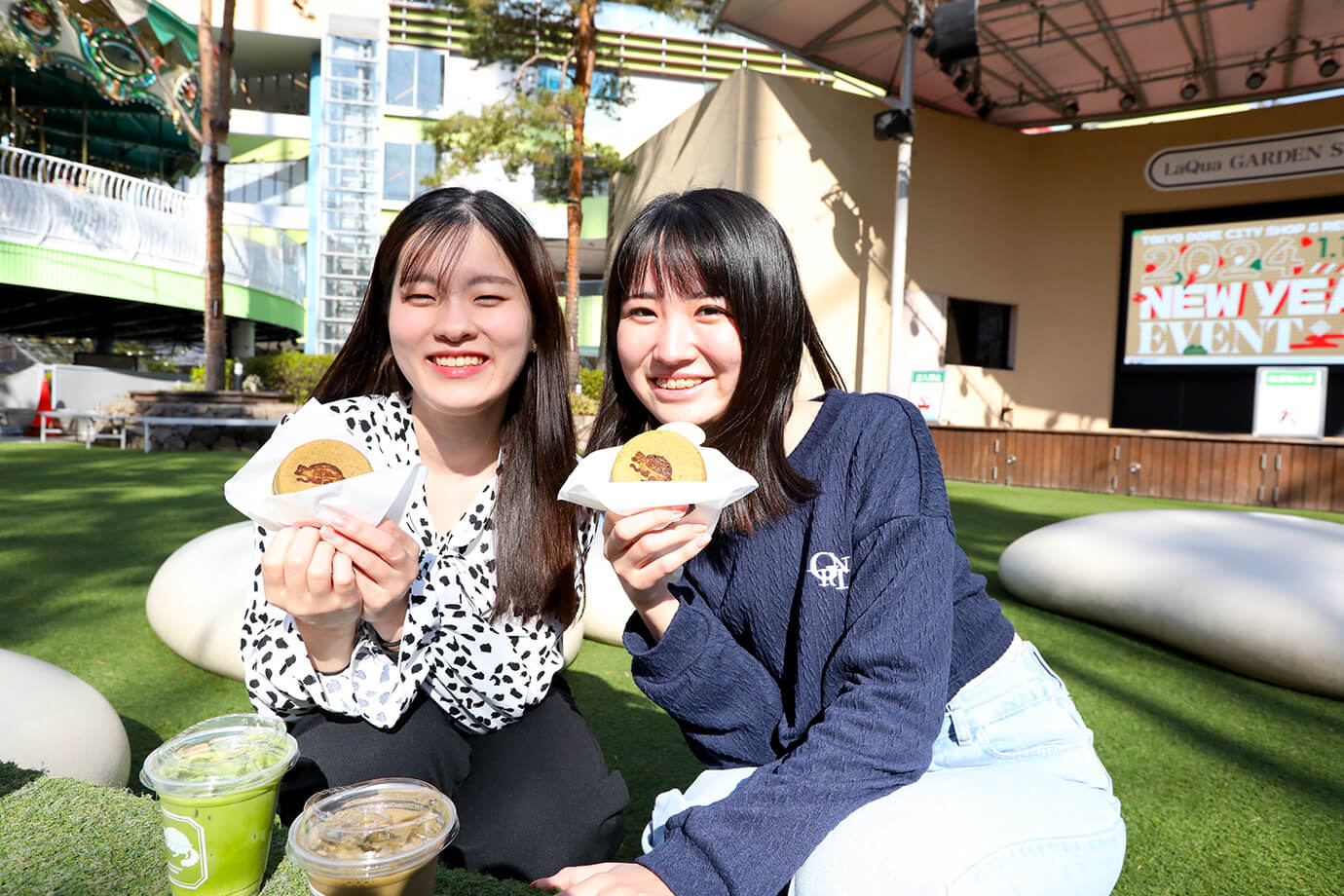
Enjoy with a matcha latte from 450 yen, or hojicha latte from 450 yen. Soft ice creams and parfaits made with matcha and hojicha are also available. Why not take some time out with refreshing Japanese sweets!
Ichimaruhachi Matchasaro
Address:Tokyo Dome City LaQua 1F, 1-1-1 Kasuga, Bunkyo-ku, Tokyo
Telephone:03-6826-9490
Opening hours:10:00-21:00
Closed:Open every day
DELI &DISH
Address:Tokyo Dome City LaQua 1F, 1-1-1 Kasuga, Bunkyo-ku, Tokyo
Telephone:03-5800-9999 (Tokyo Dome City Wakuwaku line)
Opening hours:10:00-21:00
Closed:Open every day
Koishikawa Korakuen Gardens
The garden has rich Chinese influences and is associated with Mito Komon.
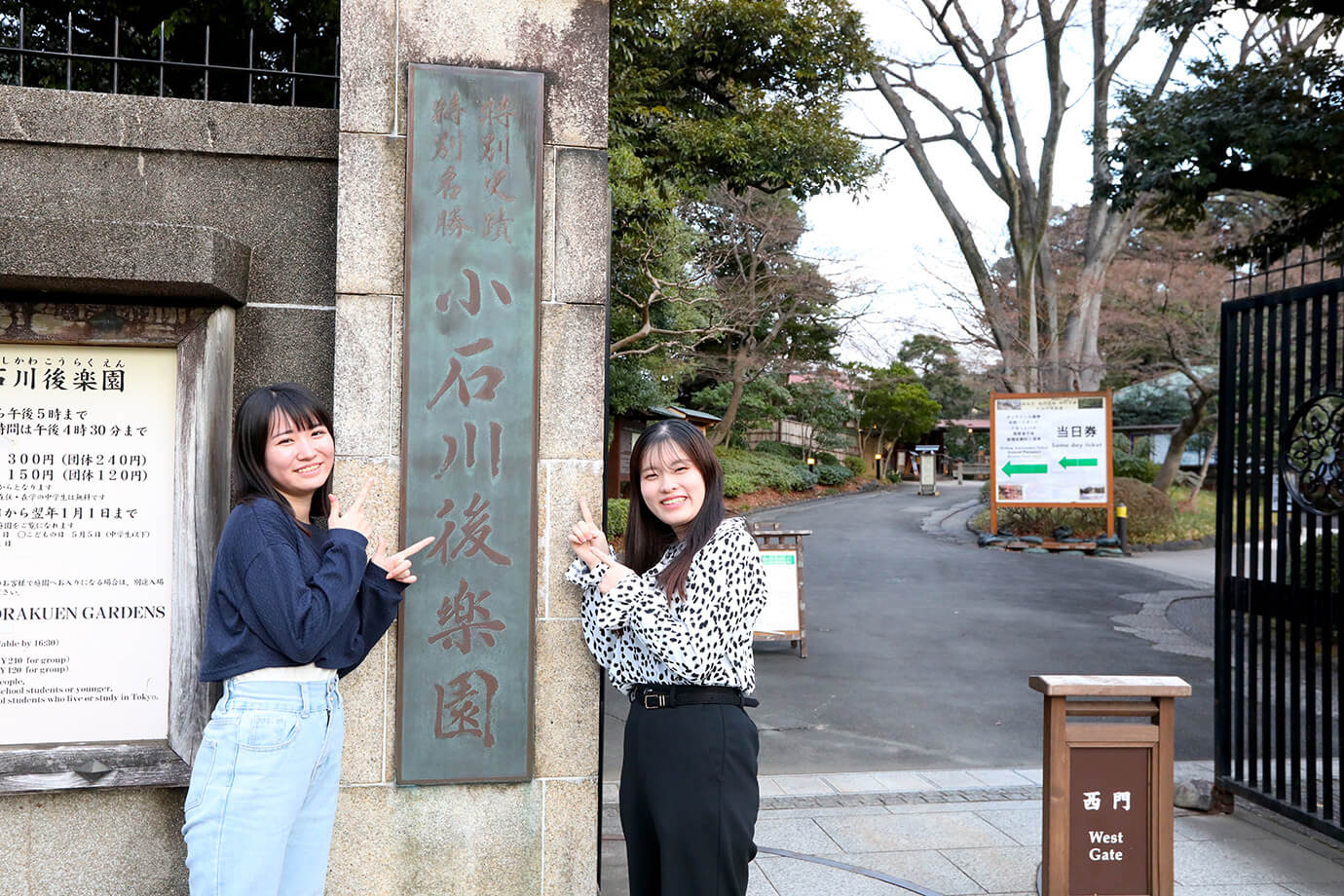
Koishikawa Korakuen Gardens, adjacent to Tokyo Dome City, is a famous garden associated with historical figure Mito Komon. It was built in 1629, in the early Edo period, by Yorifusa Tokugawa, the first daimyo of the Mito Tokugawa family, and completed by Mitsukuni, the second daimyo.
In 1952, it became designated cultural property as a Special Historic Site and a Special Place of Scenic Beauty by the national government. It is said to be one of only nine places in Japan, including Kinkakuji Temple and Hama Rikyu Garden, to have received both designations.
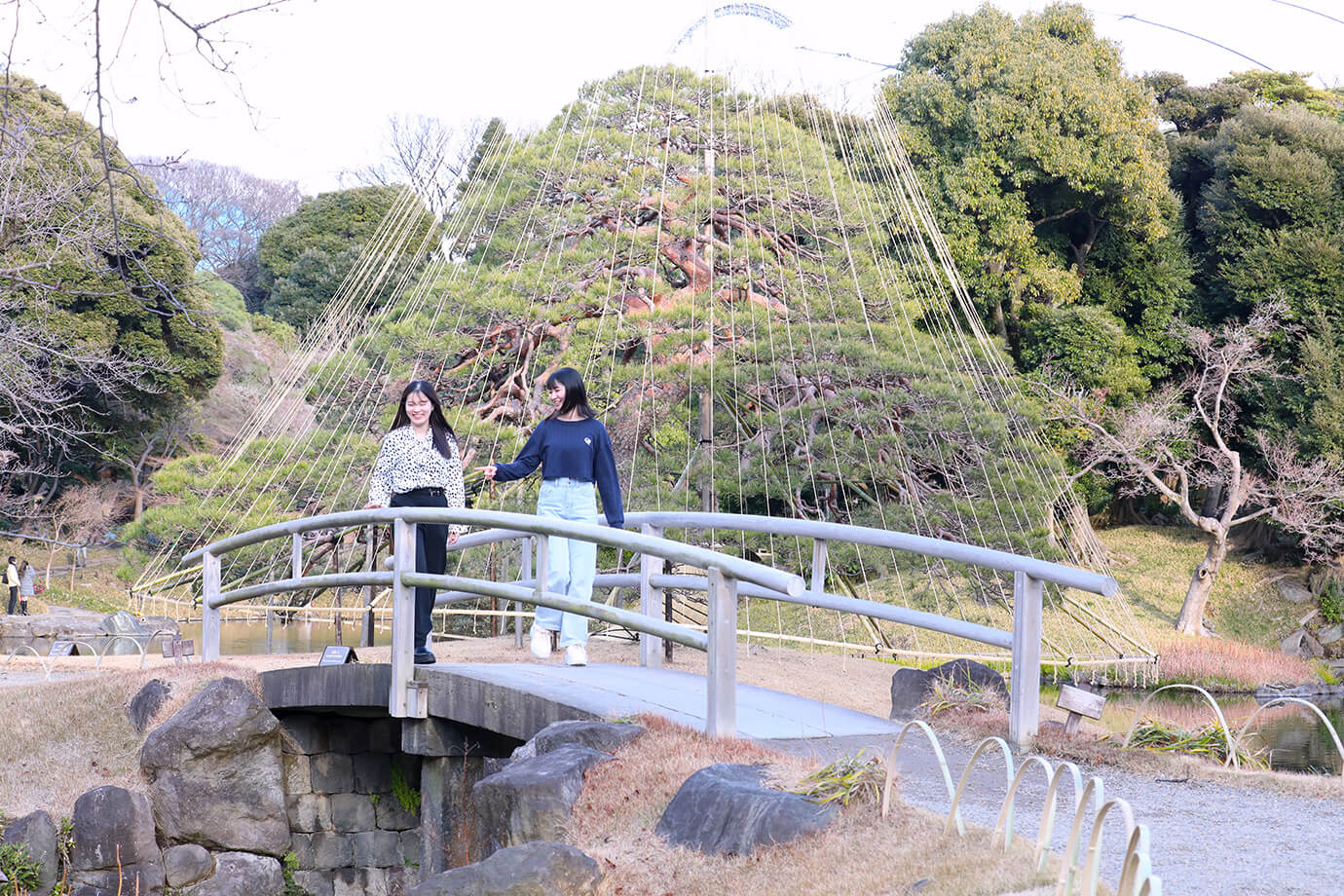
Koishikawa Korakuen Garden is a Kaiyu Chisen garden (a garden with a path around a central pond and spring). It is centered around a pond called "Oizensui”. When building the garden, Mitsukuni sought the advice of Shu Shunsui, a Confucian scholar from the Ming Dynasty. This is why Chinese influences can be seen in the park, including the Engetsu-kyo (Full Moon Bridge) and the "West Lake Embankment”.
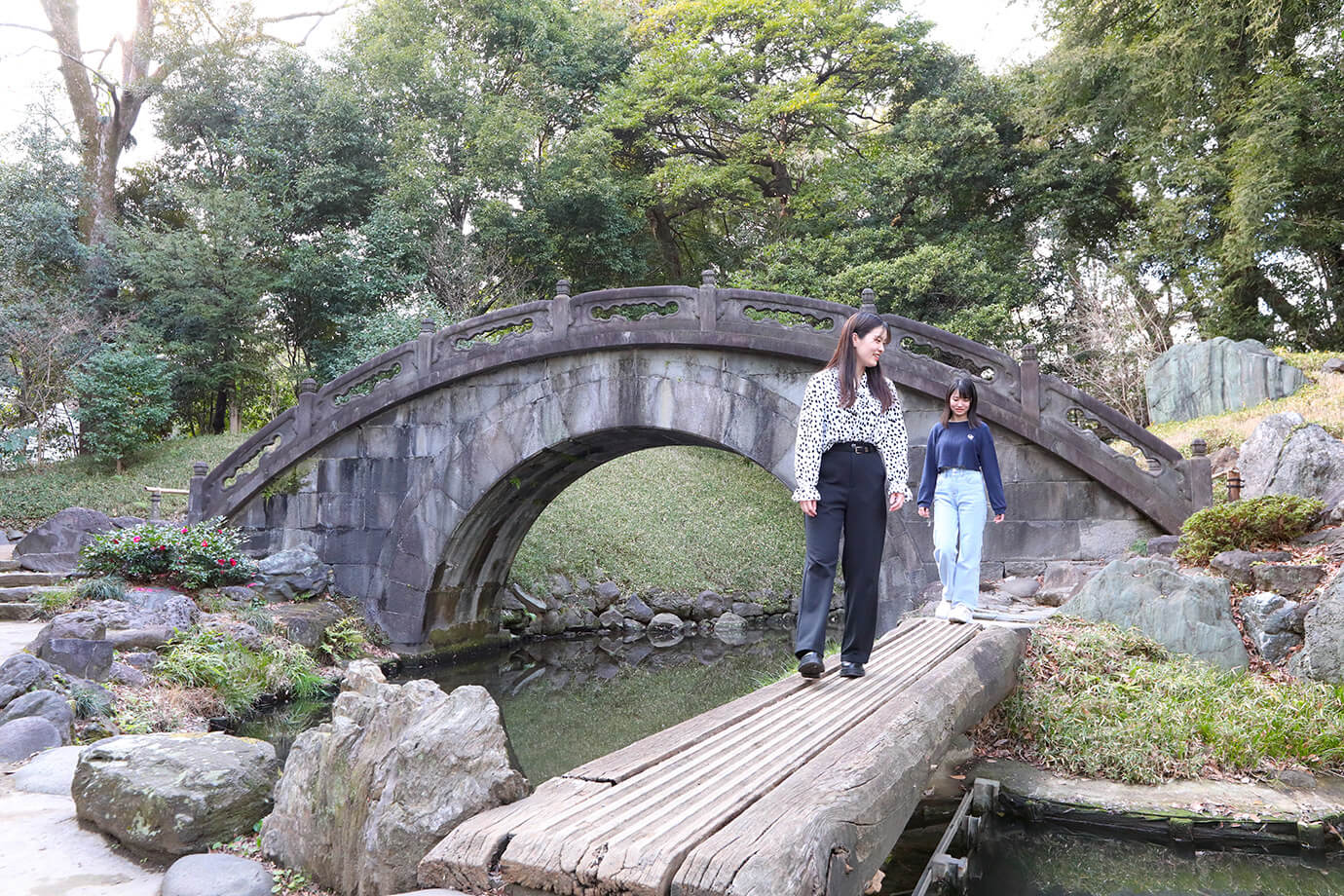
The Engetsu-kyo is a stone bridge said to have been designed by Shu Shunsui. It is named after the shape of its reflection on the surface of the water, which resembles a full moon.
In February, the ume blossoms so loved by Mitsukuni Mito are in full bloom.
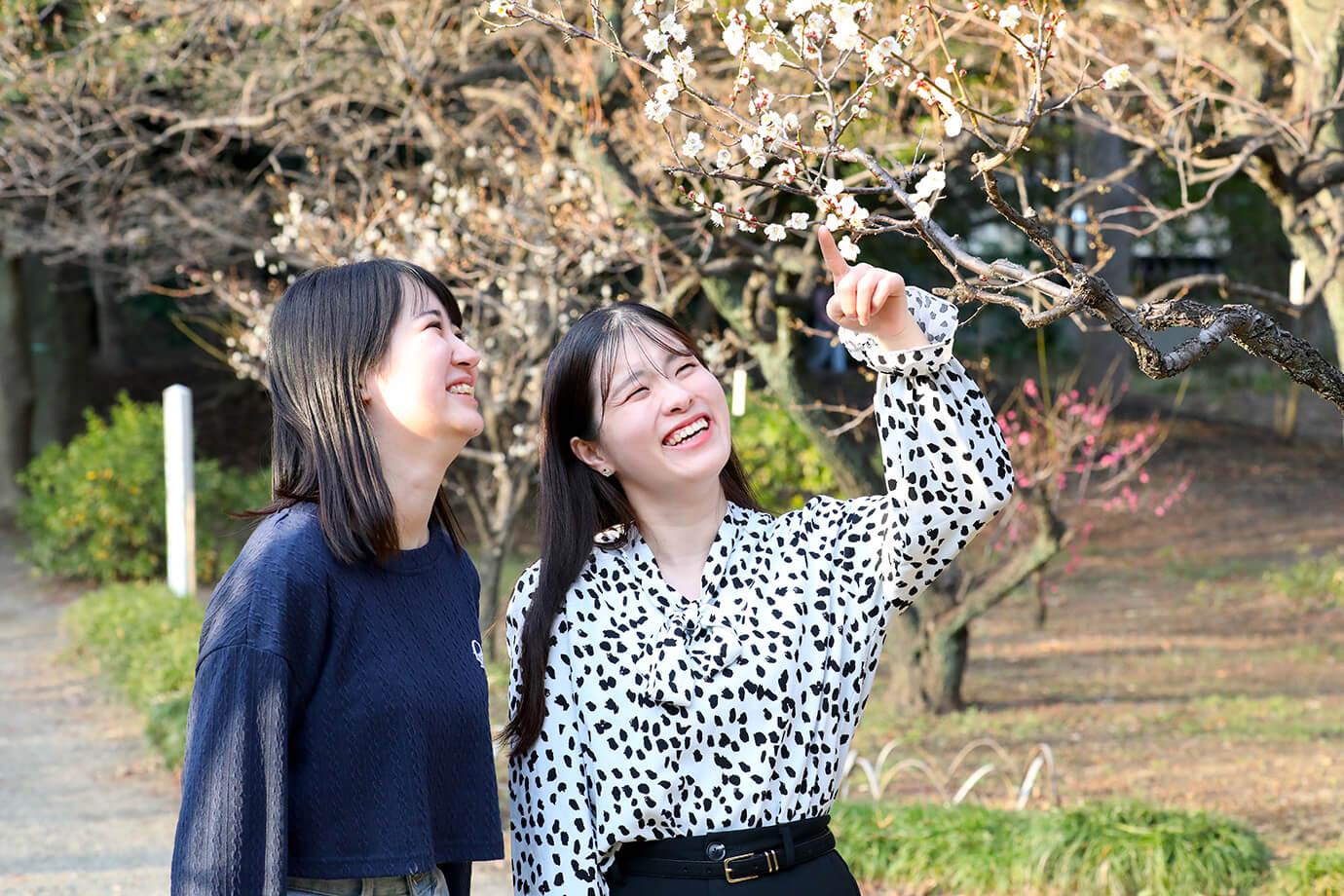
On the north side of the park, there are about 150 ume trees. Ume blossoms can be seen for a long period, from late December through to early March. The ninth daimyo, Nariaki, collected ume trees from Korakuen Garden and brought them to Mito, where ume trees were scarce at the time. This is said to be the origin of the ume trees in Mito's Kairakuen Garden.
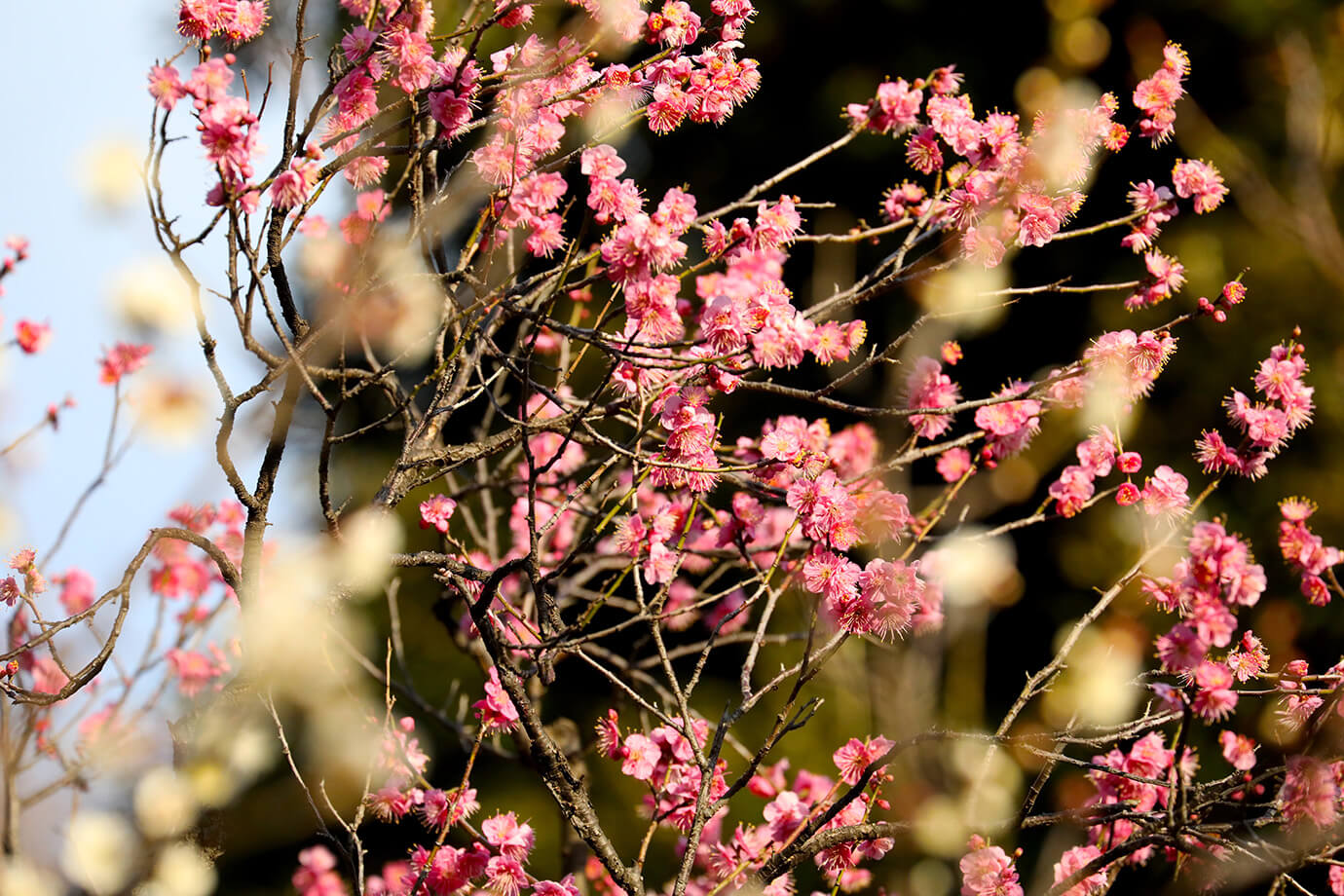
During the blooming season, the "Ume Festival" is held, and various events such as Noh performances, Japanese cultural experiences, and special guided tours are held.
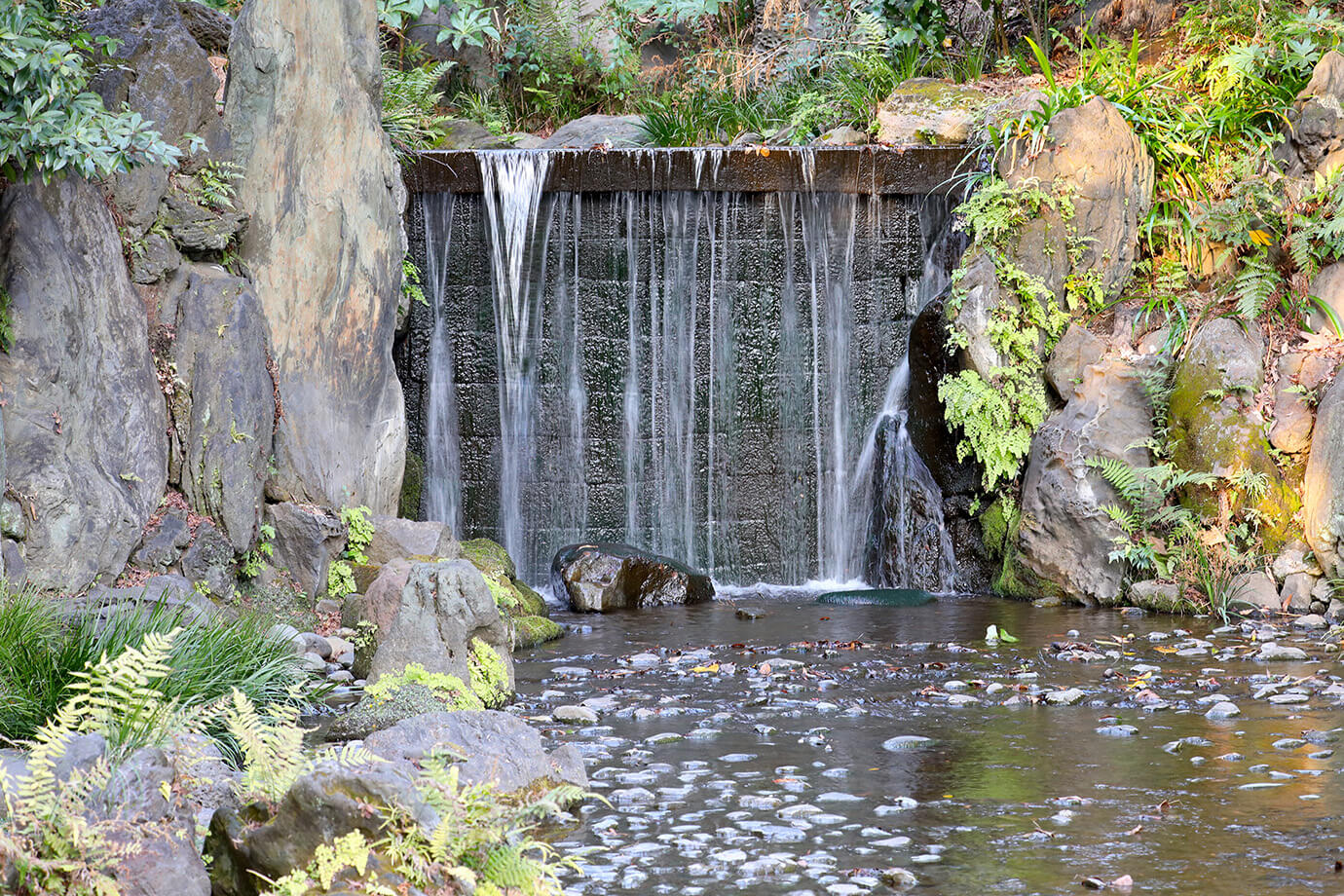
Shiraito Waterfall was built during the reign of Harumori Tokugawa, the sixth daimyo of the Mito Domain. It is so named because it resembles a thousand white threads hanging down.
The beautiful Karamon Gate was completed with colorful carvings.
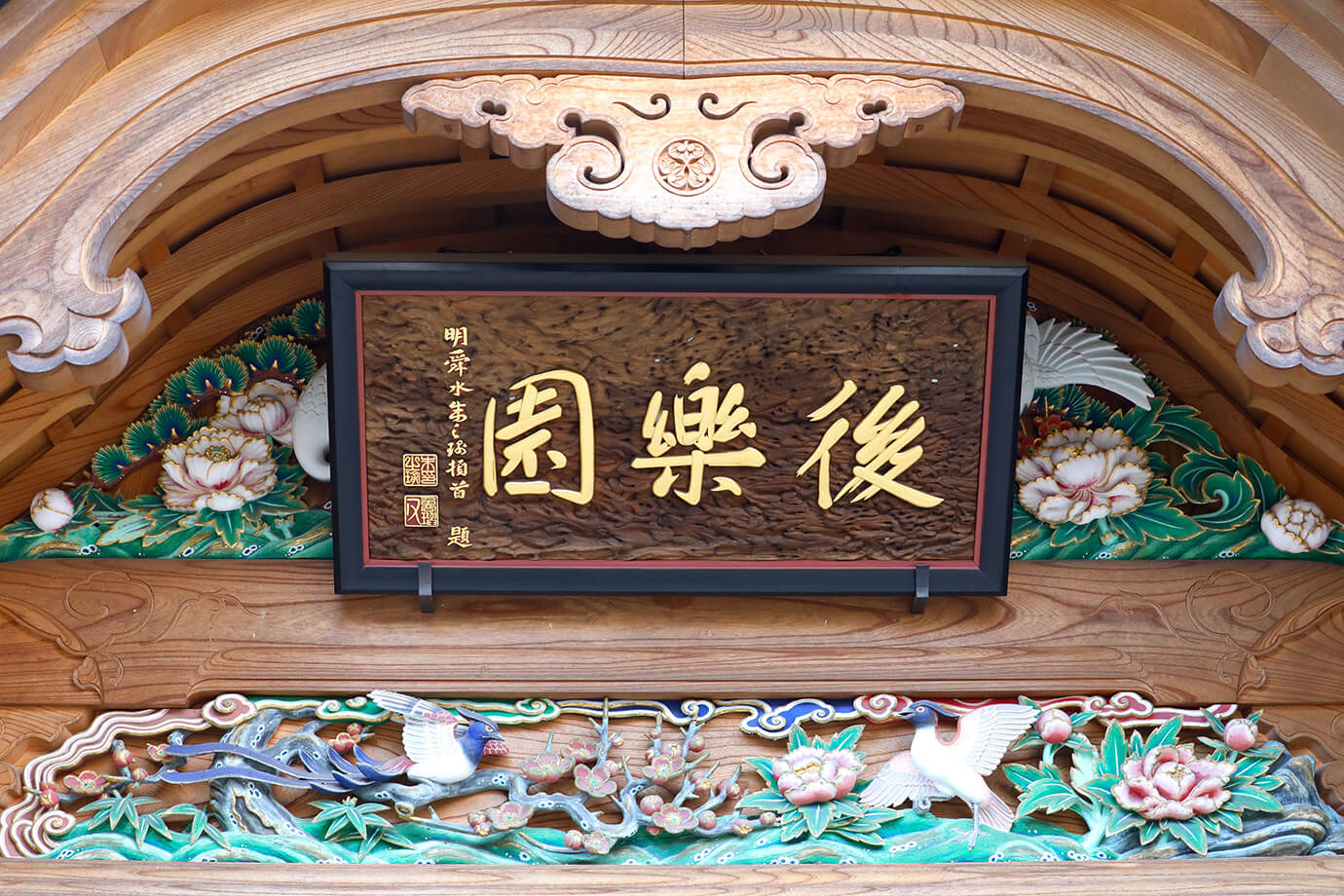
The Karamon gate once served as the official entrance to Korakuen Gardens. It was destroyed by fire during the Second World War, but restoration work was completed in 2020.
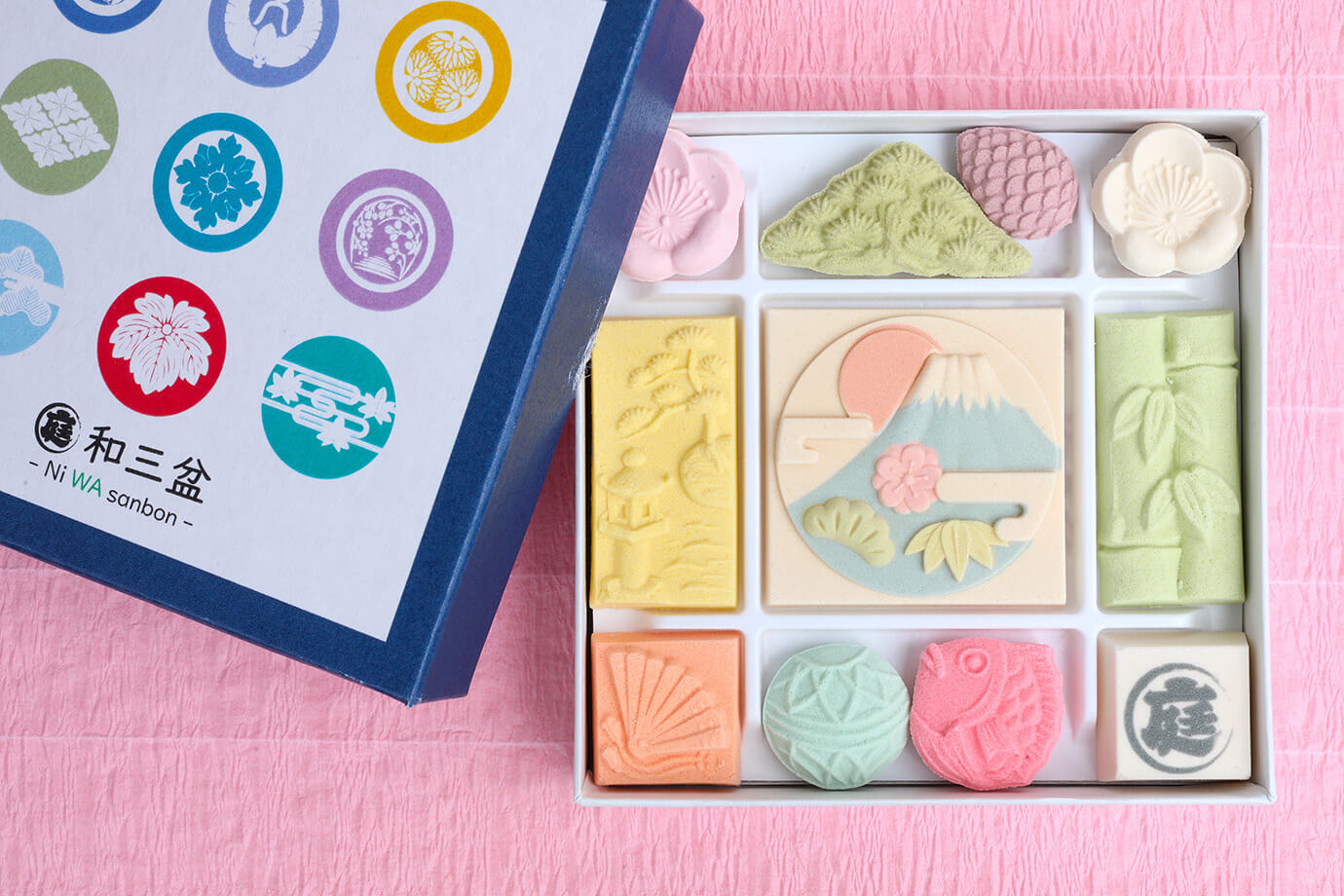
Aoiya, near the West Gate, sells original goods from Koishikawa Korakuen Garden and the nine Metropolitan gardens. The Wasanbon sweets shown in the photo (700 yen) are an original product of Tokyo’s nine Metropolitan Gardens. There is a tea house and rest area in the garden, so please take a break and enjoy a leisurely stroll.
Koishikawa Korakuen Garden
Address:1-6-6 Koraku, Bunkyo-ku, Tokyo
Telephone:03-3811-3015
Admission:300 yen
Opening hours:9:00-17:00 (last entry at 16:30)
Closed:December 29 - January 1
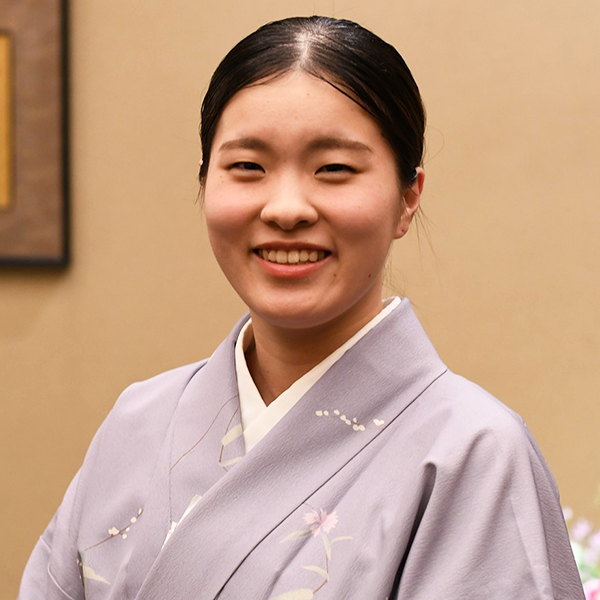
Hotel Metropolitan
Edmont
Restaurant service
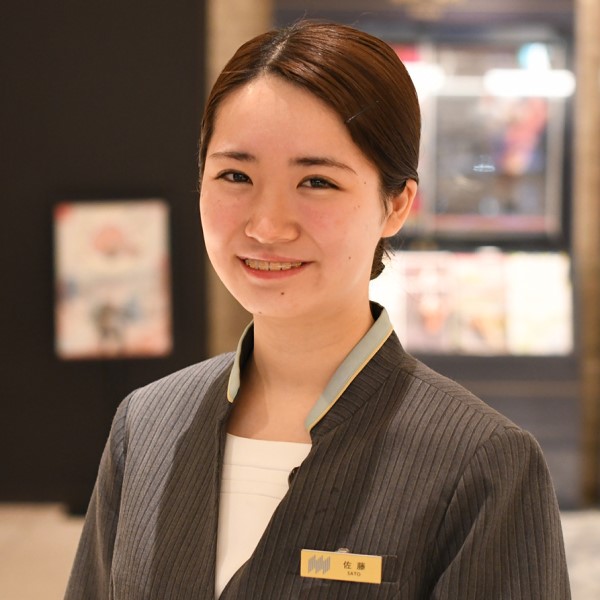
Hotel Metropolitan
Edmont
Lobby service
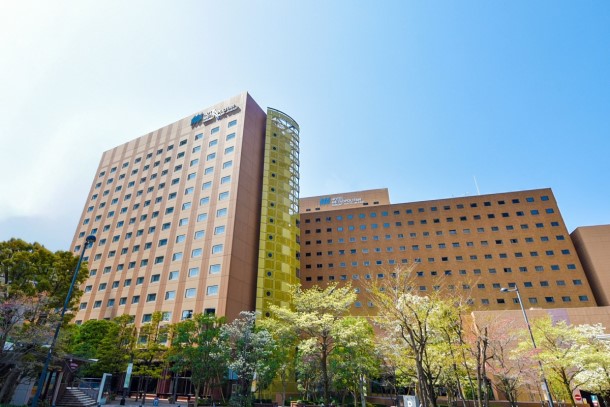
Hotel Metropolitan Edmont Tokyo
boasted the traditions and prestige of its excellent reputation for food ever since its establishment.
All guests are offered the best cuisine, service, and heartfelt hospitality to create moments filled with relaxation and flavor.
NotesOpenClose
*Information provided on this website is current as of January 2024. The featured facilities may change their fees, hours, days closed, menus, and other information after it has been published here, or they may be temporarily closed. Although every effort has been made to ensure the accuracy of the content on this website, including all times, fees, etc., we recommend that you contact the facility by phone or other means to get further information or make a reservation in advance. We will not be held liable for any damage in connection with the content of this website.
*All charges and fees shown on this website include consumption tax and were current at the time the information about them was collected. Facilities that offer dine-in and/or takeout services are so noted in the articles. Charges and fees are subject to change.
*Facility schedules do not reflect closures during the year-end/New Year holidays, Bon festival, and Golden Week as well as temporary closures unless specified by the respective facilities featured on this website.
*Operating hours shown on this website are generally the hours from opening to closing unless otherwise specifically noted. Last orders and entries are usually accepted 30 minutes to 1 hour before closing.
SHARE

